democracynow.org
Stories:

WTF: Climate Activists Ask World Leaders "Where's the Finance?" to Deal with Global Crisis
The United Nations says it hopes to mobilize $100 billion to combat climate change and to help compensate victims of global warming. But activists at the climate summit in Morocco say countries are pledging far too little. At a protest today, they held signs reading "WTF?" or "Where’s the Finance?" "The worst part is, $100 billion is not even close to what we need for climate finance," says Aneesa Khan of the group Earth in Brackets. "The amount we need is in the trillions." We get response from Mary Robinson, former president of Ireland and former U.N. high commissioner for human rights.
TRANSCRIPT
This is a rush transcript. Copy may not be in its final form.
AMY GOODMAN: Final comments as we wrap up this discussion, Mary Robinson? Here at the climate talks at the U.N., the U.N. has said it hopes to mobilize 100 billion U.S. dollars to combat climate change and to help compensate victims of global warming. But activists, who moments ago held a protest here at the COP, say that countries are pledging far too little. They held a small protest holding signs reading "WTF"—not what you think, or maybe it is, but it’s "Where’s the finance?" This is Aneesa Khan of the group Earth in Brackets.
ANEESA KHAN: If we’re looking at the amount that’s been pledged, what we have is only between $18 billion to $34 billion. The worst part is, $100 billion is not even close to what we need for climate finance. The amount that we need is in the trillions. We spent $13 trillion to bail the banks out during the financial crisis, but we can’t even come close to this. The way that this climate finance process has been happening right now has us saying, "WTF?" Where’s the finance? Where’s the equity? Where’s the justice? This money is not a compensation. This money is not out of pity. This money is a debt that is owed to those on the front lines of climate change, and they deserve it right now. So, say with me, "WTF?" "Where’s the finance?"
PROTESTERS: Where’s the finance?
ANEESA KHAN: WTF?
PROTESTERS: Where’s the finance?
AMY GOODMAN: That is Aneesa Khan of the group Earth in Brackets. "WTF?" "Where’s the finance?" President Robinson?
MARY ROBINSON: I very much agree. Climate finance is incredibly important. That $100 billion is incredibly important, but I also agree with what she said: It must trigger trillions. That’s extremely important. That’s the public—the money coming from governments and from public sources. That must leverage the private sector. And I understand that the private sector now knows that that’s even more important than ever. There are many leaders who are non-fossil fuel company business people who are here at the COP, who are pressing for the need to have more investment in developing countries, and there are projects for investment in developing countries. There are people working on a new climate economy that will provide jobs in developing countries and energy to developing countries. My friend Rachel Kyte, who heads Sustainable Energy for All, is working extremely hard to get a different approach to access to energy, clean energy for all of those in developing countries. I very much agree with the passion. Where is the finance? I agree. And we have to get it. And we have to make sure that it is there and it is there for the people who need it most, because they have suffered the most from the fossil fuel that helped to build other people’s economies.
AMY GOODMAN: President Mary Robinson, thanks so much for joining us. As we sit in front of the plenary here at the U.N. COP. That’s the COP 22, Conference of the Parties, the U.N. climate summit. Mary Robinson is the U.N. secretary-general’s special envoy on El Niño and climate, president of the Mary Robinson Foundation–Climate Justice. She served as president of Ireland from 1990 to '97 and U.N. high commissioner for human rights from ’97 to 2002. She's a member of The Elders and the Club of Madrid and the recipient of numerous honors and awards, including the Presidential Medal of Freedom from President Obama.
This is Democracy Now! When we come back, Bernie Sanders’ first major address since the election of Donald Trump, and we’ll get response. Stay with us.
[break]

Bernie Sanders Calls for Trump to Ax Bannon; Urges New Admin to Reject Racism, Sexism & Homophobia
Senator Bernie Sanders gave his first major address since the election on Wednesday night. Since challenging Clinton in the Democratic primary, he has emerged as one of the most powerful Democrats in Washington. On Wednesday, he was named to a leadership post in the Senate—chair of outreach—and was reappointed ranking member of the Senate Budget Committee. During his speech, Sanders said he hopes to work with the president-elect on a number of issues, and called on Trump to rescind his decision to make Steve Bannon his chief strategist. Bannon is the former head of Breitbart News.
TRANSCRIPT
This is a rush transcript. Copy may not be in its final form.
AMY GOODMAN: Across town at George Washington University, Senator Bernie Sanders also gave his first major address since the election. Sanders, who challenged Clinton in the Democratic primary, has emerged as one of the most powerful Democrats in Washington. On Wednesday, he was named to a leadership post in the Senate—chair of outreach, a new position—and was reappointed ranking member of the Senate Budget Committee. During his speech, Senator Sanders called on Trump to rescind his decision to make Steve Bannon his chief strategist. Bannon is the former head of Breitbart News.
SEN. BERNIE SANDERS: This country, as you all know, since our inception, has struggled to overcome discrimination of all forms. And that is racism and sexism and xenophobia and homophobia. For hundreds of years, extraordinarily brave people have stood up, and some of them have died in the struggle, to end discrimination in America. And I say to Mr. Trump, from the bottom of my heart, and I know I speak for millions of fellow Americans: Mr. Trump, we are not going backwards in terms of bigotry; we’re going to go forward in creating a nondiscriminatory society. And in that regard, I call upon Mr. Trump to rescind the appointment that he made of Mr. Bannon. A president of the United States should not have a racist at his side. Unacceptable.
AMY GOODMAN: That’s Senator Bernie Sanders speaking Wednesday. But his speech was not solely an attack on Donald Trump. The Vermont senator said he hopes to work with the president-elect on a number of issues.
SEN. BERNIE SANDERS: Mr. Trump said, unlike many Republicans, the vast majority of the Republicans, he said we—he will not cut Social Security, Medicare and Medicaid. Now, I believe we should expand Social Security. I believe in a Medicare-for-all program. But that is what he said. And pay attention to see what he now does. The question that will be resolved, pretty quickly, is whether or not everything that he was saying to the working families of this country was hypocrisy, was dishonest, or whether he was sincere. And we will find that out soon enough. But, number one, no cuts, says Mr. Trump, to Social Security, Medicare and Medicaid.
Mr. Trump says he wants to invest a trillion dollars in rebuilding our crumbling infrastructure. That is a good sum of money. That is exactly what we should be doing. And we could create millions of good-paying jobs if we do that. Mr. Trump, that’s what you said on the campaign trail. That’s what we look forward to seeing from you.
Now, I happen to believe that the federal minimum wage of seven and a quarter today is a starvation wage, that it should be raised to $15 an hour, a living wage. Mr. Trump did not say that, but what he did say is we should raise the minimum wage to 10 bucks an hour. Not enough, but a start. And we will hold him to those words.
Mr. Trump said that Wall Street, dangerous, doing bad things. He wants to re-establish Glass-Steagall legislation. I look forward to working with him.
Mr. Trump said he wants six weeks of paid maternity leave. Well, every other major country on Earth has, I think, at least 12 weeks of paid family and medical leave, but this is a start. This is a start. We look forward to working with him, if he is honest about that.
Mr. Trump said throughout his campaign, a cornerstone of his campaign, he wants to change our disastrous trade policies. As somebody who voted against every one of these trade policies, I look forward to working with him to make that happen.

Ex-Irish President Mary Robinson: U.S. Will Become Rogue Nation If Trump Pulls Out of Climate Deal
Democracy Now! broadcasts from the United Nations climate talks in Marrakech, Morocco, where delegates from more than 190 countries are gathered to discuss how to implement the Paris Agreement from last year. But questions are swirling over the future of the deal following the election of Donald Trump, who has vowed to pull the United States out of the agreement and is a longtime climate denier. We are joined by Mary Robinson, who served as president of Ireland from 1990 to 1997 and U.N. high commissioner for human rights from 1997 to 2002. She is president of the Mary Robinson Foundation–Climate Justice.
TRANSCRIPT
This is a rush transcript. Copy may not be in its final form.
AMY GOODMAN: We are broadcasting from Marrakech, Morocco, the site of the U.N. climate talks, or COP 22, the Conference of the Parties. Delegates from more than 190 countries are gathered here discussing how to implement the Paris Accord from last year. But questions are swirling over the future of the deal following the election of Donald Trump, who has vowed to pull the United States out of the agreement. Trump is a longtime climate denier. On Wednesday, China’s vice foreign minister rejected Trump’s claim that global warming is a Chinese hoax. Instead, Liu Zhenmin pointed out that international climate change negotiations began with the support of Republicans during the late 1980s. Meanwhile, Secretary of State John Kerry gave a major speech here in Marrakech yesterday. He referenced the election but did not mention the president-elect by name.
SECRETARY OF STATE JOHN KERRY: Obviously, an election took place in my country. And I know it has left some, here and elsewhere, feeling uncertain about the future. I obviously understand that uncertainty. And while I can’t stand here and speculate about what policies our president-elect will pursue, I will tell you this: In the time that I have spent in public life, one of the things I have learned is that some issues look a little bit different when you’re actually in office compared to when you’re on the campaign trail. And the truth is that climate change shouldn’t be a partisan issue in the first place. It isn’t a partisan issue for our military leaders at the Pentagon, who call climate change a threat multiplier.
AMY GOODMAN: That’s Secretary of State John Kerry speaking here in Marrakech.
Well, to talk more about the climate talks and the election of Donald Trump, we’re joined by Mary Robinson. She served as president of Ireland from 1990 to ’97 and U.N. high commissioner for human rights from ’97 to 2002. She is president of the Mary Robinson Foundation–Climate Justice.
Welcome to Democracy Now!
MARY ROBINSON: Thank you, Amy. And happy Climate Justice Day, the first Climate Justice Day at any COP.
AMY GOODMAN: Well, congratulations also on your new appointment, which is what?
MARY ROBINSON: El Niño and climate, as the special envoy of the secretary-general, looking at the fact that El Niño is very severe now, and we think it’s impacted by climate change, in a way that we don’t fully understand, but it’s devastating for about 60 million people worldwide.
AMY GOODMAN: So, you were the high commissioner for human rights. You were the president of Ireland. Why is climate justice your issue?
MARY ROBINSON: Because I’ve seen that climate change is undermining human rights all over the world and that people have to become much more resilient to be able to cope with that problem and that we need to be more people-centered in what we’re doing and recognize that all climate action has to respect all human rights.
AMY GOODMAN: You know, we came from the United States to Morocco to focus on this issue of climate justice, and particularly to bring out the voices of people here. Thousands come from around the world to deal with an issue that’s in dispute in the United States, particularly when it comes to the president-elect. President-elect Donald Trump says he’s going to pull out of the Paris Accord. Your response?
MARY ROBINSON: My response is that I’m very encouraged by the steadiness here at the COP, to be honest, and governments are determined to go ahead, absolutely determined. Civil society, business, cities, young people, women—everybody is saying this is far too serious. The world came to a Paris Agreement of 195 countries last December. And we’re now implementing, and steps are being taken here in the COP to implement. And that will go on and must go on. It is extremely important that we implement the two big agendas of last year: the Sustainable Development Goals, with its goal on climate change, and the Paris Agreement, saying we have to be well below 2 degrees Celsius of warming and try to get 1.5. That’s well below 3.6 degrees Fahrenheit. That’s going to be a tough agenda for the world. And that’s what is front and center here at the COP.
AMY GOODMAN: What if Donald Trump pulls out? What will that mean for the United States? What would be your response to that?
MARY ROBINSON: The first thing is, I think it would damage the image and reputation of the United States globally, because the United States signed up to this important agreement—in fact, gave great leadership. Both President Obama and Secretary of State Kerry have given great leadership on climate, together with China and other major emitters, and were forceful in ensuring we got the agreement and were willing to have the ambitious goal that is in the Paris Agreement. If one country were to renege now on that, I think it would damage that country’s reputation internationally. You know, that’s the truth of it. It would not stop the agreement from going forward, not at all, because in the United States, you have cities—I was honored recently by Chicago. And, you know, I was looking at Chicago’s role as one of the C40 cities. I know New York is the same. Look at California.
AMY GOODMAN: What do you mean, C40?
MARY ROBINSON: The C40 is a connection of cities on climate. And Chicago is determined to be a leader on that, to cut emissions, to have an inclusive approach in the city, to talk about it a lot and to be part of the way forward in renewable energy that will create jobs in Chicago.
AMY GOODMAN: You have said that if Donald Trump pulls out, it would make the U.S. a rogue nation. Do you stand by that?

Mary Robinson: Worst Refugee Crisis Since WWII Driven in Part by Climate Change
During his campaign, Trump repeatedly said he would end all immigration to the U.S. by Syrian refugees and others from what he called "terror-prone nations," and on Wednesday, a spokesman for the pro-Trump Great America PAC defended a proposed registry for all Muslim immigrants by citing World War II Japanese-American internment camps. "It’s such a contradiction from the reality as we know it in the world," responds our guest Mary Robinson, "and the importance of actually having more inclusive societies." Robinson served as president of Ireland from 1990 to 1997 and U.N. high commissioner for human rights from 1997 to 2002.
TRANSCRIPT
This is a rush transcript. Copy may not be in its final form.
AMY GOODMAN: You’ve expressed great concern for refugees.
MARY ROBINSON: Yes.
AMY GOODMAN: How does the crisis of refugees, the worst since World War II, relate to climate?
MARY ROBINSON: It relates very much. We have a big crisis of refugees. We also have a crisis of migrants who don’t qualify under the Refugee Convention. And many of them are now, in part, at least, driven by the impacts of climate change, driven by very severe drought. Some of it is internal, but a lot of it is now across borders, as well. There are 75 million people who live on coastlines around the world a meter or less above sea level. Miami is part of that, and other state—other cities in the United States. We’re in danger of getting to that meter all too quickly. And then 75 million people might have to move.
AMY GOODMAN: I wanted to share a clip of Donald Trump on the campaign trail, who repeatedly said he would end all immigration to the U.S. by Syrian refugees and others from what he called "terror-prone nations." This is Trump speaking last month.
DONALD TRUMP: We’re not going to take the risk when it comes to the safety of the American people, no longer. So let me state this as clearly as I can: If I’m elected president, I am going to keep radical Islamic terrorists the hell out of our country.
AMY GOODMAN: That is Donald Trump speaking last month. Earlier this year, President Robinson, you addressed the European Parliament in Brussels, where you suggested a comparison could be made between today and the Nazi era. European people knew then, you said, what was happening to the refugees and still did little or nothing to save them. You said, quote, "I am not afraid of the refugees. I am afraid of the state of my conscience in 25 years’ time if Europe fails to act now."
MARY ROBINSON: I do feel very strongly about it, and so do The Elders, that I belong to, that were brought together by Nelson Mandela, you know, 10 years ago. We have our 10th anniversary coming up. And we were in New York with the International Rescue Committee, listening to the very good policies they have on admitting refugees, including Syrian refugees. And the point is, there is an extremely careful vetting that goes on. So it’s wrong to suggest that anybody could come in who would be potentially, you know, going to cause a problem. In fact, the problems, as I understand it, have been caused by those born in the United States or living in the United States for a very long time. And of course we want to combat terrorism, but we have to understand the importance of fully supporting the Refugee Convention, but also all migrants have human rights. And that’s the important message that we need to get across.
AMY GOODMAN: This is Carl Higbie, a spokesman for the pro-Trump Great America PAC, defending a proposed registry for all Muslim immigrants by citing World War II Japanese interment camps. He spoke with Fox News’s Megyn Kelly.
CARL HIGBIE: We did it during World War II with Japanese, which, you know, call it what you will—
MEGYN KELLY: Come on. You’re not—
CARL HIGBIE: Maybe wrong, but—
MEGYN KELLY: You’re not proposing we go back to the days of internment camps, I hope.
CARL HIGBIE: No, no, no. I’m not proposing that at all, Megyn.
MEGYN KELLY: You know better than to suggest that.
CARL HIGBIE: But what I am saying is that we need to protect America first.
MEGYN KELLY: I mean, that’s the kind of stuff that gets people scared, Carl.
CARL HIGBIE: Right, but it’s—I’m just saying, there is precedent for it. And I’m not saying I agree with it. But in this case, I absolutely believe that a regional-based—
MEGYN KELLY: You can’t be citing Japanese internment camps as precedent for anything the president-elect is going to do.
CARL HIGBIE: Look, the president needs to protect America first. And if that means having people that are not protected under our Constitution have some sort of registry, so we can understand—until we can identify the true threat and where it’s coming from, I support it.
AMY GOODMAN: Your response to this, former Irish President Mary Robinson?
MARY ROBINSON: I’ve met quite a number of people here at this COP from Muslim countries, and they are quite scared, and Muslims living in the United States who are here at the COP, and they are very scared. Words matter, actually. And it’s important not to somehow try to characterize as "the other" all Muslims. You know, it’s such a contradiction from the reality as we know it in the world and the importance of actually having more inclusive societies.

Former Irish President Mary Robinson on Morocco's Occupation of Western Sahara
As we broadcast from Morocco, we speak with former U.N. High Commissioner for Human Rights Mary Robinson about an issue that is being largely ignored: Morocco’s 41-year occupation of the Western Sahara, a former Spanish colony located south of Morocco and north of Mauritania.
TRANSCRIPT
This is a rush transcript. Copy may not be in its final form.
AMY GOODMAN: You were the former head of the U.N. high commission—you were the U.N. high commissioner for human rights. I wanted to ask you about an issue that’s not talked about very much, because we are in Morocco, and that’s the issue of Western Sahara.
MARY ROBINSON: Yes.
AMY GOODMAN: The U.N. Secretary-General Ban Ki-moon has raised it, called the Moroccan presence in the Western Sahara an occupation. I’m wondering your thoughts today about those that live under occupation and the more than 150,000 refugees in Tindouf, in Algeria, who want to come home, calling for a U.N.-sponsored referendum that would include self-determination. Your thoughts?
MARY ROBINSON: This has been a very long-running problem, as you know. It’s almost—there’s a kind of language of these parked problems that don’t move. And it is extremely difficult to see how there can be the kind of progress that would help in the situation. And, I mean, as you know, The Elders have also been very concerned about the Palestinian situation, and it is not improving. That’s why I find that words matter in our world today. And we should be talking about human solidarity, about working together for the security of a world of the Sustainable Development Goals, of the Sendai Framework, to make communities more resilient, of the Paris Agreement. But we need the solidarity. The developing countries must be able to develop. And I really feel very strongly that we need to be all the more determined. All the countries of the world must be determined with this agenda, with its value.
AMY GOODMAN: Do you believe that the people of Western Sahara should be able to determine their own future, that there should be a referendum? It has been a close to 42-year occupation.

"Never, Ever Give Up": Hillary Clinton Delivers First Public Speech Since Conceding to Donald Trump
On Wednesday, Hillary Clinton gave her first public address since last week’s election. Clinton won the popular vote by as many 2 million votes but lost the Electoral College to Donald Trump. Clinton’s margin is now bigger than the winning margins for John F. Kennedy and Richard Nixon. She spoke at a gala for the Children’s Defense Fund, the nonprofit founded by Marian Wright Edelman where Clinton once worked.
TRANSCRIPT
This is a rush transcript. Copy may not be in its final form.
AMY GOODMAN: This is Democracy Now!, democracynow.org, The War and Peace Report. I’m Amy Goodman. We’re broadcasting from Marrakech, Morocco, from the COP 22, the U.N. climate summit, but also paying close attention to what’s happening in the United States. On Wednesday, Hillary Clinton gave her first public address since last week’s election. Clinton won the popular vote, maybe, when all the votes are counted, by as many as 2 million votes, but lost the Electoral College to Donald Trump. Clinton’s margin is now bigger than the winning margins for John F. Kennedy and Richard Nixon. On Wednesday, Clinton spoke at a gala for the Children’s Defense Fund, the nonprofit founded by Marian Wright Edelman where Clinton once worked.

Sanders Adviser Larry Cohen: Trump Adviser Steve Bannon is Enemy of the People, Protector of Hate
Larry Cohen, who served as a senior adviser to Bernie Sanders and is now the board chair of Our Revolution, says Donald Trump’s appointment of Breitbart News’ Steve Bannon as his chief strategist means he has "an enemy of the people, a divider of the nation" in a leading position in his administration.
TRANSCRIPT
This is a rush transcript. Copy may not be in its final form.
AMY GOODMAN: This is Democracy Now!, democracynow.org, The War and Peace Report. I’m Amy Goodman. We’re broadcasting from Marrakech, Morocco, from the U.N. climate summit, the COP 22, where every few words, as you walk down the lanes here in a makeshift encampment of thousands of people talking about climate change, well, you can’t go too far without hearing the name Donald Trump, no matter where people are from. We’re going to turn now to look at how Bernie Sanders and the Democratic Party are planning to deal with a Trump presidency.
We’re joined by three guests: here in Marrakech, Morocco, Kevin de León, president pro-tem of the California State Senate, and joining us in Washington, D.C., two guests, RoseAnn DeMoro, executive director of National Nurses United and the California Nurses Association/National Nurses Organizing Committee, and Larry Cohen, who served as a senior adviser to Bernie Sanders and is now the board chair of Our Revolution. Larry Cohen is the former president of Communication Workers of America.
Larry Cohen, let’s begin with you. We heard what—what Senator Sanders had to say, first calling for Donald Trump to immediately—to immediately make sure that Steve Bannon no longer works for him. Your thoughts?

California Senate President on How His State Prepares to Challenge Trump from Climate to Immigration
Many lawmakers are joining Senator Bernie Sanders in calling on Donald Trump to immediately remove Steve Bannon, the former head of Breitbart News, from his new position as chief strategist. "This is a really negative message throughout the world that you have someone who has a history and a practice of dividing and pitting one people against another," says Kevin de León, president pro-tem of the California State Senate. "That is not what America is about."
TRANSCRIPT
This is a rush transcript. Copy may not be in its final form.
AMY GOODMAN: Kevin de León, you’re Senate president of California. Your thoughts on this first call of Bernie Sanders to immediately remove—that Donald Trump should immediately remove Steve Bannon, who he’s just appointed to be a senior adviser on all issues that you’re concerned about?
SEN. KEVIN DE LEÓN: I think it’s of grave concern if you have anyone in the White House who has direct access to the most powerful man in the world, an individual who is perceived to be anti-Semitic, an individual who has used, in a very manipulative way, social media, digital media, to pit one group against another, to be divisive. This is the most diverse country in the entire world, and we respect the different ethnicities and different hues, immigrants who come from all over, who want to make something of themselves. And to have someone who would be the chief strategist, the mastermind, if you will, of the ascendancy of Donald J. Trump is of deep concern, and it sends a really negative message throughout the world that you have someone who has a history and a practice of dividing and pitting one group against another. That’s not what America is about. That’s not what the United States—the American people are all about. And, to me, I can tell you, as the youngest child of a single immigrant mother with a third-grade education, I’m—it upsets me greatly, because this is not what California is about.
AMY GOODMAN: I asked you about Bannon. What about the election of Donald Trump?
SEN. KEVIN DE LEÓN: You know, I think, like a lot of folks, you know, here in Marrakech, a lot of folks are astonished and stunned. I know back home in California a lot of folks are just bewildered as to how this can come to fruition, how can this happen. But I can tell you this, that I’ve never been prouder to be a Californian, because, in a margin of over two to one, Californians rejected the politics that were fueled—that are fueled by misogyny, by racism, by xenophobia and by hatred. And that’s—California sent a message to the rest of the country, as well as to the world, that we won’t tolerate those types of values in the state of California.
So, I’m gravely concerned. Obviously, he is the president-elect. He will be the president of the United States of America for the next four years. I’m hoping that we can find common ground to help working families throughout the country, not just in California. But, obviously, when he appoints someone like Bannon to be his chief strategist in the White House, when he has Kobach, you know, to be the chief strategist for immigration policy, and the first things that come out of his mouth are the deportation of 2 to 3 million so-called, quote-unquote, "criminal immigrants"—I can tell you this: That number doesn’t exist, because we don’t have 2 to 3 million criminal immigrants in the United States of America. And quite frankly, it sends the wrong message, because we don’t know if it’s a pretext to detain, identify, racially profile and deport anyone who has a broken taillight. A mother who is a nanny or a housekeeper whose only crime is crossing the border looking for a better life, is she considered a, quote-unquote, "criminal immigrant"? And is that a pretext to detain her and to eventually split families up and deport? So, so far, since the election, the signs that he has sent out have not been positive.
AMY GOODMAN: What about the Los Angeles police chief, Beck, saying he’s not going to participate in this roundup of immigrants? Your thoughts on whether you call—you’re the Senate president of California—call for all police chiefs to do the same in California and around the country?
SEN. KEVIN DE LEÓN: We’ll definitely be doing that. You know, I want to give a lot of kudos to Chief Beck, the chief of LAPD, Special Order number 40 in Los Angeles, LAPD. I met with the governor on Monday morning, and we discussed this issue about the human and civil rights of immigrants, their due process rights, as well, as immigrants, and having the ability to have their word and their say in a court of law, in a federal court of law. We are concerned. And we are going to engage police chiefs throughout the state of California, as well as sheriffs, as well as the California Highway Patrol, too, that we don’t want them to be engaging in federal jurisdiction of ICE. We want them to protect and we want them to serve the constituents of California, irrespective of their legal status, because the last thing you want to do is you want to send a message of fear in communities, especially in immigrant communities, that they will no longer trust local police department to report a crime, if they witness a crime or if they themselves are a victim of a crime. We don’t want to increase crime in our communities throughout California.
AMY GOODMAN: So what exactly is Chief Beck calling for now, saying he won’t do?
SEN. KEVIN DE LEÓN: He won’t allow the LAPD to collaborate or cooperate with any detention of any immigrants in the city of Los Angeles.
AMY GOODMAN: And what about Donald Trump saying he will end federal funding for any sanctuary city, like San Francisco?
SEN. KEVIN DE LEÓN: Well, this—the definition of a sanctuary city is quite nebulous, to begin with. Let’s be very clear about that. It’s more symbolically powerful in terms of the words "sanctuary city." But if you have the most powerful man in the White House using the White House for a political vendetta to punish children, punish working families, punish senior citizens and say, "If you don’t do X, I’m going to withdraw billions of dollars of federal funding from you," then that’s saying—like, it’s blackmail. And one thing that I’m—my role and responsibility as the president of California, working with the governor and my counterpart, the speaker, Anthony Rendon, is to do everything within my power, our power, to help improve the human condition and to protect all civil rights of all individuals, irrespective of who they are and where they come from. And we tend to do that in California.
AMY GOODMAN: Do you think California should become a sanctuary state?

Sanders & Clinton Supporters Debate the Path Forward for the Democratic Party Under Trump Presidency
We host a discussion on how Bernie Sanders and the Democratic Party plan to deal with a Trump presidency. We speak with RoseAnn DeMoro, executive director of National Nurses United; Larry Cohen, who served as a senior adviser to Bernie Sanders and is now the board chair of Our Revolution; and Kevin de León, president pro-tem of the California State Senate, who joins us in Marrakech, Morocco.
TRANSCRIPT
This is a rush transcript. Copy may not be in its final form.
AMY GOODMAN: I wanted to bring in RoseAnn DeMoro. You tweeted this summary from Bernie Sanders’ speech last night: "The American people believe in progressive policies. We need to reform the Dem party." What kind of reforms do you believe that he is calling for? He’s talking about making demands, like removing Steve Bannon as his chief adviser—Steve Bannon, for you, as a nurse, who has said, "Birth control makes women unattractive and crazy," talked about "Bill Kristol: Republican spoiler, renegade Jew," all these comments of Steve Bannon—but also talked about how to work—those are headlines from Breitbart News, which he headed—but also how to work with President Trump. Your thoughts, RoseAnn DeMoro?
ROSEANN DEMORO: Hi, Amy. And thank you so much for having us on. And I really want—just before I answer your question, I want to thank you for your work on DAPLand your courage. I mean, you have just won the hearts and minds of this nation.
The nation is in an entirely different place than people like to pretend. I mean, this isn’t—where this nation is, so I’m answering this kind of in a context, people are suffering. And that’s what—you know, I run the nurses’ organization. And what I hear from the nurses, first of all, they are so appalled by the racism, because they don’t make choices between people. A nurse will care for someone who’s impoverished, irrespective of what race they are. They treat everyone equally. And they expect a more humane response from the president of the United States, period.
But having said that, I will also say that racism didn’t begin with Donald Trump speaking. The Democrats have had ample opportunity to do many things in this country to elevate the status of all working people. And so, what you see here and you see in the millions of people who are supporting the Bernie Sanders movement—it is not Bernie Sanders; there is a movement, and Bernie Sanders is the leader of that movement. What that movement is about is a different America. And it’s not just a different America from the Donald Trump America; it’s a different America from the Democrats’—the traditional Democrats’ view of America. This nation is in a revolutionary mode, and Bernie Sanders is one wing, and Donald Trump is the other. And, ultimately, it was a very clarifying election, because what’s happened with the Democrats—and I’ll set aside the California Legislature, I have to, because it’s my bias: They actually try to do the right thing, usually. But in America, the Democrats have had every chance to do so much for this country. We should have single payer in this country, which would help every person in this country. We should have had trade policies that actually created jobs across this country. And instead—I mean, and there’s a whole myriad of things—you know, public education, all the things that Bernie’s been talking about as he’s been on the campaign.
We’ve been on the campaign—Larry and I have been on the campaign with Bernie for—the journey with Bernie, as we call it—for a year and a half. And what we see is a very different America than what Donald Trump sees, I believe. There—the people who voted for Donald Trump, in great part, would have voted for Bernie Sanders. Bernie Sanders would have won the general election, I have no doubt. You look at Michigan, you look at Wisconsin. I was in Iowa, I was in Nevada. I could see the love. There’s love. You go to a—it’s not—it’s almost the antithesis, right? So we have a values clarification moment in history. There is the Bernie Sanders movement, which is: We love this country; we want a country that’s humane for all people. And then you have the Trump, that basically works on divisiveness and separating people. If—the most symbolic thing that Donald Trump could do, from my perspective, is to actually work with Bernie Sanders. That would send the best message throughout this country, to listen to Bernie Sanders.
Now, on Donald Trump, you know, we had—we had Arnold Schwarzenegger as the governor of California. And he came in as a bully. He came in, you know, completely full of himself. And the people of California, nurses in the lead on that one, took him down. I mean, they took him down. And his credibility went from the highest to the lowest. It was—so, the power of the people, which is in the Sanders campaign, is what we have to count on as a game changer in this country. And I am 100 percent, and the nurses are one—I just met with the executive board of the National Nurses yesterday, and they are 1,000 percent on the campaign with Bernie to transform this country. So, shame on the Democrats for letting—for letting us down, frankly. And the reaction is here. You know, the Republicans—we’re very fearful of Paul Ryan. You touch Medicare, you’re going to see a revolution in this country.
AMY GOODMAN: That’s a very interesting point, that Paul Ryan is saying going after Medicare almost immediately. Kevin de León, let me ask you something. You have RoseAnn DeMoro and Larry Cohen, who were very strong supporters of Bernie Sanders all along. You supported Hillary Clinton. In fact, the WikiLeaks emails even suggested she was considering you for vice-presidential running mate. Do you think the Democrats chose the wrong candidate in this year?
SEN. KEVIN DE LEÓN: I actually don’t think the Democrats chose the wrong candidate. I have a lot of respect for Ms. DeMoro as well as Mr. Cohen. Obviously, it was a very spirited and diverse debate with regards to choosing the Democratic nominee. I have a lot of respect for Bernie Sanders and what he has done and how he has galvanized so many young folks. I think he has a very strong message. I have a lot of respect for him. But that being said, ultimately, at the end of the day, it was a democratic process, and she was selected to become the candidate. It was—
AMY GOODMAN: And your thoughts on him becoming the most powerful—well, I was going to say Democrat, but really non-Democrat? He caucuses with the Democratic Party. But, clearly now, we’re talking about a revolution from the base at this point.
SEN. KEVIN DE LEÓN: Well, I can say this, is I wish him, as well as other leaders, the very best to be a voice, a strong voice, in Washington, D.C. But I also believe that the best policies are—the national laboratory for policies are coming out of the states and the state of California. So, as opposed to progressive pontification, what we’ve done in California is we actually have raised the minimum wage to $15 an hour. We have actually given women equal pay for equal work. We have actually provided healthcare for undocumented children and dealt with the issue of climate change. That’s why we’re here in Marrakech, Morocco.
AMY GOODMAN: And very quickly, the—
SEN. KEVIN DE LEÓN: So we’re not in the theoretical; we’re actually in the execution, implementation.
AMY GOODMAN: And what it would mean if Trump pulls out of the Paris climate agreement for California, the fifth-largest economy in the world?
SEN. KEVIN DE LEÓN: Well, I’ve made it very—I’ve made it very clear here, since I’ve been in Marrakech, Morocco, that irrespective of the ascendancy of Donald J. Trump, California, with other subnationals, other like-minded states, RGGI states in the Northeast of the United States, the Pacific Northwest, as well as Canada, Mexico and China, we’re going to go it alone. We’re going to move forward. We have grown the economy to be the fifth-largest economy in the world. It’s done so with a sense of intentionality and purpose, not by luck and happenstance, how we move our public policies dealing with the issue of climate change.
AMY GOODMAN: And, Larry Cohen, I want to give you the last words. We have 10 seconds.
LARRY COHEN: Yeah, Our Revolution will fight on. We do see this as a moment of not just resistance, but fighting forward in the states, in local communities. And we’re ready for it.
ROSEANN DEMORO: We have a rally today. We have a rally today.
LARRY COHEN: We have a rally today to celebrate the TPP victory. We can move forward.
AMY GOODMAN: And that rally in Washington, D.C. I want to thank you all for being with us, Larry Cohen, former head of CWA, Communications Workers of America, RoseAnn DeMoro of National Nurses United, and Kevin de León, the California Senate president.
Headlines:
Trump Adviser Weighing Reinstating Muslim Registry
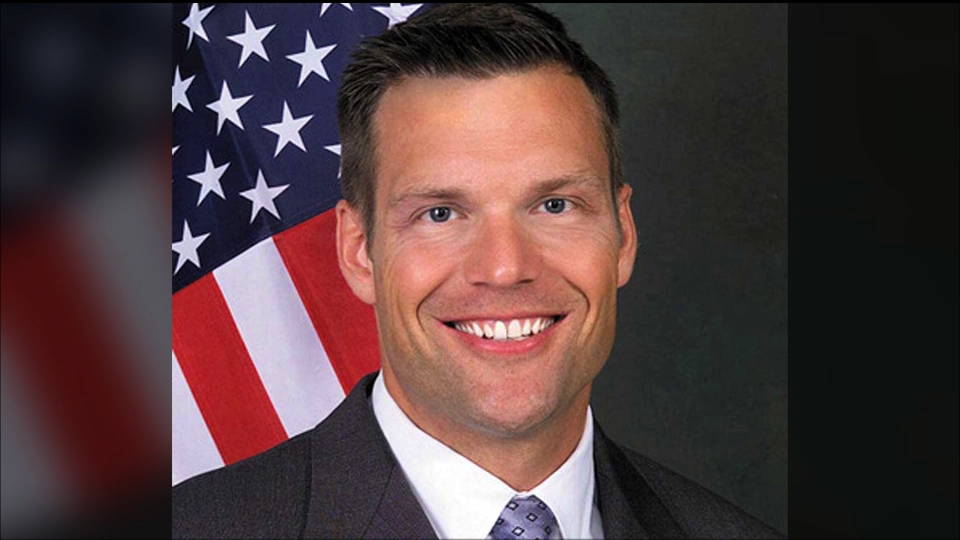
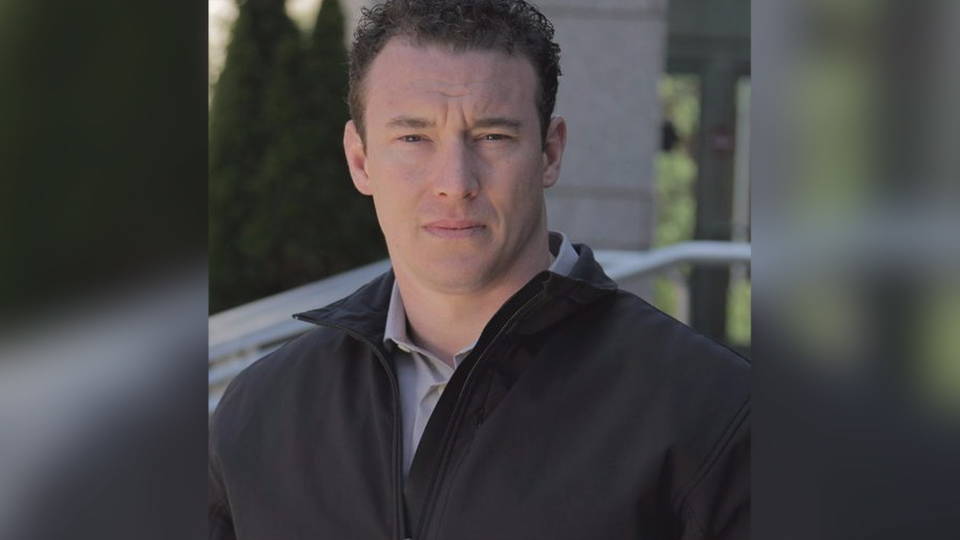
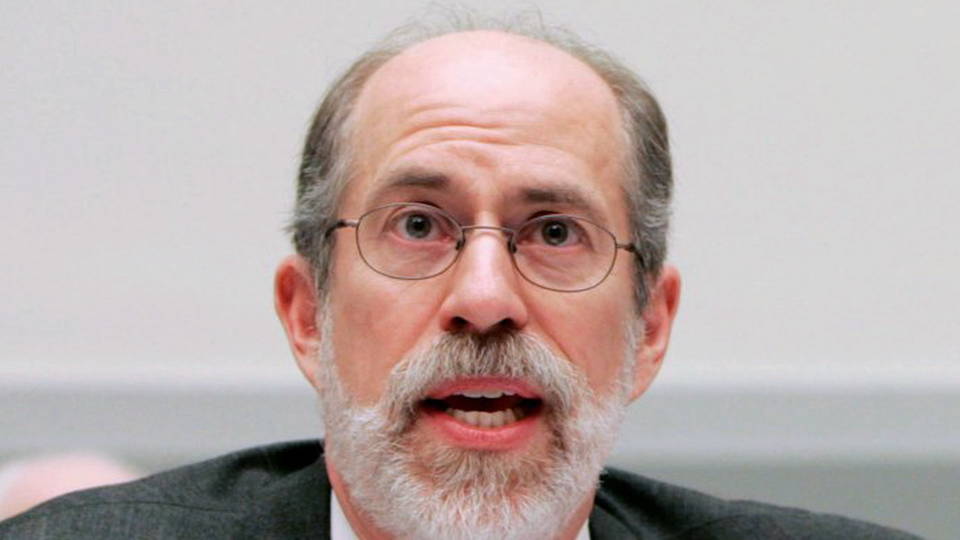
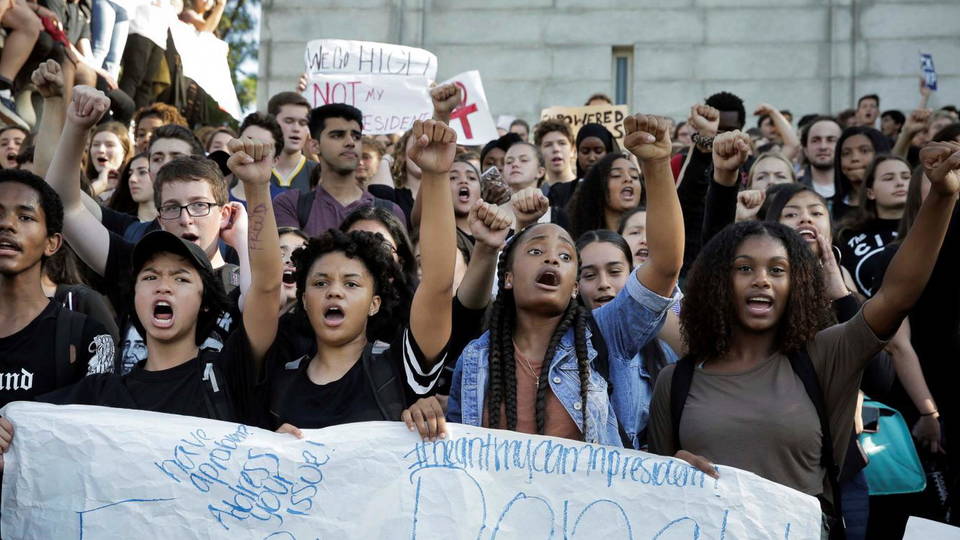
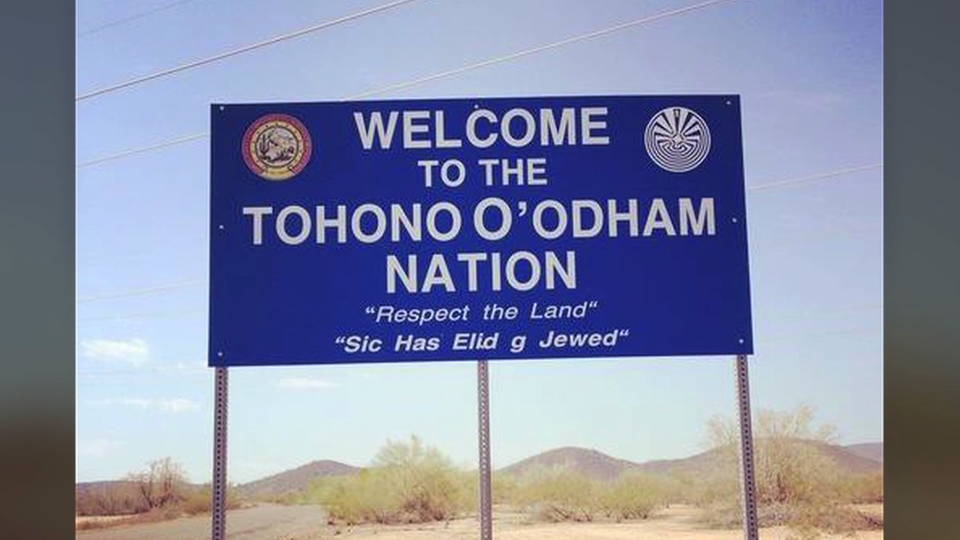
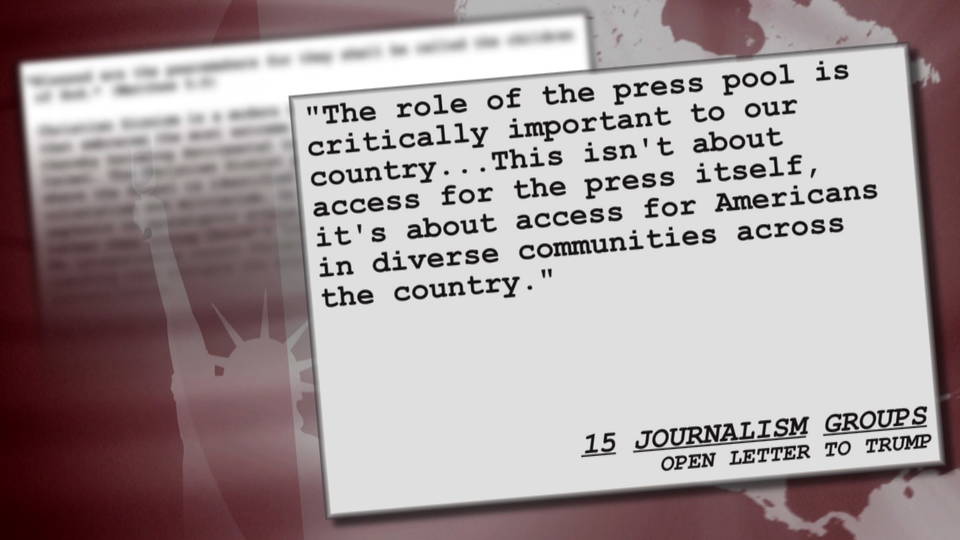
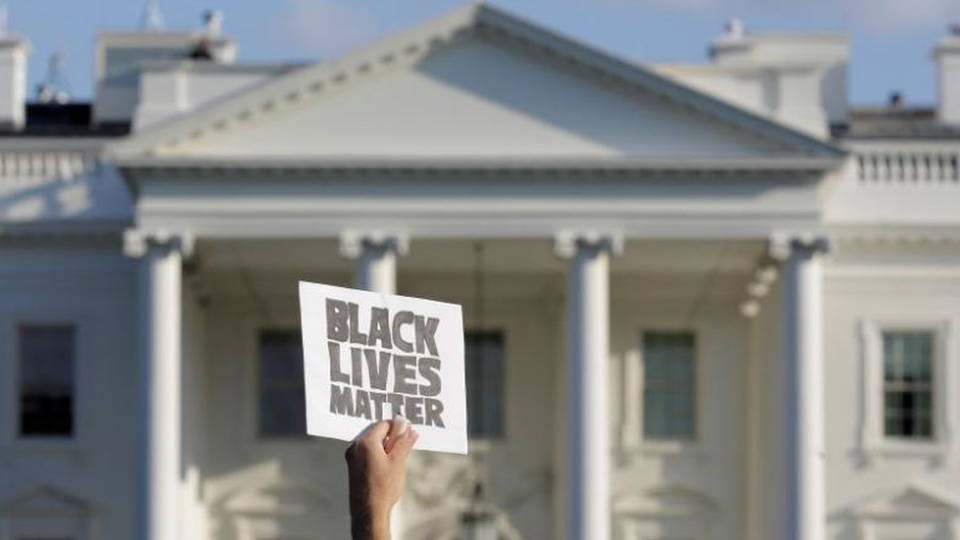
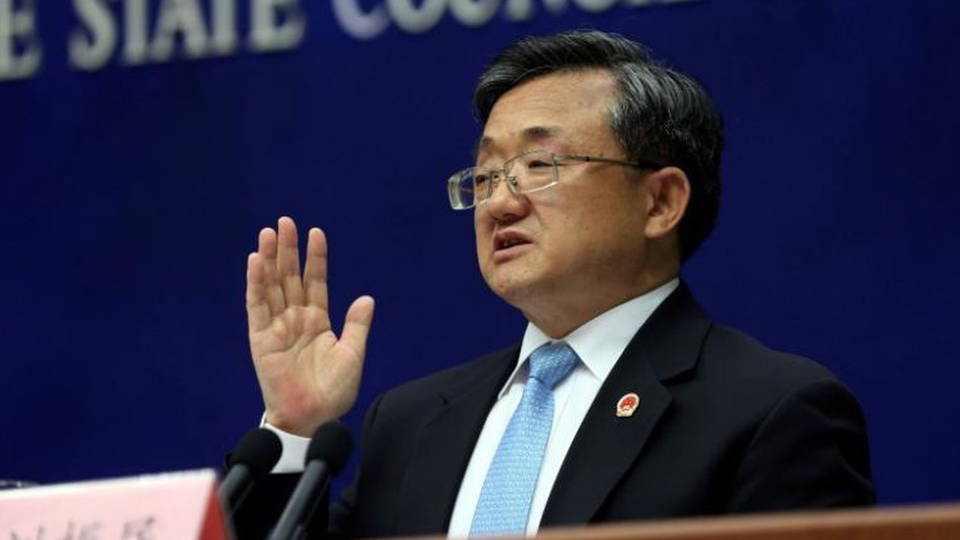

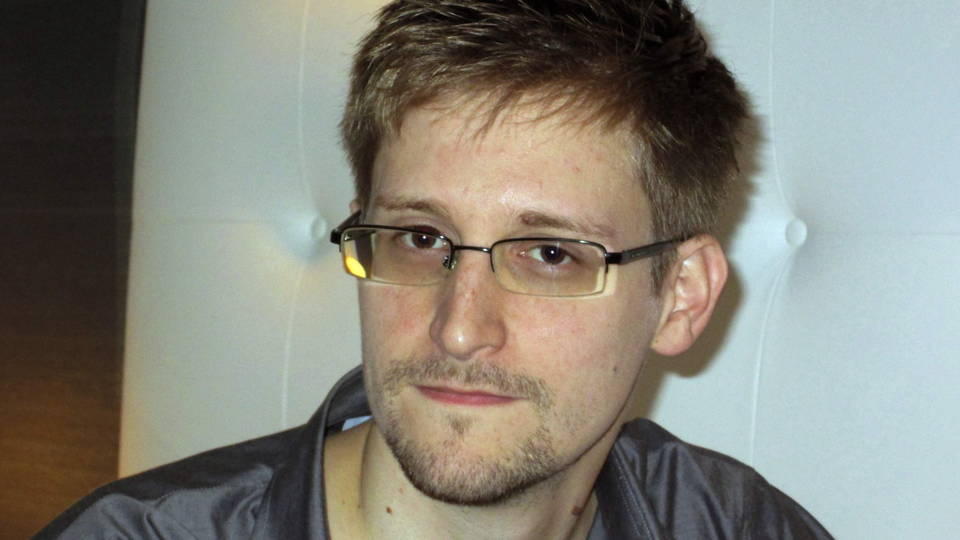
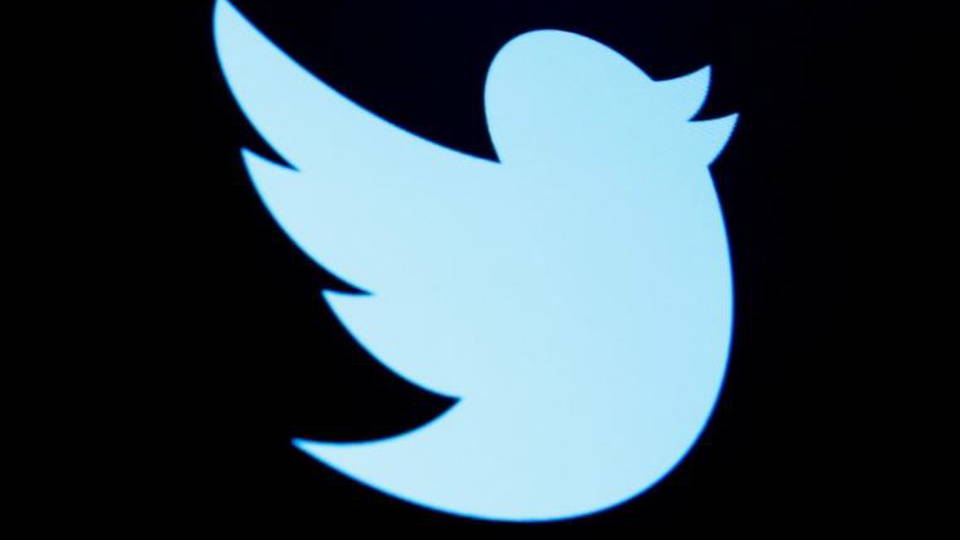
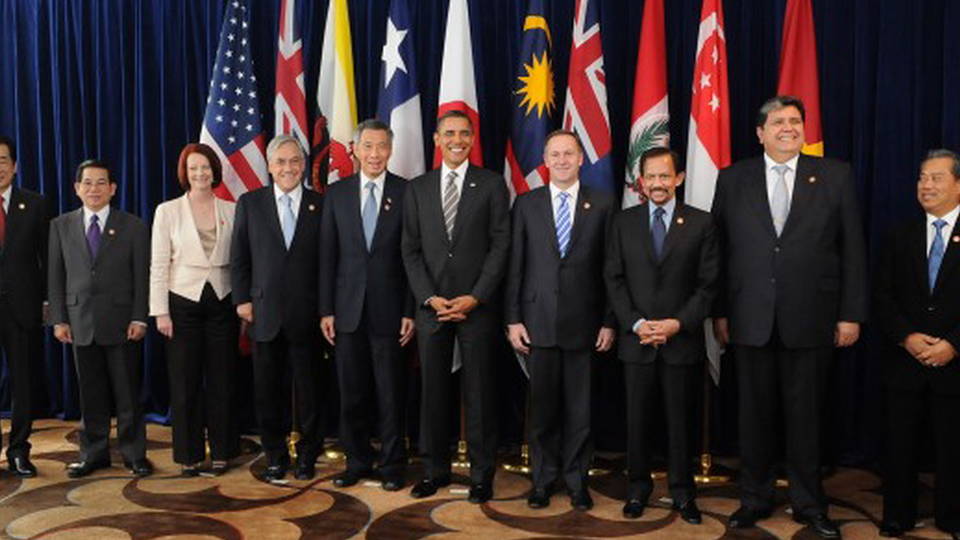
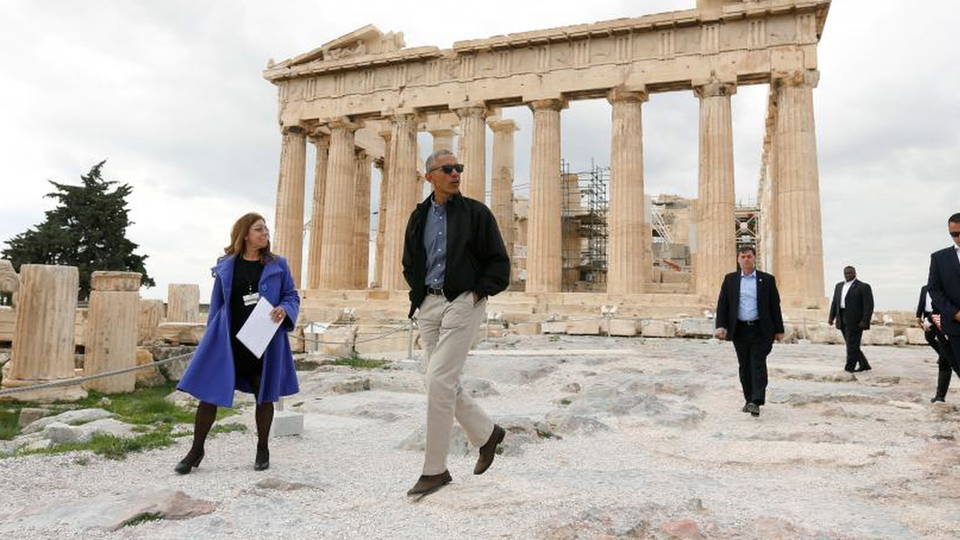

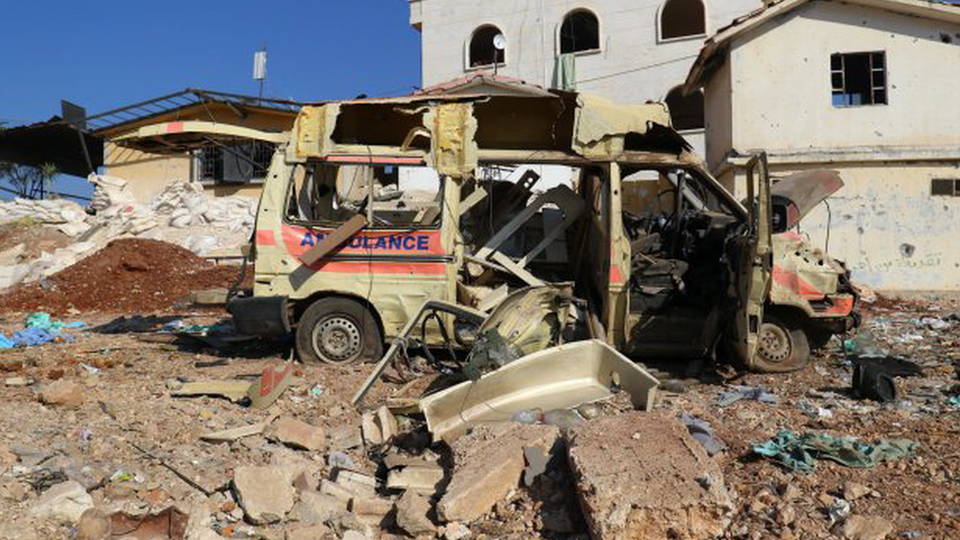
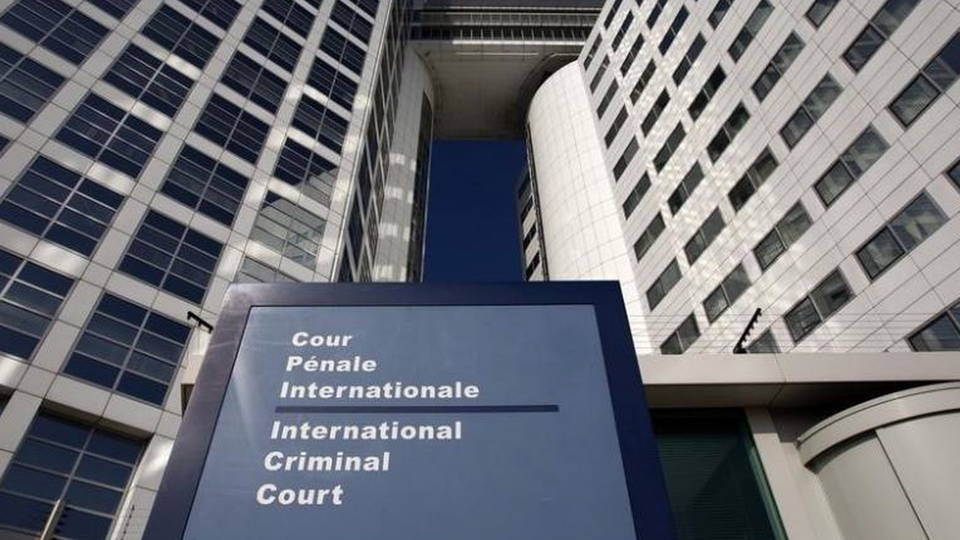
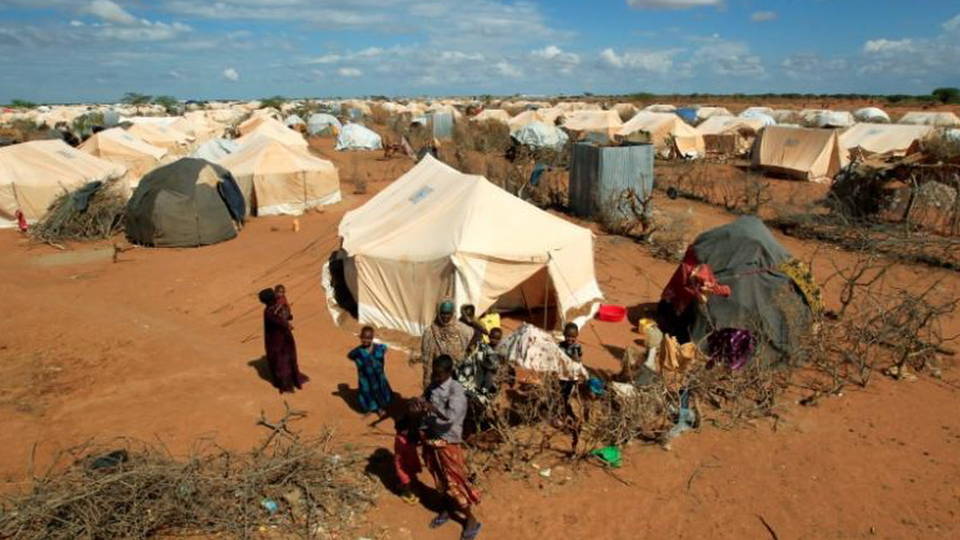
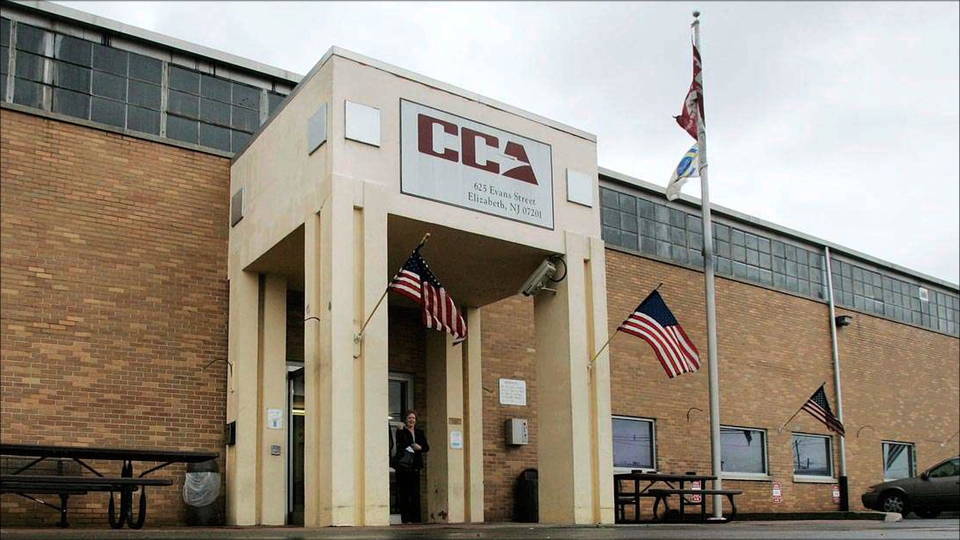
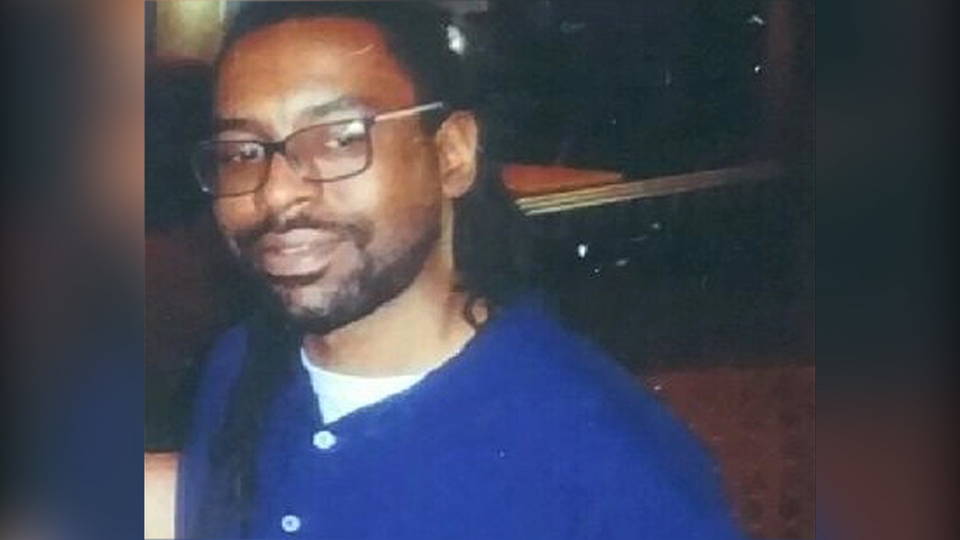
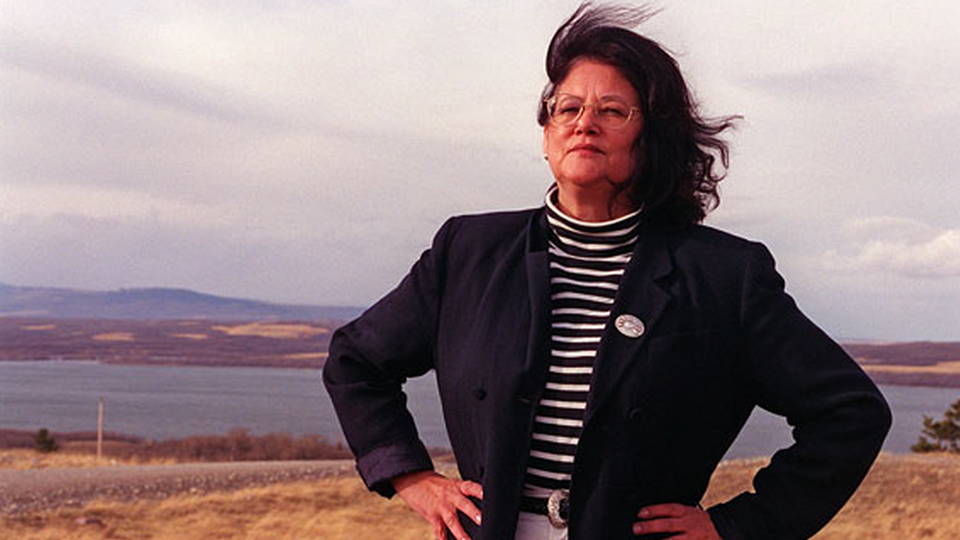
-------
Donate today:
Follow:



CELEBRATE 20 YEARS OF DEMOCRACY NOW!
Democracy Now!'s 20th Anniversary Celebration
NEW BOOK

A member of Donald Trump’s transition team, Kansas Secretary of State Kris Kobach, says the team is moving ahead with plans to build a wall across the entire length of the U.S.-Mexico border and to reinstate a registry for immigrants from majority-Muslim countries. Kobach is an architect of anti-immigrant and voter suppression laws. Following 9/11, he helped design the registry for immigrants from majority-Muslim countries, known as the National Security Entry-Exit Registration System, while working in the Justice Department under George W. Bush. The system was dropped in 2011 after years of criticism from civil rights groups.
Trump Supporter Defends Muslim Registry, Citing Japanese-American Internment Camps

On Wednesday, Carl Higbie, a spokesperson for the pro-Trump Great America PAC, defended the proposed registry of Muslims by citing World War II Japanese-American internment camps while speaking with Fox News’s Megyn Kelly.
Carl Higbie: "We did it during World War II with Japanese, which, you know, call it what you will—"
Megyn Kelly: "Come on. You’re not—"
Carl Higbie: "Maybe wrong, but—"
Megyn Kelly: "You’re not proposing we go back to the days of internment camps, I hope."
Carl Higbie: "No, no, no. I’m not proposing that at all, Megyn."
Megyn Kelly: "You know better than to suggest that."
Carl Higbie: "But what I am saying is that we need to protect America first."
Megyn Kelly: "I mean, that’s the kind of stuff that gets people scared, Carl."
Carl Higbie: "Right, but it’s—I’m just saying, there is precedent for it. And I’m not saying I agree with it. But in this case, I absolutely believe that a regional-based—"
Megyn Kelly: "You can’t be citing Japanese internment camps as precedent for anything the president-elect is going to do."
Carl Higbie: "Look, the president needs to protect America first. And if that means having people that are not protected under our Constitution have some sort of registry, so we can understand—until we can identify the true threat and where it’s coming from, I support it."
Reports: Anti-Muslim Frank Gaffney Joining Trump Transition Team

The Wall Street Journal and The Washington Post have also reported that Frank Gaffney has joined Trump’s transition team. Gaffney is a well-known anti-Muslim extremist whose group, the Center for Security Policy, has been labeled a hate group by the Southern Poverty Law Center. On Wednesday, Gaffney said he hasn’t been in touch with Trump’s transition team, but did tell Politico, "I look forward to helping the President-elect and the national security-minded team he is assembling in whatever way I can."
Students Demand 100+ Colleges Become "Sanctuary Campuses"

Students at as many as 100 colleges and universities across the United States Wednesday held protests demanding their schools become "sanctuary campuses" that refuse to cooperate with immigration authorities carrying out Trump’s plan to deport millions of undocumented people. Speaking on "60 Minutes" Sunday, Trump vowed to immediately deport up to 3 million people. During his campaign, Trump also said he’d reverse President Obama’s executive orders, which include the program DACA—Deferred Action for Childhood Arrivals—which has shielded 750,000 young people from deportation. This is María Maes of Columbia University.
María Muratalla Maes: "I’m here to demand that President Bollinger of Columbia University make my school, our school, a sanctuary campus and also protect the financial aid of undocumented students on this campus and their ability to work on campus."
Tohono O'odham Nation Vows to Fight Trump's Border Wall

In Arizona, the Tohono O’odham Nation has said it will fight Trump’s plan to build a wall across the entire length of the U.S.-Mexico border. The Native American reservation spans 75 miles of the border, and the Tohono O’odham’s ancestral lands extend across both Arizona and Sonora, Mexico. This is Tohono O’odham Nation Vice Chairman Verlon Jose.
Verlon Jose: "Over my dead body will a wall be built. I don’t wish to die, but I wish to work together with people so we can truly protect the homeland of this place they call the United States of America, not only for my people, not only for our Tohono O’odham Nation members, but for the American people."
15 Journalism Groups Write Open Letter to Trump Demanding Access

Journalists are also fighting back against Trump after he ditched his press pool for the second time in less than a week Tuesday night. It’s a long-standing tradition in U.S. politics that presidents and presidents-elect travel with a "pool" of reporters. In response, 15 journalism groups, from the National Press Club to the Society of Professional Journalists, wrote an open letter to Trump saying, "The role of the press pool is critically important to our country … This isn’t about access for the press itself, it’s about access for Americans in diverse communities across the country." Trump also bucked press traditions during his campaign, when he banned journalists from nearly two dozen media outlets, including The Washington Post, from covering his events.
BLM Leaders Issue First Statement on Donald Trump's Election

The leaders of the Black Lives Matter Network have issued their first statement on Trump’s election. In the statement, they called Trump a white supremacist and said, "Today, like every day before it, we demand reparations, economic justice, a commitment to black futures and an end to the war on black people, in the United States and around the world. The work will be harder, but the work is the same."
China to Trump: No, Climate Change is Not Chinese Hoax

Here at the 22nd annual U.N. climate change summit, known as the Conference of Parties, or COP 22, China’s Vice Foreign Minister Liu Zhenmin has rejected Donald Trump’s claim that global warming is a Chinese hoax. Instead, Liu Zhenmin said, "If you look at the history of climate change negotiations, actually it was initiated by the IPCC with the support of the Republicans during the Reagan and senior Bush administration during the late 1980s."
#GrabYourWallet Boycotts Companies Selling Trump-Branded Products

Opponents of Donald Trump have expanded their boycott of Trump casinos, resorts and hotels to include retailers selling products featuring the Trump brand. Using the hashtag #GrabYourWallet, organizers are targeting 32 companies including Macy’s, Amazon, and Bed Bath & Beyond. The boycott comes as the Trump family is accused of cashing in on Donald Trump’s election victory. Trump’s daughter Ivanka appeared alongside her father on "60 Minutes" wearing a gold-and-diamond bracelet from her Ivanka Trump Fine Jewelry collection. The company later circulated an advertisement for the nearly $11,000 bracelet featuring a photograph of Ivanka Trump’s appearance on the program.
Snowden Warns Facebook Growing Too Powerful

In media news, Facebook is coming under fire from critics who say the social media giant helped swing the election for Donald Trump by failing to crack down on an epidemic of fake news articles targeting Hillary Clinton. Such articles drew millions of clicks and featured such phony headlines as "FBI agent suspected in Hillary Clinton email leaks found dead in apparent murder-suicide." Facebook said this week it will stop allowing advertisements to fake news sites, but CEO Mark Zuckerberg has denied the practice played a role in Trump’s victory, and Facebook has not targeted fake news stories posted to users’ news feeds. One member of Facebook’s board of directors, Peter Thiel, supported Trump’s campaign with a $1.25 million donation. Speaking via videostream at a conference in Oakland this week, NSAwhistleblower Edward Snowden warned that Silicon Valley companies like Facebook have become too powerful.
Edward Snowden: "To have one company that has enough power to reshape the way we think, well, I don’t think I have to describe how dangerous that is."
Twitter Suspends Accounts of Alt-Right Leaders

Meanwhile, Twitter has suspended several accounts of prominent members of the "alt-right" movement, criticized for being a haven for white nationalists. But Twitter has not suspended the account of Stephen Bannon, Donald Trump’s chief strategist and a leader of the alt-right movement. Feminists and people of color have for years called on Twitter to crack down on online harassment and abuse. This year, best-selling author and feminist writer Jessica Valenti quit using social media after she received a rape threat aimed at her child.
Trans-Pacific Partnership Trade Deal is Dead

White House officials have quietly admitted that President Obama will no longer push for the Trans-Pacific Partnership, known as the TPP, meaning the massive proposed trade deal is effectively dead. It would have encompassed 12 Pacific Rim nations, including the U.S., and 40 percent of the global economy. In recent days, Malaysia, Vietnam and Japan have all backed away from the deal, following the U.S. decision to abandon it after Donald Trump’s election. The TPP has faced years of global public resistance by those who say free trade deals benefit corporations at the expense of health and environmental regulations. The trade deal was also lambasted by Donald Trump and Bernie Sanders on the U.S. campaign trail this year. Lori Wallach, director of Public Citizen’s Global Trade Watch program, said, "The unremitting push by the Obama administration for the TPP right through this election helped to elect Donald Trump, but Trump has not derailed the TPP—people power united across borders did that."
Obama Visiting Greece, Germany & Peru on Final Presidential Trip

President Barack Obama is on his final presidential trip overseas this week, visiting Greece, Germany and then Peru. On Tuesday, Obama spoke in Athens about Trump’s election.
President Barack Obama: "I do believe, separate and apart from any particular election or movement, that we are going to have to guard against a rise in a crude sort of nationalism or ethnic identity or tribalism that is built around an 'us' and a 'them.'"
Obama Will Not Roll Back Drone Program Before Trump Takes Office

Meanwhile, The Guardian is reporting that President Obama will not tighten rules governing the U.S. drone assassination program before Donald Trump’s inauguration. The decision will leave Trump with the world’s most lethal program of targeted killings. The Obama administration said this year that between 64 to 116 civilians have been killed in drone attacks since Obama took office. However, monitoring groups estimate the death toll from drone-related killings is as much as 10 times higher than that estimate.
Aleppo: Syrian Activists Report 32 Killed by Assad Bombing

In Syria, activists say the government’s renewed bombing campaign against eastern Aleppo has killed at least 32 people and has destroyed a children’s hospital, a blood bank and multiple ambulances over the last two days. This comes after Syrian or Russian bombing destroyed four more hospitals across Syria since Sunday.
Russia Pulls Out of International Criminal Court

Russia has pulled out of the International Criminal Court, only one day after the court called the Russian annexation of Crimea an "occupation" in a report. Philippines President Rodrigo Duterte said Wednesday he might also withdraw from the court. The United States is not a member of the International Criminal Court, although U.S. officials are currently facing the possibility of being prosecuted by the court for war crimes in Afghanistan.
Kenya Delays Closing World's Largest Refugee Camp

Kenya announced it’s delaying the closure of the world’s largest refugee camp for six months following widespread international pressure. As many as 300,000 Somali refugees live in the Dadaab camp, and its closure could force them back into war-torn Somalia.
Federal Bureau of Prisons Renews Private Prison Contract

Back in the United States, the Federal Bureau of Prisons has extended one of its contracts with the for-profit prison company CoreCivic, formerly known as Corrections Corporation of America. This comes despite the fact the Justice Department announced in August the bureau would phase out its contracts with private prison companies, after finding higher rates of violence, abuse and neglect in these facilities.
Minnesota Officer Charged in Killing of Philando Castile

In Minnesota, police officer Jeronimo Yanez has been charged with second-degree manslaughter for killing African American Philando Castile during a traffic stop. Castile’s death was live-streamed on Facebook by his girlfriend, Diamond "Lavish" Reynolds, in an extraordinary video in which she narrated the aftermath of the shooting while she was still in the car, with a police officer pointing a gun at her and her four-year-old daughter as her boyfriend lay dying next to her. Yanez has also been charged with felony charges of endangering the safety of Reynolds and her daughter. It’s the first time in at least 30 years that a police officer in Minnesota has faced charges for killing someone while on duty, and comes after nationwide demonstrations protesting Castile’s killing.
Elouise Cobell Wins Presidential 2016 Medal of Freedom

And President Obama has awarded Blackfeet Nation tribal leader Elouise Cobell the Presidential Medal of Freedom. She was the lead plaintiff in a landmark 1996 lawsuit claiming the U.S. Department of Interior had misspent, lost or stolen hundreds of billions of dollars meant for Native American land trust account holders dating back to the 1880s. After a nearly 15-year legal battle, the U.S. government settled for $3.4 billion, the largest government class action settlement in U.S. history. This is Elouise Cobell speaking on Democracy Now! in 2008.
Elouise Cobell: "In our communities, in our Indian communities, people are living in dire poverty. People that have oil wells pumping in their backyards are not receiving their money. And they don’t have homes. They can’t send their children to school. And it’s a very sad condition. It doesn’t take you very long to drive through an Indian community and see all these wonderful resources, but seeing our communities living in dire poverty. And then, after you find out—and what we found out through this lawsuit is the fact that, well, the government was just using our money to reduce the national debt."
That was Elouise Cobell. She died in 2011. Other recipients of the Presidential Medal of Freedom award this year include artist Maya Lin, actor and environmentalist Robert Redford, singer and songwriter Bruce Springsteen, and basketball legends Michael Jordan and Kareem Abdul-Jabbar.
Donate today:
Follow:




CELEBRATE 20 YEARS OF DEMOCRACY NOW!

Democracy Now!'s 20th Anniversary Celebration
NEW BOOK

As the planet warms, Trump sends a chill through Marrakech BY AMY GOODMAN AND DENIS MOYNIHAN
MARRAKECH, Morocco — The world is reeling from Donald Trump’s election. With each passing day, news of his potential Cabinet and other senior appointments emerges, defining a far-right-wing administration that few could have imagined possible just weeks ago. Protests across the United States continue, day after day, night after night, and have spread internationally. School administrators are making counselors available to deal with the confusion overwhelming their students, especially immigrant children who fear they or their parents may well be targeted as part of Trump’s promised roundup and deportation of 3 million undocumented people.
Nowhere is the immediate and potentially devastating impact of Trump’s capture of the presidency felt more clearly than at the United Nations climate change summit here in Marrakech. Four years ago, Donald Trump famously tweeted, “The concept of global warming was created by and for the Chinese in order to make U.S. manufacturing non-competitive.” That was Donald Trump the reality-TV star, the leader of the birther movement that sought to delegitimize President Barack Obama by accusing him of being born in Kenya. Now, in the year 2016, predicted this week by the World Meteorological Organization to be the hottest year in history, Trump the climate denier is about to assume the presidency of the United States.
One year after the nations of the world reached the historic, if limited, Paris Agreement on climate change, this meeting in Morocco was to be “Action COP” (for Conference of the Parties to the agreement). This is where the global community would put its collective shoulder to the wheel to implement a complex array of strategies to “de-carbonize” the world economy, to break our addiction to fossil fuels, in time — hopefully — to limit the increase in the planet’s average temperature to 1.5 degrees Celsius, or, failing that, to cap the rise to 2 degrees Celsius (or 2.7 to 3.6 degrees Fahrenheit). United States cooperation or, more importantly, leadership is essential if we are to combat catastrophic climate disruption. Yet last May at the Williston Basin Petroleum Conference in Bismarck, North Dakota, Trump declared, “We’re going to cancel the Paris climate agreement.”
Where better to deny climate change and trumpet fossil fuels than Bismarck, the capital of North Dakota and the de facto capital of the Bakken shale formation, the area from the Dakotas to southern Canada with vast reservoirs of oil, which is most typically extracted through fracking. Bismarck is only about 30 miles north of the Standing Rock Sioux Reservation, where, just one month before Trump spoke in Bismarck, a resistance camp was established to oppose construction of the Dakota Access Pipeline. The pipeline would carry over half a million barrels of Bakken crude oil per day from North Dakota to Illinois, where it would connect to another pipeline for transfer to the Gulf of Mexico for export.
The resisters, who call themselves water protectors, not protesters, fear the pipeline will inevitably rupture where it crosses under the Missouri River, polluting the fresh-water supply on which they and many millions of people downriver depend. That small camp in April grew to several camps with thousands of protectors, including delegations from over 200 tribes — the largest gathering of tribes in decades. In September, “Democracy Now!” filmed Dakota Access Pipeline security guards unleashing attack dogs on Native Americans. The video went viral, attracting over 15 million views. Networks across the world broadcast it. The Obama administration issued an order delaying, though not yet stopping, Dakota Access Pipeline’s permission to tunnel under the Missouri River. Obama should deny it now. Kelcy Warren, the CEO of Energy Transfer Partners (the parent company of Dakota Access Pipeline), told CBS that under Trump, “It’s 100 percent ... that the easement gets granted and the pipeline gets built.”
The movement to defeat the Dakota Access Pipeline has gone global, as has the opposition to the presidency of Donald Trump. There are daily expressions of solidarity with Standing Rock here at the U.N. climate summit, while discussions abound about the grim implications of a Trump administration on the climate.
Years ago on the “Democracy Now!” news hour, after wrapping up an interview with a Guyanese woman in order to shift to an interview on the U.S. presidential election, she interrupted, “I will be staying on the program for that discussion.” When asked why, she said, “Because people from all over the world should be able to vote for president of the United States.” She made a profound point: The United States is the world’s most powerful country. It has an enormous impact on the world. Donald Trump clinched the necessary Electoral College votes to win, but he clearly lost the national popular vote. Had the world’s population been able to vote, Trump would have lost resoundingly. Fortunately, the fate of the planet is not in the hands of one man. It’s up to movements everywhere to save it.
-------207 West 25th Street, 11th Floor
New York, New York 10001, United States
-------
Democracy Now! Daily Digest: A Daily Independent Global News Hour with Amy Goodman & Juan González for Wednesday, November 16, 2016
democracynow.org
Stories:

Watch: Bernie Sanders' Surprise Speech Outside the White House on Rejecting Dakota Pipeline & Trump
AMY GOODMAN: That’s Senator Bernie Sanders speaking last night outside the White House in Washington, D.C. Special thanks to Chris Belcher. As actions against the Dakota Access pipeline swept country and world Tuesday, the company behind the pipeline, Energy Transfer Partners, filed a lawsuit in federal court in Washington, D.C., seeking to, quote, "end the Administration’s political interference in the Dakota Access Pipeline review process," unquote. We’ll have more on the pipeline later in the show. But first, after break, we’ll speak with economist Jeffrey Sachs, longtime adviser to Bernie Sanders. Stay with us. ... Read More →

Dakota Access Pipeline Protests Spread to 300 Cities as Pipeline Owner Sues to Continue Construction
TARA HOUSKA: Yeah, and, you know, President Obama has visited the Standing Rock Sioux Reservation. He knows these people. He’s held these children. He understands, you know, Native America. He’s been out there, and knows the issues that face our communities—poverty, you know, all these different continued—you know, continued situations of Native people living in the United States that are treated disparately, have less than and are treated as less than. And so, for this project to be happening, and the largest gathering of Native Americans and the coming together of hundreds of indigenous nations, because extractive industry projects impact our communities disparately, because we know how this feels in our own communities—for him not to respond to this, and, instead, say things like, "We’re going to let it play out over the next several weeks," when Native American men, women and children are being maced and shot with rubber bullets and arrested—I just got arrested on Friday. You know, being zip-tied and thrown into a dog kennel for six hours is not something that should be happening in this country. It’s not something that, you know, should be overlooked and let to play out over several weeks. It’s an abomination. It’s a shameful moment for United States. And so, you know, President Obama needs to— ... Read More →

Indigenous Activist Zip-Tied & Locked in Dog Kennel for 6 Hours for Protesting Dakota Access Pipeline
AMY GOODMAN: Tara Houska, I want to bring in—I want to bring in our other guest today. Tara Houska is with Honor the Earth, has spent a long time now at the Standing Rock Reservation in support of the resistance. ... Read More →

First Nations Indigenous Leader Kevin Hart: We Must Protect Our Sacred Sources of Life & Water
That does it for our show. We’ll be celebrating Democracy Now!’s 20th anniversary with Harry Belafonte, Noam Chomsky, Patti Smith and many others December 5th in New York City. Go to our website to join us and look at the details, democracynow.org. ... Read More →

Jeffrey Sachs: We Need a Democratic Party Speaking the Truth Like Bernie Sanders & Keith Ellison
This is Democracy Now! When we come back from break, we’re going to look at the Dakota Access pipeline and Energy Transfer Partners, the owner of the pipeline’s suit against the Obama administration demanding that the government get out of the way so they can build DAPL. Stay with us. ... Read More →

Jeffrey Sachs: The U.S. Will Become a Pariah State If Trump Pulls Out of Paris Climate Accord
JEFFREY SACHS: Well, first of all, legally he can’t, and politically it would be a disaster, and diplomatically it would be a disaster. The whole world would put the U.S. as a pariah. What it means for me, first of all, is if terrible names are proposed, I expect the Democrats to filibuster, plain and simple. We cannot let people that are going to wreck the country, wreck the future, into office just because somebody’s named. We know that Democrats have a lot of power if they choose to use it. I expect them to use it. I expect Bernie Sanders and Elizabeth Warren and other progressive leaders to be saying, "We’re not going to let our country get wrecked." That’s what politics is. ... Read More →

Jeffrey Sachs Praises the Youth Activists Suing the U.S. Government & Fossil Fuel Industry
JEFFREY SACHS: Look, the world is moving forward. The technology is moving forward. The decarbonization is moving forward. When I go home, I’m going to make that clear, when I visit congressmen and senators, when I talk to people across the United States. People may have to be out in the streets, indeed, if he tries to pull out of the Paris climate agreement. I think it will be the biggest political issue of our time if he tries to pull such a stunt. It would be the worst mistake at the start of a presidency. I think it would basically end the agenda of the presidency. ... Read More →
Headlines:
-------
Democracy Now! Daily Digest: A Daily Independent Global News Hour with Amy Goodman & Juan González for Wednesday, November 16, 2016
democracynow.org
Stories:

Watch: Bernie Sanders' Surprise Speech Outside the White House on Rejecting Dakota Pipeline & Trump
We feature a surprise address by Senator Bernie Sanders outside the White House on Tuesday during a global day of action against the Dakota Access pipeline that included demonstrations in over 300 cities. "Today we are saying it is time for a new approach to the Native American people, not to run a pipeline through their land," Sanders said, demanding that their sovereign rights be honored. He also spoke about the need for politicians to protect access to clean water, recognize that climate change is real and support an aggressive shift away from fossil fuels to sustainable energy sources.
TRANSCRIPT
This is a rush transcript. Copy may not be in its final form.
AMY GOODMAN: We’re broadcasting from Marrakech, Morocco, the site of the U.N. climate summit, or COP 22, the Conference of the Parties. Thousands of protesters gathered across the United States and the world Tuesday for a global day of action against the Dakota Access pipeline. Protests were held in over 300 cities. In New York, dozens were arrested when protesters staged a sit-in outside the U.S. Army Corps of Engineers office. Another 25 people were arrested in North Dakota. Protesters also rallied outside the White House, where Senator Bernie Sanders made a surprise appearance and addressed the protesters.
SEN. BERNIE SANDERS: The issues are very clear. For hundreds of years, the Native American people in our country, the first Americans, have been lied to, have been cheated, and their sovereign rights have been denied them. And today we are saying it is time for a new approach to the Native American people, not to run a pipeline through their land. And we are demanding that sovereign rights of the Native American people be honored and respected.
And the second issue that we are here for this night is to understand that in midst—in the midst of a major water crisis and a growing crisis in our country and around the world, we are not going to allow a pipeline to endanger the clean water that millions of people depend upon.
And the third issue—the third issue is that everybody here understands that not only is climate change real, not only is it caused by human behavior, but it is already causing devastating problems in our country and all over this world. It is totally insane, and future generations will look back on us now and say, "What in God’s name were you doing?"
Our job now is to break our dependency on fossil fuel. Our job now is to move aggressively to energy efficiency and sustainable energies like wind and solar and geothermal. The idea that at this moment in history, when the scientific community is crystal clear that we need to transform our energy system, that at this moment we have the fossil fuel industry pushing for more pipelines, for more dependency on fossil fuel, is totally insane.
So we say to President Obama, in any and every way you can, stop the pipeline. Tell the Army Corps of Engineers that we know—we don’t need any more studies to know—that in the midst of a great crisis, a global crisis with regard to climate change, every environmental study will tell you: Do not build this pipeline. And if there are other approaches, such as declaring Standing Rock a federal monument, let’s do that.
I don’t have to tell anybody here that we have a new president coming in who wants—who wants this country to become more dependent on fossil fuel, who is endangering—endangering the lives of our children and our grandchildren and future generations. What we have got to tell Mr. Trump and everybody else: We are not going silently into the night. The stakes are too high for the future of this planet. We are going to be smart. We’re going to educate. We’re going to organize. We’re going to bring tens of millions of people, moms and dads and their kids, together, together, to tell the fossil fuel industry that their short-term profits are not more important than the future of our planet.
Thank you all very much.

Dakota Access Pipeline Protests Spread to 300 Cities as Pipeline Owner Sues to Continue Construction
Actions were held in hundreds of cities worldwide Tuesday to protest the $3.8 billion Dakota Access pipeline. Many protests targeted the offices of the U.S. Army Corps of Engineers, which has so far refused to grant Energy Transfer Partners the final permit to drill underneath the Missouri River. This comes as a joint statement by the Army and the Interior Department announced they had "determined that additional discussion and analysis are warranted in light of the history of the Great Sioux Nation’s dispossessions of lands." Meanwhile, the company wants the court to order that Energy Transfer Partners already has the right to build the Dakota Access pipeline without any further actions or permits from the Army Corps of Engineers. We get response from Tara Houska, national campaigns director for Honor the Earth, who helped organize the call for Tuesday’s day of action.
TRANSCRIPT
This is a rush transcript. Copy may not be in its final form.
AMY GOODMAN: This is Democracy Now!, democracynow.org, The War and Peace Report. I’m Amy Goodman. We’re broadcasting from COP 22. That’s the Conference of the Parties. It’s been going on for 22 years. We’re in Marrakech, Morocco. Actions have been held in hundreds of cities worldwide Tuesday to protest the $3.8 billion Dakota Access pipeline, which would carry crude oil from the Bakken oilfields of North Dakota through South Dakota, Iowa and Illinois. The project has faced months of resistance from the Standing Rock Sioux Tribe, representatives of more than 200 indigenous nations from across the Americas, as well as thousands of non-Native allies—all fearing a pipeline spill could contaminate the Missouri River, drinking source for millions of people. The ongoing encampment in North Dakota is the largest gathering of Native Americans in decades.
In Mandan, North Dakota, at least 25 people were arrested Tuesday as hundreds blockaded a highway and access to one of the pipeline company’s construction yards. The water protectors said the protest was in honor of women who have been the victims of violence and kidnapping in North Dakota’s male-dominated oilfields.
DARLENE GEORGE: Darlene George. I’m a member of the Osoyoos Indian Band. November 15th is the National Day of Women. And, you know, it’s very important that we stand together on this issue, not only for our Earth, but for our children and our children’s children. If we keep extracting our resources as like we’re doing now, there’s not going to be anything left for our grandchildren and our great-grandchildren. And that is not the Native way. Our indigenous way is to protect the Earth so that we have something for our children.
AMY GOODMAN: Massive rallies were also held in Los Angeles, San Francisco, Washington, D.C., New York City, where Curtis Ray Yaz of the Blackfeet Nation spoke.
CURTIS RAY YAZ: [echoed by the People’s Mic] Never mic-checked before. So let me warm up. I’m from the Blackfeet Nation. I’ve been in Standing Rock since August. And everybody asks me, "What is it like to be out there?" It’s hard. It’s cold. It’s waking up cold. It’s going to sleep cold. It’s not sleeping. They have drones over our camp, 24-hour surveillance, bugs in our tents, informants in our meetings. But what brings us forward, day and day and day and day, night after night after night after night, after being in handcuffs over and over and over, I know that they will not stop, because we are not afraid.
AMY GOODMAN: Many of Tuesday’s actions targeted the offices of the U.S. Army Corps of Engineers, which has so far refused to grant Energy Transfer Partners the final permit to drill underneath the Missouri River. In a joint statement by the Army and the Interior Department released Monday, the Army announced, quote, "The Army has determined that additional discussion and analysis are warranted in light of the history of the Great Sioux Nation’s dispossessions of lands," unquote. This is Army veteran Nicole Goodwin.
NICOLE GOODWIN: Today, six members of Iraq Veterans Against the War went to office of the Army Corps of Engineers in New York City asking them to stand down and stand with Standing Rock. Water is life. And the fact that this is happening to the Sioux people and other indigenous peoples around the world is a tragedy. And when will it end? It must be stopped.
AMY GOODMAN: As actions against the Dakota Access pipeline swept the country and world Tuesday, Energy Transfer Partners, which owns the pipeline, filed documents in federal court in Washington, D.C., seeking to, quote, "end the Administration’s political interference in the Dakota Access Pipeline review process," unquote. The company is seeking to have the court order that Energy Transfer Partners already has the right to build the Dakota Access pipeline without any further actions or permits from the Army Corps of Engineers. In the court documents, Energy Transfer Partners said the delays to the pipeline’s completion have already cost nearly $100 million.
Well, for more, we’re joined by two guests. In New York, Tara Houska is with us, national campaigns director for Honor the Earth. She’s Ojibwe from the Couchiching First Nation. We last saw her when we were in North Dakota. Here in Marrakech, Morocco, we’re joined by Kevin Hart, the Assembly of First Nations regional chief of Manitoba. We last saw him Labor Day weekend, when he was representing his nation at the Standing Rock Sioux Tribe resistance camp in North Dakota.
We welcome you both to Democracy Now! Tara, let’s begin with you. You’re in New York. You were leading one of the protests yesterday in New York against the Dakota Access pipeline. This is breaking news, as of yesterday, that Energy Transfer Partners, the company of Kelcy Warren, is seeking to stop the Obama administration from what he calls interfering with the building of the pipeline. And they’re saying they already have the right to build under the Missouri River. Can you respond to this suit?
TARA HOUSKA: First of all, clean drinking water is not a political issue. Clean drinking water is a right, a human right, that we should all have in the United States of America and the rest of the world. You know, to say that this is some type of interference, political interference, miscalculates what drinking water really is.
You know, this company proceeded to build a pipeline without having the permit under the river. They actually admitted it; in federal court, they stated that they thought it was just a formality. And the judge responded and said, "Well, it’s not a formality now, is it?" These companies have been acting without any—you know, any sense of needing to follow the law, needing to follow this permitting process, and just acting like everything is going to be green-lit and their interests come before the interests of the American people, including doing an environmental impact statement. That was never done for this pipeline. You know, they allege again and again that it’s so safe. Well, if it’s so safe, then do an environmental impact statement.
AMY GOODMAN: Well, explain that. What would an environmental impact statement involve, and why hasn’t one been done at this point? Is this what the company is most afraid of?
TARA HOUSKA: An environmental impact statement is a stringent level of environmental review. It’s the highest level of review that the federal government can put on a project, which it should on a project of this size. This is an 1,172-mile pipeline, a fracked oil pipeline, going through multiple water crossings, you know, sacred sites, all these different things that the Standing Rock Sioux Tribe is so concerned about and all of the people that have come to support Standing Rock are so concerned about. You know, it’s a level of review that would require cumulative impacts to be considered. So, what is this pipeline going to do to the environment? What is it going to do to the public health? Where are these sacred sites? You know, is it going to impact so many different things along the actual construction and then operation of this line?
Instead, the company used Nationwide Permit 12 and segmented the pipeline into little bitty pieces and did an environmental assessment on these, so the lowest-level environmental review. Nationwide Permit 12 is something for a small-scale infrastructure project, like a boat ramp or something like that. And that’s how they treated a pipeline, a fracked oil pipeline. It’s absolute madness and, you know, something that the company wants, because they can get their projects through faster. And they know that an environmental impact statement, if one was done, this project would never be approved.
AMY GOODMAN: So, what are you demanding right now of President Obama? I mean, they have not granted the permit for the pipeline underneath the Missouri. But you’re not just concerned about President-elect Trump. What do you want Obama to do? He’s still in power for two months.

Indigenous Activist Zip-Tied & Locked in Dog Kennel for 6 Hours for Protesting Dakota Access Pipeline
In an update on police treatment of activists at the Standing Rock standoff, Tara Houska, national campaigns director for Honor the Earth, describes how she was "arrested for criminal trespass as I was leaving a peaceful demonstration and getting into my car on a public road." She says police handcuffed her with zip ties and held her in a dog kennel for six hours without charging her with a crime. "After that, I was strip-searched and then thrown into jail and, finally, late, late that evening, was charged with a crime."
TRANSCRIPT
This is a rush transcript. Copy may not be in its final form.
AMY GOODMAN: Tara, I just want to understand—Tara, I just want to understand what you just said. What happened to you on Friday? Where were you? And where were you put?
TARA HOUSKA: Yeah, I was arrested for criminal trespass as I was, you know, leaving a peaceful demonstration and getting into my car on a public road. They arrested us and zip-tied us on the side of the road for two hours. We were then thrown into jail—
AMY GOODMAN: In North Dakota.
TARA HOUSKA: —and put in a dog kennel with—
AMY GOODMAN: And what do you mean, a dog kennel?
TARA HOUSKA: Yeah, it was, you know, a large chainmail dog kennel, for over six hours, while they didn’t even actually charge us with crimes. After that, I was strip-searched and then thrown into jail and, finally, late, late that evening, was charged with a crime.
So, it’s, you know, a situation in which this is happening right now. Native people are being hurt right now. There were people being maced and tased again yesterday. These things are happening. And so, the administration needs to respond. And it needs to say, you know, either no pipeline, which would be ideal—that’s going to be a win for everybody, because clean drinking water is the future, and it’s something that we shouldn’t even be considering putting at risk for an unnecessary and unneeded project—but do an environmental impact statement. If this project is so safe, then do one. You know, the company doesn’t want to do this. It doesn’t want to go through that process, because it knows that this pipeline is unsafe. It knows that it would never meet those standards, and this would never be allowed to happen.
AMY GOODMAN: Tara—Tara Houska, you, you’re an attorney. You’re an indigenous leader. You’ve spent a lot of time at the Standing Rock Sioux resistance camp. You were the indigenous adviser for Bernie Sanders. We just played at the top of the show the speech he gave outside the White House demanding that President Obama deny the permit for the Dakota Access pipeline. Your thoughts on where this movement goes now?
TARA HOUSKA: Working for Bernie Sanders was a great honor and privilege to be in a role in his campaign and to contribute to that, but also to see grassroots mobilization and the power of the people. Millions and millions of people voted for Senator Sanders. And, you know, again, this is a—you know, the Dakota Access pipeline resistance is millions of people around the world coming together and trying to stop this single project, but also to make a stand about the relationship of people to fossil fuels, about indigenous rights, about all these issues. And so, you know, seeing that and these marches against Donald Trump and the power that’s within organizing and the power that’s within, you know, local elections, there were some successes that happened, aside from just Donald Trump’s election. There were several different women of color and people that have never been in represented office before. You know, we have the power to change the conversation, to change the narrative. You know, our social justice, environmental justice, all these different movements coming together and, you know, realizing that we need to stand together—
AMY GOODMAN: Tara—
TARA HOUSKA: —and change the conversation, change the narrative.
AMY GOODMAN: The head—the head of Energy Transfer Partners, Kelcy Warren, has said he’s 100 percent confident that Trump will support the completion of the Dakota Access pipeline. Warren donated more than $100,000 to Trump’s campaign, while Trump has between, oh, half-a-million and a million dollars invested in Energy Transfer Partners. This is Kelcy Warren speaking on CBS.
CBS REPORTER: Once he takes over, January 20th, what are the prospects?
KELCY WARREN: Oh, it’s 100 percent.
CBS REPORTER: A hundred percent that?
KELCY WARREN: That the easement gets granted and the pipeline gets built.
CBS REPORTER: Have you spoken to Donald Trump about the pipeline?
KELCY WARREN: I’ve never met the man.
CBS REPORTER: You’ve never met him?
KELCY WARREN: No.
CBS REPORTER: But he’s invested in you, and you’re invested in him.
KELCY WARREN: Well, I wish him well.
AMY GOODMAN: Your response, Tara Houska, to Kelcy Warren? Kelcy Warren, who runs the Cherokee Creek Music Festival in Texas, great fan of Jackson Browne, who apparently is singing a big event Thanksgiving Day weekend in support of the Standing Rock Sioux on the reservation in North Dakota. Kelcy Warren, the CEO of Energy Transfer Partners.
TARA HOUSKA: I think this is a—you know, that’s a perfect example of the influx and relationship of Big Oil to our current congressional system, to the government, to our elected offices. I mean, these people have never even met, as he said, yet he knows, because of—you know, Kelcy Warren knows, because of Donald Trump’s attitudes and because of the administration that he plans to bring in—you know, his current energy adviser is someone also directly invested in Dakota Access pipeline—that it’s basically just a green light, that they’re just going to go slam these projects through, and it doesn’t matter if the people, the local people, resist, if the local people say no. In their minds, these projects matter more than the people, these profit margins matter more than human beings.
AMY GOODMAN: Tara—
TARA HOUSKA: And so, that’s where we have to come together.

First Nations Indigenous Leader Kevin Hart: We Must Protect Our Sacred Sources of Life & Water
We discuss the negative impact oil pipelines have on water and the climate with Regional Chief Kevin Hart of the Assembly of First Nations, Manitoba, who is attending the United Nations climate summit in Marrakech. "You can see that north of the border, in Canada, that First Nations people, indigenous people, as well as peoples from all walks of life, color and creed, are having great concerns when it comes to the future of pipeline development, not only in Canada, but the United States."
TRANSCRIPT
This is a rush transcript. Copy may not be in its final form.
AMY GOODMAN: Kevin Hart is with us here in Marrakech, Morocco. He is with the Assembly of First Nations in Manitoba, Canada. I last saw him on Labor Day weekend in North Dakota at the resistance camp. This is an astonishing gathering of members of over 200 First Nations and tribes from across the Americas. Why do you think, Kevin Hart, this is so important, this gathering that you came to, as well?
KEVIN HART: Well, we know all too well that Canada is the biggest exporter of oil per—exports to the United States, and that, for myself, as a leader from Canada, that it’s very concerning that I had the portfolio of water and alternative energy, and when I was sent down to the Standing Rock Sioux Nation as an international observer for the Assembly of First Nations, you and I, of course, were on the ground and witnessed firsthand the violence that occurred to the women and the protectors on the ground. And then, leading up to that, we see that escalation of violence that’s occurring on the ground in—at the Standing Rock Sioux Nation, at the camp there.
AMY GOODMAN: How historic is this?
KEVIN HART: Pardon me?
AMY GOODMAN: How historic is this gathering in Native American history? How—
KEVIN HART: Well, the historic part of it is we knew that the—where the camp is situated, Standing Rock, that the last time a large gathering and camp occurred at that spot was just before the Little Bighorn battle.
AMY GOODMAN: So, you have gone from Canada to Standing Rock to here in Morocco. What are you demanding here? Why are you in Marrakech?
KEVIN HART: Obviously, you know that climate change and the environment affect us all. Indigenous peoples across the world, we can say that we contribute the least effects to the environment and climate change, and yet you could see that we feel the full effects when it comes to climate change and the environment across here on Mother Earth.
AMY GOODMAN: Donald Trump has said he wants to restore the permit for the Keystone XL pipeline, from Alberta tar sands, bringing that dirty oil through the United States down to the Gulf of Mexico. What would this mean? And what are you going to do about this?
KEVIN HART: Well, obviously, this is going to have a devastating effect on Mother Earth and especially the sacred source of water that we all talk about. It’s one of our most sacred sources of life for our people, according to the teachings that have been passed down since time immemorial. And for us on the Canadian side, what we call the medicine line, because for us, as Native American people on both sides of the border, there has never been a border there, including with our brothers and sisters in Mexico—so, for us, we know that it’s a very contentious issue when it comes to pipeline development across Canada. You can see that north of the border, in Canada, that First Nations people, indigenous people, as well as peoples from all walks of life, color and creed, are having great concerns when it comes to the future of pipeline development, not only in Canada, but the United States.
It’s concerning that we see President-elect Trump indicating that he would take the Keystone XL project, that was, you know, struck down by the Obama administration, and pledge to build that pipeline going down. And I just have to say that, for myself as the Manitoba regional chief, that pipeline shouldn’t be coming through my region, and he’s going to have a hard battle with our First Nations people on that side of the border.
AMY GOODMAN: Well, Regional Chief Kevin Hart, I want to thank you for being with us, of the Assembly of First Nations, Manitoba, here in Marrakech, Morocco. And thanks so much to Tara Houska.

Jeffrey Sachs: We Need a Democratic Party Speaking the Truth Like Bernie Sanders & Keith Ellison
"Bernie Sanders absolutely would have beaten Donald Trump," says economist Jeffrey Sachs. When asked if the Democratic Party handed the country to Donald Trump, Sachs responds, "I think the Democratic Party handed itself to Wall Street far too much in the last generation. We need a Democratic Party that is speaking the truth like Bernie." He also says he supports Rep. Keith Ellison to be the new head of the Democratic National Convention.
TRANSCRIPT
This is a rush transcript. Copy may not be in its final form.
AMY GOODMAN: And finally, as—your message to the Democratic Party? Do you simply think they—
JEFFREY SACHS: Well, my message is: Stand up. Come on. This is your moment to defend the basic propositions and basic values. And if names are put forward that are outrageous—and a lot of outrageous names have been put forward—you’ve got to act to stop that. And I’m expecting that.
AMY GOODMAN: You continually were told, like many Bernie Sanders supporters, to step back, support the unity; that’s what would be able to take on Donald Trump. Do you feel the Democratic Party made a terrible decision squelching dissent? Do you think Bernie Sanders could have beaten Donald Trump?
JEFFREY SACHS: Bernie Sanders absolutely would have beaten Donald Trump. I don’t think there’s any doubt about that. And that’s what recent extensive surveys have shown. And that’s—
AMY GOODMAN: Because?
JEFFREY SACHS: He would have beaten Donald Trump because he has the trust of the American people. And he still does, and that’s why his voice is so important.
AMY GOODMAN: So, what do you think the Democratic Party needs to learn, the establishment, from a person, a candidate, like Bernie Sanders in the future? Do you feel the Democratic Party handed the country to Donald Trump?
JEFFREY SACHS: Look, I think the Democratic Party handed itself to Wall Street far too much in the last generation. We need a Democratic Party that is speaking the truth like Bernie. We need Keith Ellison at the DNC. We need the leaders that are ready to take on the real battles.
AMY GOODMAN: Why do you think Keith Ellison is important as head of the DNC, first Muslim congressmember?
JEFFREY SACHS: Because he has been the incredibly brave head of the incredibly brave—the Progressive Caucus, the Democratic Progressive Caucus, and—Congressional Progressive Caucus. Let me at least get that right. And he’s been phenomenal in that role. And the Congressional Progressive Caucus has been phenomenal for the American people. They put out The People’s Budget. They’ve been the only ones telling the truth about fiscal policy. I’m including the mainstream Democrats in that, certainly the Republicans. But the Congressional Progressive Caucus has gotten it right. Why? Because they’re brave, they’re strong, and Keith Ellison has been leading them. He’s a wonderful, wonderful person.
AMY GOODMAN: Well, I want to thank you very much, Jeffrey Sachs, leading economist and the director of The Earth Institute at Columbia University, author of many books, including, most recently, The Age of Sustainable Development. His new article for The Boston Globe headlined "Donald Trump and the Rebuilding of America," we’ll link to it.

Jeffrey Sachs: The U.S. Will Become a Pariah State If Trump Pulls Out of Paris Climate Accord
As Democracy Now! broadcasts from the United Nations climate summit in Marrakech, Morocco, the U.S. special envoy on climate change, Jonathan Pershing, says no one from President-elect Donald Trump’s transition team has reached out to him to discuss U.S. climate policy. This all comes as the World Meteorological Organization is projecting 2016 to be the warmest year on record, and Trump has vowed to withdraw from the Paris climate agreement. "Legally he can’t, and politically it would be a disaster," says economist Jeffrey Sachs, director of The Earth Institute at Columbia University. "If Donald Trump goes in the way that his rhetoric … ha[s] portrayed, we’re going to have a brawl in the United States."
TRANSCRIPT
This is a rush transcript. Copy may not be in its final form.
AMY GOODMAN: This is Democracy Now!, democracynow.org. I’m Amy Goodman, here at the United Nations climate summit in Marrakech, Morocco. French President François Hollande has called on President-elect Donald Trump to respect the Paris climate accord, saying the deal is irreversible. Trump is a longtime climate change denier, who has described global warming as a Chinese hoax. He has threatened to pull the United States out of the Paris deal. President Hollande addressed the plenary here in Marrakech Tuesday.
PRESIDENT FRANÇOIS HOLLANDE: [translated] The agreement was historic. And what we have to say here is that this agreement is irreversible. It is irreversible in law. It came into force on the 4th of November. More than 100 states, accounting for two-thirds of greenhouse gas emissions, ratified it. The United States, the largest economic power in the world, the second-largest greenhouse gas emitter, must respect the commitments they have undertaken.
AMY GOODMAN: That was French President François Hollande speaking at the climate talks here in Marrakech. As we broadcast, Secretary of State John Kerry is now addressing the summit. Donald Trump’s threat to pull out of the Paris climate accord has jolted the U.N. talks here. Earlier in the week, the U.S. special envoy on climate change, Jonathan Pershing, revealed no one from Trump’s transition team has reached out to him to discuss U.S. climate policy. This all comes as the World Meteorological Organization is projecting 2016 to be the warmest on record, smashing last year’s record.
We’re joined now by the economist Jeffrey Sachs, director of The Earth Institute at Columbia University. He served as an adviser to Bernie Sanders in his presidential campaign and continues to advise Bernie Sanders, who we just heard speaking outside the White House.
Welcome to Democracy Now! here in Marrakech.
JEFFREY SACHS: Great to be with you and here.
AMY GOODMAN: So, talk about what it means to be in Morocco at the U.N. climate summit, and it seems like every third word out of people’s mouths is "Donald Trump." Talk about his election and what it means for the issue of climate change.
JEFFREY SACHS: Well, first, there are 196 signatories of this Paris Agreement. They’re here. A hundred ninety-five of them have no doubt that they’re continuing forward. One place, with 4.4 percent of the world’s population—our country—suddenly is saying, "Well, we don’t know." But I think, for the vast majority of the world, while they’re worried and dismayed by the words coming out of Washington and out of the team of the president-elect, there is a very clear determination that everything is going to move forward. And when I sit in the technical sessions here, there is no doubt that we’ve already passed the tipping point to a low-carbon economy. Things are moving. The technologies are moving. The innovations that I’m seeing here during this week by tremendous scientific innovators is absolutely phenomenal. So, they could try to go the other way, but they’re not going to succeed. It could be quite a pitched battle in our country.
AMY GOODMAN: Do you see the election of Donald Trump as—do you see his election for sure meaning he will become president of the United States? Let’s put it that way.
JEFFREY SACHS: I do, yes.
AMY GOODMAN: And here you have Hillary Clinton. Maybe she will have close to 2 million votes more than Donald Trump, more than Nixon in his victory, Kennedy in his victory, certainly more than Al Gore and the difference between Al Gore, who surpassed George W. Bush in 2000. Given that, what will happen now? You see mass protests in the streets all over the country, New York Times reporting today that Donald Trump’s transition team in disarray, already fired two of his top advisers. Jared Kushner, his son-in-law, seems to be in charge. They fired Chris Christie, who was the prosecutor who put Jared Kushner’s father in jail, and anyone related to him, to Christie, fired now. Your thoughts?
JEFFREY SACHS: Look, if Donald Trump goes in the way that the rhetoric, his rhetoric and others around him have portrayed, we’re going to have a brawl in the United States politically. It’s—everything will be tied up in tremendous political conflict. For instance, climate change. Bernie Sanders is absolutely right: Tens of millions of people will rally not to have the Earth wrecked. I’m not convinced that it’s all going to be the worst. So, I think we’ll see.
AMY GOODMAN: Why not?
JEFFREY SACHS: Well, it just may not be, because it would be the end of his effectiveness as president right at the beginning. He said he wants to have a trillion-dollar infrastructure plan. I support that idea. We desperately need to build infrastructure. If he’s going to build the kind of infrastructure, like pipelines, that are never going to be used in the future, that are going to bankrupt the investors, that are going cost the taxpayers tens or hundreds of billions of dollars, it’s not going to happen. But if he says, "Ah, OK, we’ll build smart, but we’re going to build," then something could happen.
AMY GOODMAN: Well, Trump has made no secret of his disdain for, for example, the Environmental Protection Agency. He promised to cut EPA regulations 70 to 80 percent.
JEFFREY SACHS: Look, I don’t want to defend the guy; I just want to say that let’s be ready to defend the right things, which is the climate change agreement, our need to move off of fossil fuels, our need to protect the natural environment, to protect the EPA functions. So of course we should be ready to be extremely active and fully engaged in that. All I’m saying is that maybe the worst isn’t going to happen, and he’ll see beforehand not to wreck his presidency from the start by going in a direction that’s opposed by the entire rest of the world.
AMY GOODMAN: Your thoughts on Myron Ebell, the person he’s put in charge of the—what? The EPA—
JEFFREY SACHS: The transition.
AMY GOODMAN: —working group.
JEFFREY SACHS: Yeah, right.
AMY GOODMAN: The transition team. He’s been described as the number one enemy to the climate change community. His own bio highlights how he’s been named a climate criminal by Greenpeace. He’s not a scientist himself—
JEFFREY SACHS: No.
AMY GOODMAN: —but completely denies the science, is proud of the support he’s gotten over the years by the oil interests.
JEFFREY SACHS: Look, we’re going to see the names that come forward. Some are absolutely frightening. I think that they’re put on the list just to ruin our day. But I think we’re going to see who the names are. That guy would be a disaster at EPA. But he’s not heading the EPA or being proposed for it, at least up until now. He’s just—he’s heading a team that supposedly is picking the new name. So, I am only saying that we should be ready for absolutely defending what are fundamental—
AMY GOODMAN: And what does that mean, that kind of organizing? What does that mean? For example, Donald Trump says he’s pulling out of the Paris Agreement. What does it mean to resist it?

Jeffrey Sachs Praises the Youth Activists Suing the U.S. Government & Fossil Fuel Industry
A federal judge in Eugene, Oregon, has just ruled that 21 young Americans can proceed to trial in a suit against the Obama administration. The suit alleges that the government has known about climate change for decades, but failed to address it, denying these children and teenagers their right to a safe future. "This is an extraordinarily important case, because these plaintiffs have alleged that their fundamental due process rights have been violated by the failure of the U.S. government to have a proper climate plan that’s going to keep them safe," says economist Jeffrey Sachs, director of The Earth Institute at Columbia University.
TRANSCRIPT
This is a rush transcript. Copy may not be in its final form.
AMY GOODMAN: We’re talking to Jeffrey Sachs, leading economist, director of The Earth Institute at Columbia University. You’re still Bernie Sanders’ adviser, through the presidential campaign and now. What do you see is Bernie Sanders’ role? We just watched him standing outside the White House giving this speech.
JEFFREY SACHS: Well, he’s a political and a thought leader for tens of millions of Americans. And I think he’s speaking the truth to the public, and that’s why the public resonated. We also know that he would have beat Donald Trump handily had he been in the general elections versus Trump. So, he’s a very, very important figure in America. And when he speaks, people are listening, because he’s speaking the truth.
AMY GOODMAN: I want to turn to a clip right now. A federal judge in Eugene, Oregon, named Judge Ann Aiken, has just ruled that 21 young Americans can proceed to trial in a suit against the Obama administration. The suit alleges that the government has known about climate change for decades, but failed to address it, denying these children and teenagers their right to a safe future. Last year, Democracy Now! spoke to Aji Piper, 15-year-old Seattle resident and a member of Earth Guardians’ Rising Youth for a Sustainable Earth. He’s one of the youth plaintiffs in the landmark lawsuit filed by Our Children’s Trust.
AJI PIPER: What concerns me most about climate change is—I mean, it’s a very, like, hard thing, because you have to imagine, like, the future. And we know, like, if we don’t act on climate change, the world is not going to, like, end in like a flash and a bang. But what will end up happening is either my generation will feel the effects, where we have to fight for survival. On the Earth, you know, life will be very, very different. It won’t be like—we won’t be as privileged to live on the Earth. It will be a lot harder. But then also you think about, you know, we’re putting generations that haven’t been born yet and generations to come in the position where they have to deal with that, and that’s not a position anybody should be put in. And it’s just not fair. So it’s a moral, logical thing.
AMY GOODMAN: So, tell us about the children’s suit and what this means to go forward, Jeffrey Sachs.
JEFFREY SACHS: This is an extraordinarily important case, because these plaintiffs have alleged that their fundamental due process rights have been violated by the failure of the U.S. government to have a proper climate plan that’s going to keep them safe, and that the United States government is not exercising its most fundamental public trust functions. And while the government then made a motion to dismiss this case, the judge said, "Not so fast. There are real, crucial issues that have been raised here. This has to go to trial." And this is a marvelous step forward.
Now, the fact of the matter is, what is the business of President Obama’s Department of Justice defending such a claim? It should be standing with the children and saying, "You’re absolutely right. We need a plan." In fact, they should be saying, "We’re putting forward a plan, and we want to see it under court supervision." This is precisely the agreement that should now be reached with these plaintiffs.
AMY GOODMAN: Back here in Africa, where we are, COP 22 is being held in North Africa, in Morocco. Some say the future of the African continent is not a priority here. On Tuesday, we spoke to Nnimmo Bassey, director of Health of Mother Earth Foundation in Nigeria. He said, quote, "This is COP 22. For us, it’s like Catch-22, because, either direction, Africa is going to lose. The rich countries are forcing the process to go in the direction of polluters continuing to pollute without stopping pollution. And if polluters continue to pollute, no matter how much money anybody makes from carbon trading, from carbon offsetting, like reducing emissions from deforestation and degradation, and all the other marks of marketed environmentalism, it’s not going to add up to actually reducing the amount of carbon in the atmosphere, which means the temperature is going to rise." So that’s Nnimmo Bassey. Your response?
JEFFREY SACHS: I don’t think that’s quite right, because Africa has a phenomenal amount of zero-carbon renewable energy. The best sunshine in the world stretches across the Sahel, countries like Chad and Niger and Mali that desperately need electrification. Here, you have the great solar energy potential, a tremendous hydroelectric power potential that should be tapped and can be tapped safely. So there’s wonderful opportunities here. And I’ve been in workshops and seminars all week discussing very practically how Africa can move forward and also electrify the rural areas through microgrids. I was just in a workshop of leading engineers on that. I think there is a lot of excitement. Of course, Nigeria is an oil country that has been despoiled by oil and by the massive pollution in the Niger Delta. And one of the things that needs to happen in a country like Nigeria is a cleanup, and Shell needs to take responsibility for its historic role in that. It hasn’t done so yet.
AMY GOODMAN: Well, Jeffrey Sachs, I want to thank you very much for being with us. Any final comments as you head off to last few days of this climate summit, what you want to see happen, and what you want to see when you return to your country, to the United States?
Headlines:
Worldwide Protests Demand U.S. Army Reject Dakota Access Pipeline
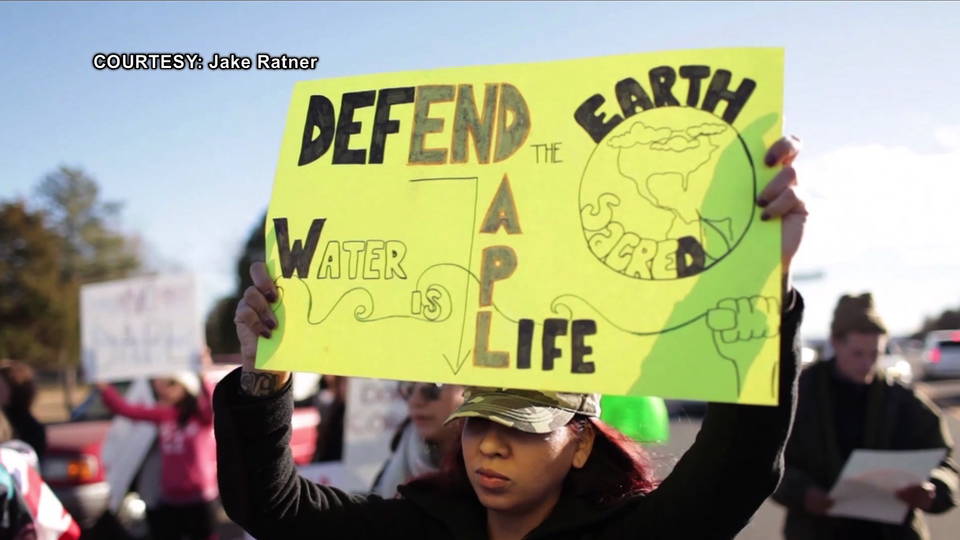
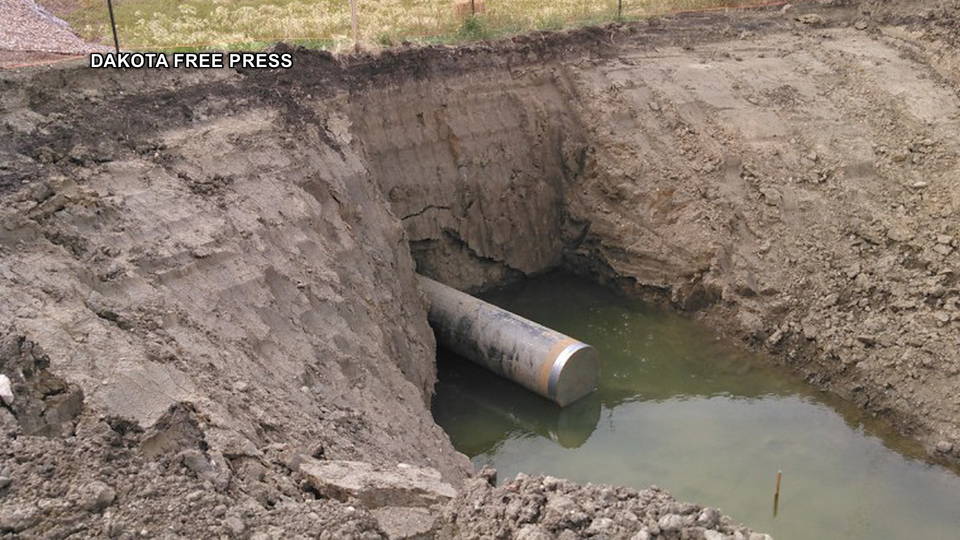
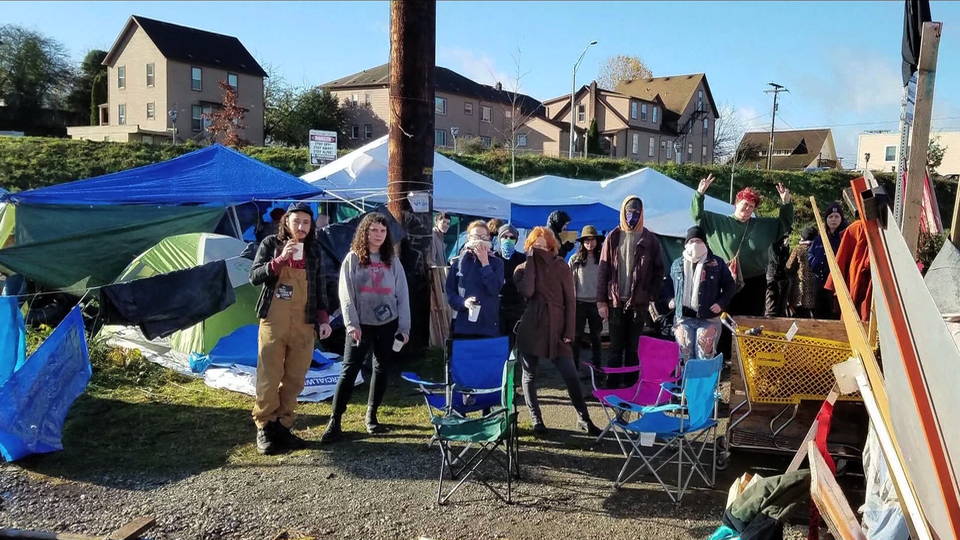
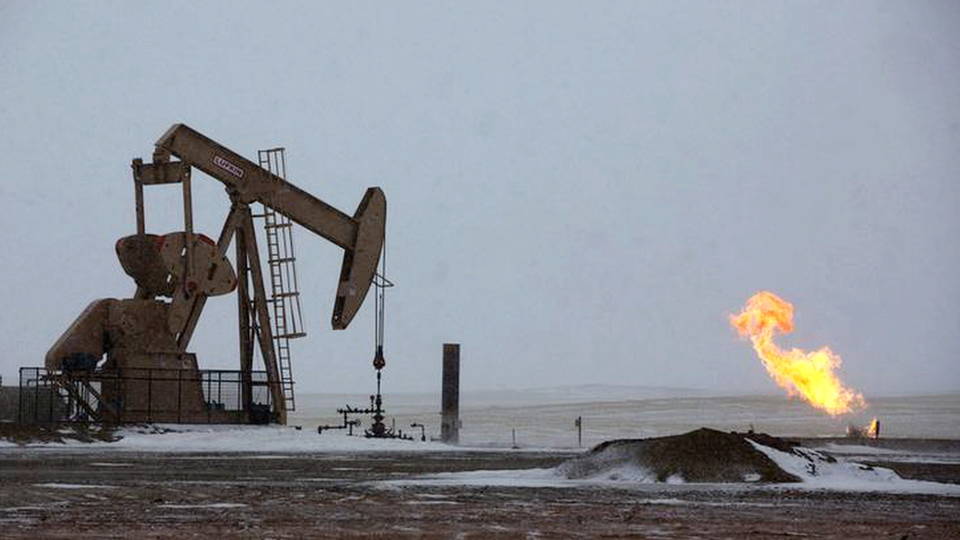
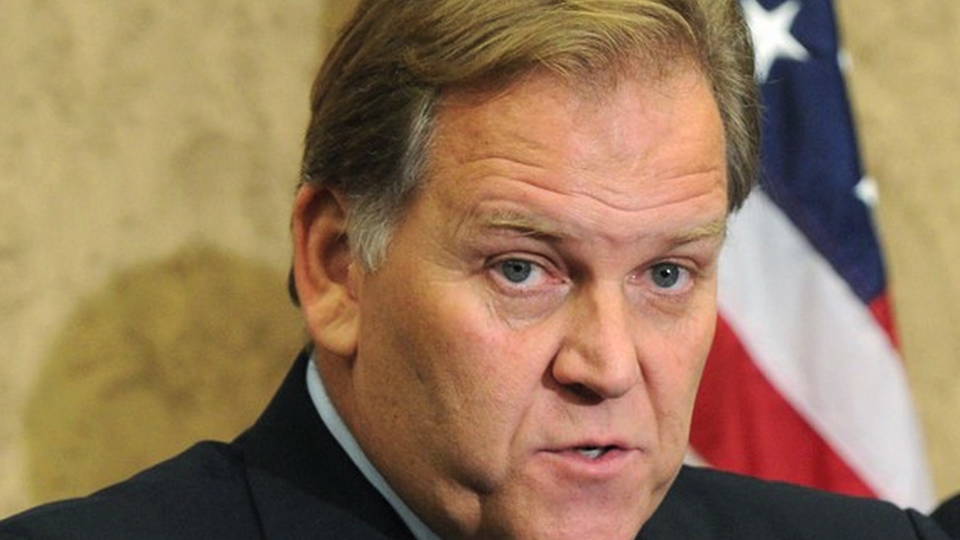
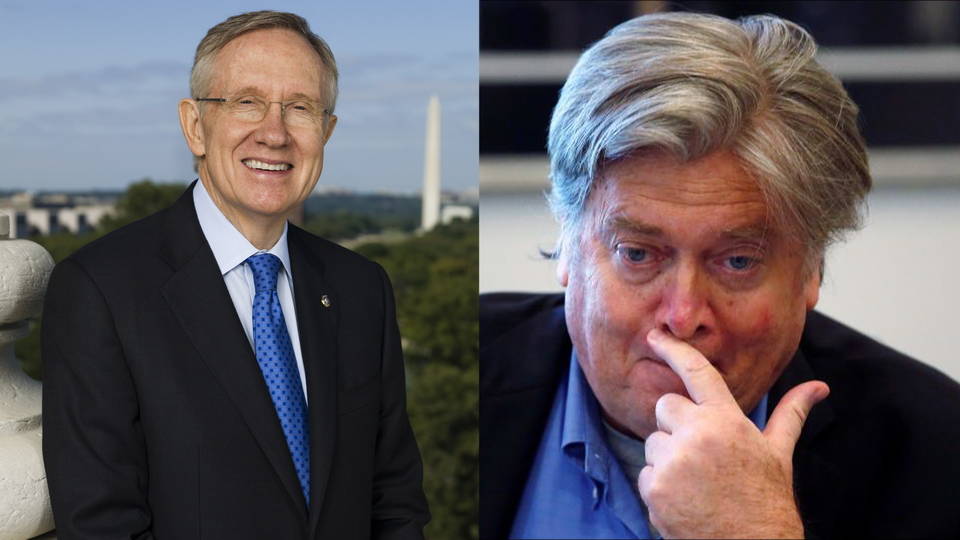
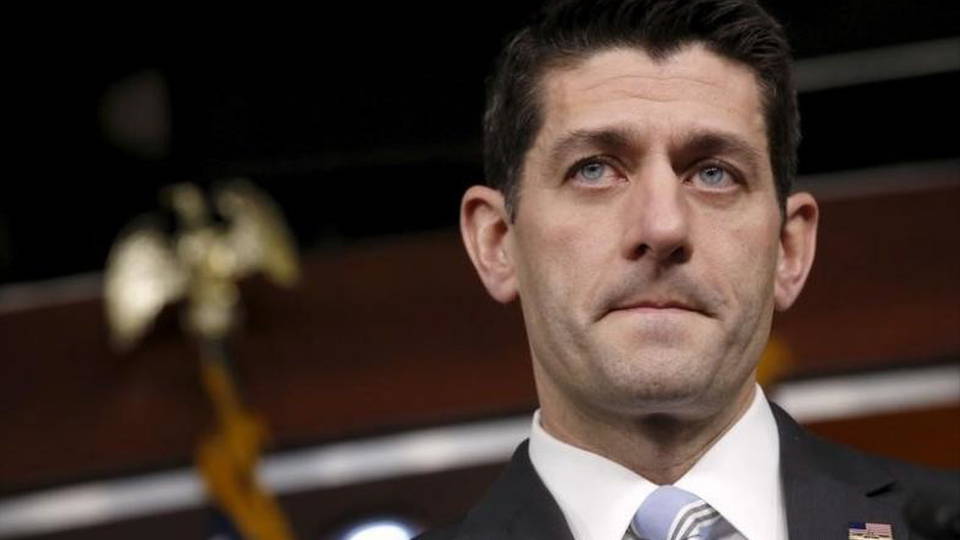
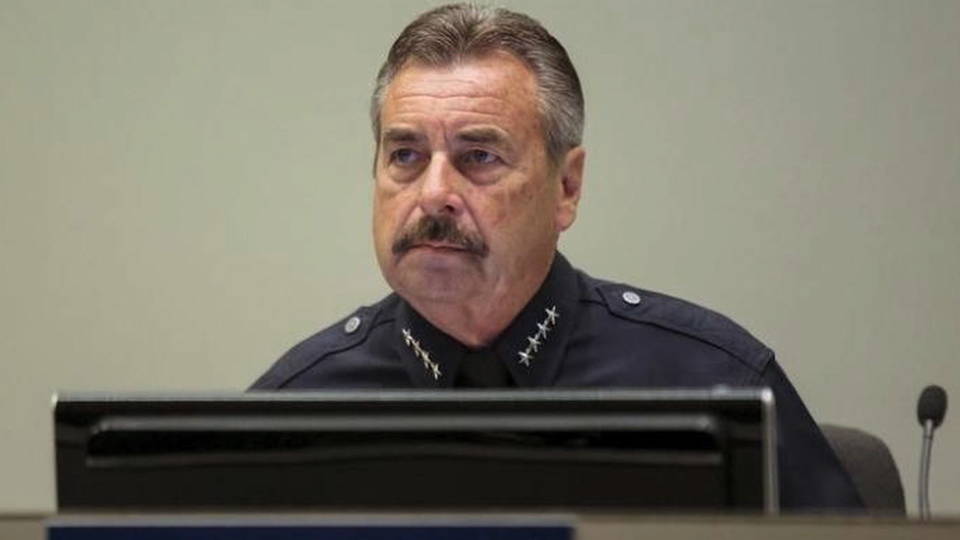
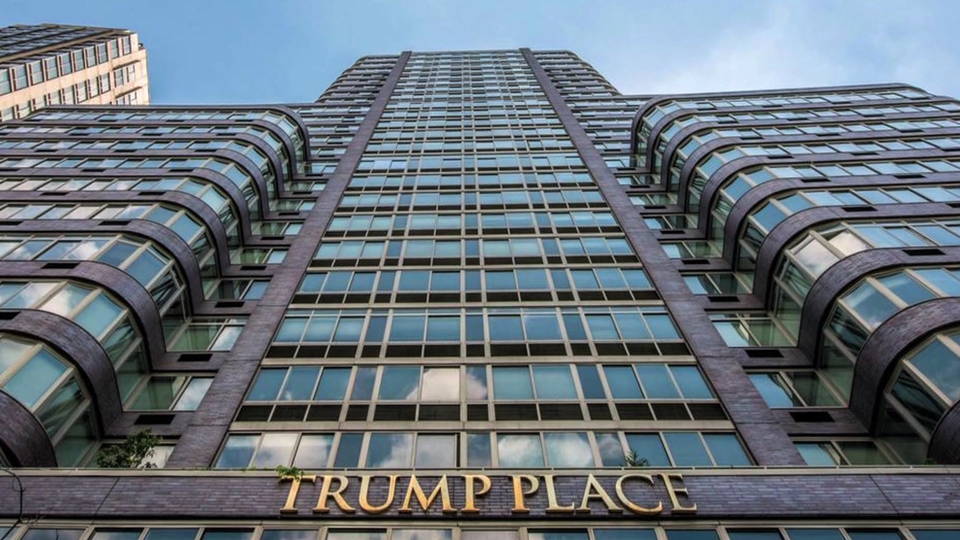
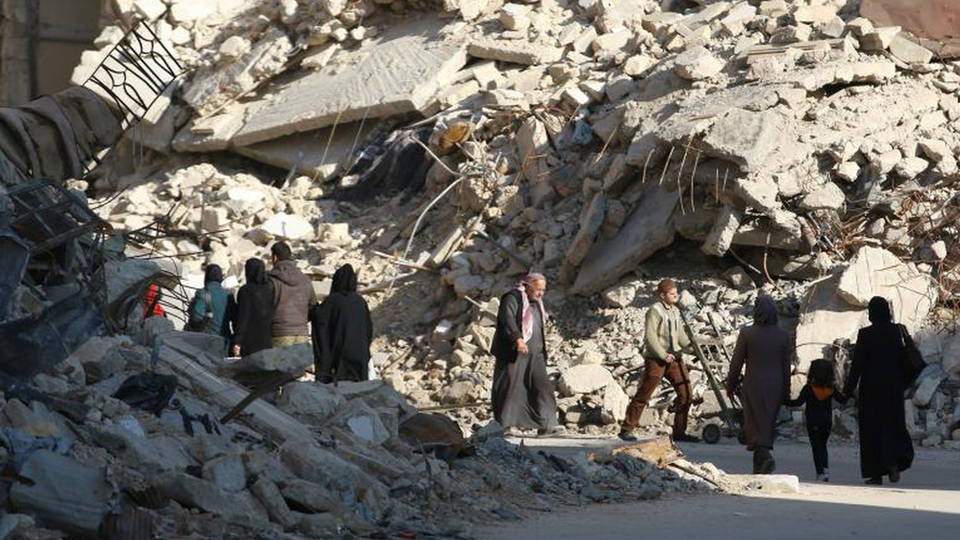
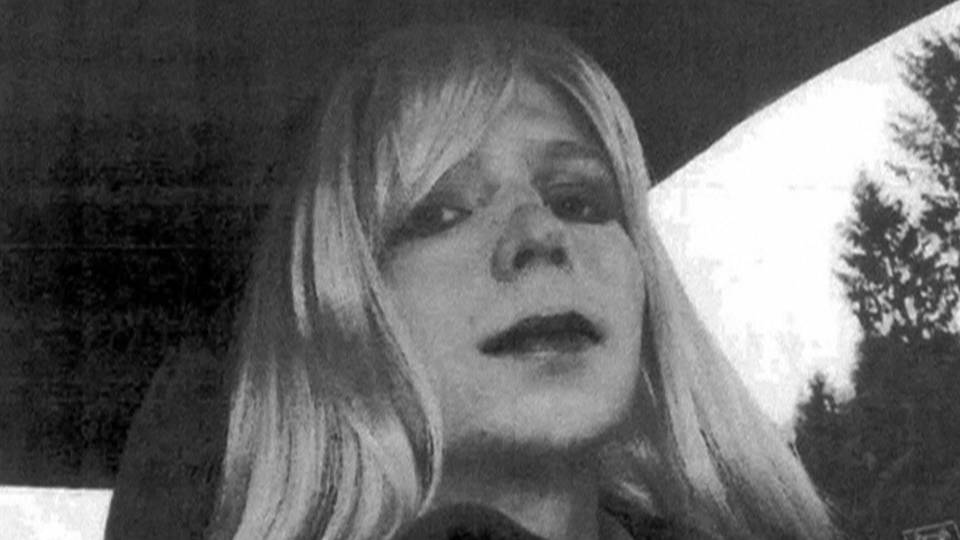
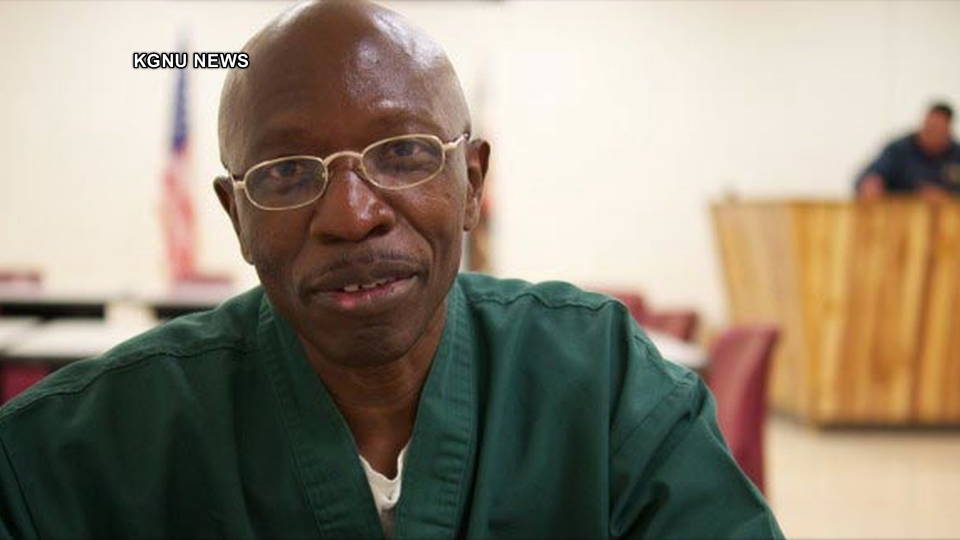
-------
Donate today:
Follow:



CELEBRATE 20 YEARS OF DEMOCRACY NOW!
Democracy Now!'s 20th Anniversary Celebration
NEW BOOK

Actions were held in hundreds of cities worldwide Tuesday to protest the $3.8 billion Dakota Access pipeline, which would carry crude from the Bakken oilfields of North Dakota through South Dakota, Iowa and Illinois. The project has faced months of resistance from the Standing Rock Sioux Tribe, representatives of more than 200 Indigenous nations from across the Americas, as well as thousands of non-Native allies—all fearing a pipeline spill could contaminate the Missouri River, the drinking source for millions. On Tuesday, protesters rallied from Vermont to California. Dozens were arrested across the country. In Mandan, North Dakota, at least 25 people were arrested as hundreds blockaded a highway and access to one of the pipeline company’s construction yards. Massive rallies were held in New York City, Los Angeles, San Francisco and in Washington, D.C., where Vermont Senator Bernie Sanders spoke.
Sen. Bernie Sanders: "The idea that at this moment in history, when the scientific community is crystal clear that we need to transform our energy system, that at this moment we have the fossil fuel industry pushing for more pipelines, for more dependency on fossil fuel, is totally insane."
Many of Tuesday’s actions targeted the offices of the U.S. Army Corps of Engineers, which has so far refused to grant Energy Transfer Partners the final permit to drill underneath the Missouri River. In a joint statement by the Army and the Interior Department released Monday, the Army announced, "The Army has determined that additional discussion and analysis are warranted in light of the history of the Great Sioux Nation’s dispossessions of lands." This is Army veteran Nicole Goodwin.
Nicole Goodwin: "Today, six members of Iraq Veterans Against the War went to office of the Army Corps of Engineers in New York City asking them to stand down and stand with Standing Rock. Water is life. And the fact that this is happening to the Sioux people and other indigenous peoples around the world is a tragedy. And when will it end? It must be stopped."
Delays from Protests Cost Dakota Access Pipeline Company $100 Million

As actions against the Dakota Access pipeline swept the country and world Tuesday, Energy Transfer Partners filed a lawsuit in federal court in Washington, D.C., seeking to "end the Administration’s political interference in the Dakota Access Pipeline review process." In the court documents, Energy Transfer Partners said the delays to the pipeline’s completion have already cost nearly $100 million and that "further delay in the consideration of this case would add millions of dollars more each month in costs which cannot be recovered." We’ll have more on the Dakota Access pipeline later in the broadcast.
WA: Protesters Blockade Trains Carrying Fracking Materials to North Dakota

Meanwhile, in Olympia, Washington, protesters have set up an ongoing encampment called Olympia Stand to blockade trains carrying fracking materials from the Port of Olympia to the Bakken oilfields in North Dakota. The materials being transported by these trains are necessary to extract North Dakota’s fracked oil, which is then slated to be transported to refineries through the contested Dakota Access pipeline. The group Olympia Stand says the blockade is in solidarity with the resistance at Standing Rock.
Report: Canada's $3.3B in Oil & Gas Subsidies Undermines Climate Action

A new report by Canadian environmental groups says annual government subsidies of $3.3 billion to oil and gas companies undermine Canadian Prime Minister Justin Trudeau’s plans to impose a price on carbon dioxide emissions by 2018. Oil Change International said, "This system is like taxing consumers when they buy cigarettes while giving massive tax breaks to tobacco companies that encourage them to produce more cigarettes. It doesn’t make sense."
Trump Transition Team in Crisis Amid Multiple Firings

Donald Trump’s transition team is reportedly in crisis following the firing of former Michigan Congressmember Mike Rogers, who had been handling the team’s national security affairs. Lobbyist Matthew Freedman was also fired from the team. This comes after another shake-up last week, when Trump fired New Jersey Governor Chris Christie as head of the transition team and replaced him with Vice President-elect Mike Pence. Sources told The New York Times that the firings have been orchestrated by Trump’s son-in-law, Jared Kushner, whose father, Charles Kushner, was sent to prison by Christie, when Christie was a New Jersey’s top prosecutor. The New York Times is also reporting world leaders are struggling to reach Donald Trump and are simply calling Trump Tower in efforts to reach him. The Times reports that two of the first two calls Trump took following Tuesday’s election were with Egyptian President Abdel Fattah el-Sisi and Israeli Prime Minister Benjamin Netanyahu.
Harry Reid: Donald Trump Should Fire Stephen Bannon

Democrats are calling on Donald Trump to fire Stephen Bannon as his chief strategist. Bannon is the head of the far right-wing Breitbart Media, which has been accused of being a haven for white nationalists. This is Nevada Senator Harry Reid speaking on the Senate floor Tuesday.
Sen. Harry Reid: "By placing a champion of white supremacists a step away from the Oval Office, what message is Trump sending to the young girl who woke up Wednesday morning in Rhode Island afraid to be a woman of color in America? It’s not a message of healing. If Trump is serious about seeking unity, the first thing he should do is rescind his appointment of Steve Bannon. Rescind it. Don’t do it. Think about this. Don’t do it."
Paul Ryan Retains House Speaker Position

House Republicans donned red "Make America Great Again" hats Tuesday on Capitol Hill as they announced Wisconsin Congressmember Paul Ryan would remain House speaker. His renomination was unanimous, despite fears he would be ousted for not more fully supporting Donald Trump on the campaign trail. Ryan never unendorsed Trump, but did say he wouldn’t campaign for him, following the surfacing of a 2005 video in which Trump openly brags about sexually assaulting women.
L.A. Police Chief Says He Won't Assist Trump in Mass Deportation Plan

Los Angeles Police Chief Charlie Beck has said he will not work with the Department of Homeland Security to carry out President-elect Donald Trump’s proposed mass deportation policies. In a "60 Minutes" interview aired Sunday, Trump vowed to deport up to 3 million people. In response, Chief Charlie Beck said, "If the federal government takes a more aggressive role on deportation, then they’ll have to do that on their own." Trump’s recent promise to deport up to 3 million people comes after President Obama’s administration has already deported more than 2.5 million people between 2009 and 2015—more than any other administration in U.S. history.
NYC: Residents Organize to Drop Trump's Name from Three Buildings

In New York City, hundreds of residents have successfully organized to drop Trump’s name from three apartment buildings on the Upper West Side of Manhattan. His name, which is currently spelled out in big gold letters on the buildings, will be removed next week, after hundreds of tenants signed on to a "Dump the Trump name" petition. The buildings are owned by Equity Residential, but Trump had previously been involved financially in the buildings.
Report: 4 Separate Hospitals Bombed in Syria Since Sunday

Physicians for Human Rights says at least four separate hospitals in Syria have been bombed since Sunday. The group says the airstrikes across northern Syria were carried out by either Russian or Syrian government warplanes. This comes as the Syrian government has launched a new bombing campaign against rebel-held eastern Aleppo, and Russian troops have announced a new offensive against Syrian rebels.
Chelsea Manning Petitions Obama for Clemency Before Leaving Office

Imprisoned Army whistleblower Chelsea Manning is petitioning President Obama to grant her clemency before he leaves office. Manning is serving a 35-year sentence in the disciplinary barracks in Fort Leavenworth, Kansas, after being convicted of passing hundreds of thousands of documents to WikiLeaks. She has been subjected to long stretches of solitary confinement and for years was denied gender-affirming surgery.
Clarence Moses-EL Vindicated After Serving 28 Years for Crime He Didn't Commit

And in Denver, Colorado, a jury has ruled not guilty in the retrial of Clarence Moses-EL, an African-American man who was convicted of rape in 1987 after a woman said she dreamed he was the man who raped and beat her in the dark. Moses-EL has always maintained his innocence. In 2012, another man confessed to the attack. Moses-EL was freed in 2015, after more than 28 years in prison. This fall, prosecutors decided to retry Moses-EL, despite the other man’s confession. On Monday, a jury found him not guilty. This is Moses-EL speaking on Democracy Now! about seeing his grandchildren for the very first time, after he was released from prison last year.
Clarence Moses-EL: "When I was arrested for this case in 1987, my youngest grandson, that I believe the camera showed him the other day when I came out, Arell was the size and age of my son Anthony. He was three, going on four. So, to see my grandchildren, it was just overwhelming to know that my son had grown up into an adult, and now he have children. And to see those children, it was—it was just mind-boggling. I felt good about it, but it was just mind-boggling, because I couldn’t really believe it, that I got grandkids."
Donate today:
Follow:




CELEBRATE 20 YEARS OF DEMOCRACY NOW!

Democracy Now!'s 20th Anniversary Celebration
NEW BOOK

Senior TV Producer
Internships
-------
207 West 25th Street, 11th Floor
New York, New York 10001, United States
-------
Democracy Now! Daily Digest: A Daily Independent Global News Hour with Amy Goodman & Juan González for Tuesday, November 15, 2016
democracynow.org
Stories:

U.S. State Dept. Science Envoy on Trump's Climate Denialism & Why Sanders Could Have Beaten Him
DANIEL KAMMEN: And I think he’s right on the money. To be a climate denier in 2016 is to simply ignore science. A businessman is supposed to be flexible and thoughtful about opportunity. Clean energy is an economic boom, and it’s a boom for equity around the planet. And to turn your back on that is to put ideology over simple, good clean energy business and clean energy jobs. ... Read More →

Climate Advocate: Trump's Racist, Anti-Science Worldview Will Make 1 in 30 People Worldwide Refugees
ASAD REHMAN: Look, we know people leave for many, many different reasons and seek safe haven. And, of course, not far from here we—is the Mediterranean Sea, where each year over 3,000 people drown, escaping poverty, inequality and climate impacts, because of—climate change funds every other existing inequality. So when you speak to people about why they leave, and they say, "I can no longer grow food," or, "I’m hungry," that’s because weather impacts are making it impossible. Seventy-six percent of people in Africa rely on grain-fed agriculture. As extreme weather impacts on our weather systems, it drives people from their homes to cities and then, from there, onwards. But let’s remember, poorer countries provide safe haven to over 83 percent of displaced and refugee and migrant people; rich countries provide very little safe haven. And what’s worrying, of course, is that the response to the existing crisis is walls and fences. And as the U.N. itself has estimated, one in 30 people will be displaced from their homes in the coming decades, unless we take action on climate change now. So it’s a pressing issue, but it’s an issue that I don’t think has been addressed adequately. ... Read More →

The Pentagon Knows Climate Change is Real. Will Donald Trump Ignore the Science?
DANIEL KAMMEN: Well, that was a historic event. And researchers around the planet were really pleased to see the analysis by the Pentagon’s internal experts and external deliberations highlight how climate change changes everything. President Obama used that report to then highlight exactly what we just heard, saying that climate change makes all other problems worse. And in my own work in East Africa, in South Sudan, in Kenya, in Ethiopia, as well as in Southeast Asia, we see this every single day. Communities that are overwhelmed by even relatively small droughts or floods are then displaced. And one of the shames is that what the Pentagon highlighted was that clean energy is one of our best defenses against that, because we can build energy resources for poor communities more rapidly with clean energy than with dirty energy—with none of the downside. And that message resonated across the U.S. government—at State Department, at USAID and our collaborations with the U.K.’s version of the same, with our partners in the Nordic countries. That really galvanized an investment in off-grid technologies, mini grids and a clean energy twist. ... Read More →

What Action Can Obama Take Before a Climate Denier Replaces Him in the Oval Office?
This is Democracy Now! When we come back, we take a kind of geopolitical tour of this country with a Moroccan activist. Stay with us. ... Read More →

Nnimmo Bassey on the Catch-22 at COP 22: Rich Nations Continue to Pollute as Temps Keep Rising
AMY GOODMAN: Nnimmo Bassey, I want to thank you for being with us, Nigerian environmentalist, activist. He is the author of the new book Oil Politics. That does it for our broadcast. I’m Amy Goodman, from Marrakech, Morocco. ... Read More →

A Look at the Other Morocco: From Protests Against Austerity to Occupation of Western Sahara
Coming up, we speak to Nigerian environmental activist Nnimmo Bassey. Stay with us. ... Read More →
Headlines:
-------
Democracy Now! Daily Digest: A Daily Independent Global News Hour with Amy Goodman & Juan González for Tuesday, November 15, 2016
democracynow.org
Stories:

U.S. State Dept. Science Envoy on Trump's Climate Denialism & Why Sanders Could Have Beaten Him
The United Nations has announced that 2016 is very likely to be the hottest year on record, surpassing 2015, which had been the warmest year since records began. Meanwhile, Reuters reports President-elect Donald Trump is seeking quick ways to withdraw the United States from the Paris Accord to combat climate change. Trump is a longtime climate change denier who has described global warming as a Chinese hoax. To talk more about the U.N. climate talks here in Marrakech and the significance Donald Trump’s election for the world’s effort to combat climate change, we are joined by Daniel Kammen, science envoy for the State Department and professor of energy at University of California at Berkeley.
TRANSCRIPT
This is a rush transcript. Copy may not be in its final form.
AMY GOODMAN: We’re broadcasting from Marrakech, Morocco, here at the U.N. climate summit, or COP 22, the conference of the parties. The high-level talks began earlier this morning. The United Nations has announced that 2016 is very likely to be the hottest year on record, surpassing 2015, which had been the warmest year since records began. World Meteorological Organization Secretary-General Petteri Taalas spoke here in Marrakech, Morocco, on Monday.
SECRETARY-GENERAL PETTERI TAALAS: On instrumental records so far, and if you look at the first—first nine months of this year, we are fairly high up again, and we are breaking all the records. And it’s likely that we will—we are going to reach this year 1.2-degree warming level, and we are going the wrong direction, if you think of this 1.5-degree warming level, which was agreed last year in Paris.
AMY GOODMAN: Meanwhile, Reuters is reporting Donald Trump is seeking ways to quickly withdraw the United States from the Paris Accord to combat climate change. Trump is a longtime climate change denier, who has described global warming as a Chinese hoax. On Monday, the U.S. special envoy on climate change, Jonathan Pershing, revealed that no one from Trump’s transition team has reached out to him to discuss U.S. climate policy.
JONATHAN PERSHING: I don’t really have any good insight for you. We are not yet in touch with the transition team. As I noted, they have not yet been named for our agency. We’re waiting to talk with them. I anticipate that will happen soon after I return to Washington. But in the absence of that, we don’t have any information to offer about our expectations for them. They haven’t been in touch with us.
AMY GOODMAN: To talk more about the U.N. climate talks here in Marrakech, Morocco, and the significance of Donald Trump’s election on the world’s effort to combat climate change, we’re joined by two guests. Daniel Kammen is science envoy for the U.S. State Department, professor of energy at the University of California at Berkeley. And Asad Rehman rejoins us today, spokesperson for Friends of the Earth International. He’s based in Britain.
We welcome you both to Democracy Now! Daniel Kammen, let’s begin with you. You’re the science envoy here of the State Department. John Kerry is expected to arrive in a couple of hours here at the U.N. summit. There are a number of world leaders here. The king of Morocco just passed behind us. A new leader has been chosen in the United States—not by popular vote. Still, Hillary Clinton, I believe, has around 2 million votes more, and that votes are still being tallied.
DANIEL KAMMEN: That’s right.
AMY GOODMAN: But when it comes to the Electoral College, it looks like Donald Trump will be the next president. Your response as the climate envoy—the science envoy for the State Department?
DANIEL KAMMEN: Well, sticking to the climate story, I’d like to think that any new head of state, from whatever ideological background, will recognize that the science of climate change is really undisputable. I’ve been a member of the IPCC, the group that does the research to inform the U.N., for 15 years. And the hottest year records fall year after year. The economics of clean energy are overwhelmingly positive in terms of the low prices of solar and wind, the ability to meet both large-scale energy systems in the U.S. and China, but also off-grid options, and to really show that clean energy is actually a populist tool to bring resources to people who need it. So, I’d like to think that message will make it through, but we’ll see what happens as the politics plays out in D.C.
AMY GOODMAN: So, what does it mean for this summit? Donald Trump has been very clear: One of his first acts would be to pull out of the Paris climate agreement.
DANIEL KAMMEN: Well, thankfully for this summit in Morocco, we’re still under the current Obama administration, where the U.S. is playing a strong role to highlight goals for 2030 in the United States through the Clean Power Plan, but, most importantly, to be a partner overseas and around the world with governments like Morocco and Kenya that want to develop clean energy plans. You’re asking about what will happen at the next COP, and opinions vary widely. Pulling out of the COPlegally is a process that would take some time, because not only was it signed and ratified under a month ago, but there is a process to pull out that takes a few years. The challenge is that you can be a passive-aggressive obstructionist by not sending a delegation, by not coming through with U.S. obligations. And to my mind, that would really be turning your back on economic winning opportunities.
AMY GOODMAN: Now, just to be clear, it would take what? Three years and then another year, which would be four years, which is the term of a president, if he wanted to pull out?
DANIEL KAMMEN: That’s true, but that’s for the legal process to remove the U.S. as an official member. There’s lots of steps along the way that are important. We’ve seen that the thing that arguably made Paris a success last year was a non-COPevent. It was the APEC summit in 2014, when President Obama and Premier Xi signed a G2 of climate agreement, if you will, a bipartisan plan to limit emissions and to lead the world in this area. That led the way to Paris. And so, there are very important actions that could be taken that could slow things down.
AMY GOODMAN: Can you explain—when President Obama talks about a peaceful transition, I think many people just mean—you know, that he’s saying people won’t take up guns in opposition, something like that. But actually, it has a very specific meaning. What I am certainly coming to learn here in Morocco from many people around the world, especially people in the United States, that he will not introduce anything new in this lame-duck kind of period, which means—wasn’t the U.S. here supposed to introduce the decarbonization plan of 2050, and now this is just not being introduced?
DANIEL KAMMEN: No, I don’t think that’s quite right, because the U.S. has highlighted a number of commitments that it made in the past months. There’s a number of significant tranches of funding—$500 million here, another $750 million coming. Those things are going to happen during the next days. But what you’re talking about, I think, is the really important effort, because what we’ve learned in the climate process is that your 2020 goals and 2030 goals must be enabling of 2050. They can’t be goals unto themself. And the challenge is that right now the U.S. has a well-thought-through plan. If you don’t follow through on the elements of that, then you do put the larger process of decarbonizing at home and being an enabler and assister around the world in jeopardy.
AMY GOODMAN: I’ve also heard that the Department of Energy had a significant delegation that was coming here, and it was cut by a number of people. Why would the Obama administration not double down as opposed to just start to give in to the new administration?
DANIEL KAMMEN: Yeah, so I haven’t heard the details of that. I know the State Department team will be significant. I’ve met a number of colleagues from Department of Energy—assistant secretaries, deputy secretaries—who are here very much supporting this clean energy domestic and abroad plan. But transitions are often uncertain. And the idea that you can be peaceful militarily, but not necessarily cooperative, is certainly one of the areas where we worry, because diplomacy is not an overnight process. It requires building trust. And that’s one of the things that we’ll have to see what plays out.
AMY GOODMAN: Do you think if Bernie Sanders was the candidate, he would have won this election against Donald Trump?
DANIEL KAMMEN: I do. I don’t think that’s really that ambiguous. When you look at the poll numbers that were head-to-head Trump and Sanders, they were very clearly 10, 15 points for Senator Sanders. And the second feature is that we now know, in retrospect—we didn’t necessarily know at the time—but that many of the things that propelled Mr. Trump were a backlash, an anger and a appeal to undereducated Americans. And Mr. Sanders has spoken eloquently to the needs of lower-income Americans in ways that most candidates for president—Secretary Clinton—have not. And I do think he would have been a powerful candidate in this race. But it’s all speculation in hindsight now.
AMY GOODMAN: Well, let’s go to former presidential candidate Bernie Sanders speaking on Face the Nation about Donald Trump’s climate policy.
SEN. BERNIE SANDERS: What astounds me—and I hope this changes very quickly—is we now have a president-elect who actually does not believe that climate change is real. I worry very much what this means for our kids and our grandchildren and the future of this planet. And millions of people are going to have to tell him, "Mr. Trump, you are dead wrong."
AMY GOODMAN: Bernie Sanders. Response to that, Daniel Kammen?

Climate Advocate: Trump's Racist, Anti-Science Worldview Will Make 1 in 30 People Worldwide Refugees
The U.N. climate summit in Marrakech is taking place not far from the Mediterranean Sea, where thousands of refugees have drowned while fleeing war and famine, due in part to climate change. "One in 30 people will be displaced from their homes … unless we take action on climate change now," says Asad Rehman of Friends of the Earth International. He discusses President-elect Donald Trump’s meeting with Brexit supporter Nigel Farage and notes that leaving would likely lower environmental standards in Britain.
TRANSCRIPT
This is a rush transcript. Copy may not be in its final form.
AMY GOODMAN: Asad Rehman, you’re looking at the United States from the vantage point—well, here, we’re in Morocco, but of Britain, where you live. We discussed this very briefly yesterday, but one of the first world leaders that Donald Trump, the president-elect, met with at his penthouse, Trump Tower, was Nigel Farage, the man who pushed for Brexit. Can you talk about the significance of this? Right now there’s just a plan leaked by the British—out of the British government, that says Britain, even with a conservative prime minister, is not going to be ready to leave the European Union for many months. But the significance of Trump’s meeting?
ASAD REHMAN: Well, first of all, for many environmentalists and people who cared about justice within the U.K., we fought very strongly for the U.K. to remain within the European Union, largely because one of the arguments that was being made for leaving the European Union was a bonfire of regulation, a lowering of the environmental standards, and safeguards for everything from workers’ rights, maternity rights and, of course, inaction on climate change. And, of course, that was combined with a very extreme right-wing popular nationalism that was rooted in xenophobia and racism and anti-immigration feeling, similar very—very similar to, of course, what we heard within the United States. And I think, for many British people, they saw many parallels between the two.
And so, Nigel Farage meeting Donald Trump seems to be very much a parallel of both people speaking about a vision of the world which is really about a insular vision, which is about excluding people, and which isn’t about the kind of positive vision of people coming together to tackle the global problems. It’s very worrying, because not only are we seeing that with Nigel Farage and Donald Trump, of course, now we’re seeing some members of Donald Trump’s entourage saying that they should also be meeting with Marine Le Pen, the fascist leader of the Front National in France. And this is all normalizing a very racist discourse, hatred of people. And, of course, when we face climate crisis and all the other inequalities in the world, this is the moment we need more global cooperation, more solidarity, more justice and more empathy. So, it’s a—it’s definitely a step going backwards.
AMY GOODMAN: So, you’re talking about Marine Le Pen in France. A major target of hers is refugees. In the United States, we talk about immigrants; you could refer to them as "refugees." What about the connection between climate and the world’s refugees?

The Pentagon Knows Climate Change is Real. Will Donald Trump Ignore the Science?
Pentagon-commissioned reports have concluded the effects of climate change over the next 20 years could result in global catastrophe that leads to millions of deaths from war and natural disasters. We get response from Daniel Kammen, science envoy for the State Department and professor of energy at University of California at Berkeley, who argues the report resonated with U.S. officials, and agrees that "clean energy is one of our best defenses against [displacement], because we can build energy resources for poor communities … with none of the downside."
TRANSCRIPT
This is a rush transcript. Copy may not be in its final form.
AMY GOODMAN: Now, Daniel Kammen, what about this? I mean, you’re having top security briefings. I mean, President-elect Trump is right now. Whether his children will be included is another issue, whether he—
DANIEL KAMMEN: We’ll see.
AMY GOODMAN: He’s asked for top security clearance for them. But the Pentagon, more than any other institution, knows the effects of climate change. They have issued warnings, that President Bush kept—tried to keep under wraps, saying this will be the issue—
DANIEL KAMMEN: Right.
AMY GOODMAN: —and the pressure for wars in the 21st century.
DANIEL KAMMEN: Yeah.
AMY GOODMAN: What about that?

What Action Can Obama Take Before a Climate Denier Replaces Him in the Oval Office?
"The clock is ticking on humanity’s ability to tackle the climate crisis," says Asad Rehman, spokesperson for Friends of the Earth International, who calls on President Obama to "raise the bar on climate action" before he leaves office. We also speak with Daniel Kammen, science envoy for the State Department and professor of energy at University of California at Berkeley.
TRANSCRIPT
This is a rush transcript. Copy may not be in its final form.
AMY GOODMAN: Asad Rehman, President Obama is not gone yet. He is there for three weeks in January, not to mention all of December and now November. What do you think he should do? I mean, you’re talking right now to his climate envoy—well, to the climate envoy, the science envoy, for the State Department.
ASAD REHMAN: Look, as we all recognize, the clock is ticking on humanity’s ability to tackle the climate crisis and create a safer and more equal world for all of the world’s citizens. And in that, President Obama can still make a big difference. He can raise the bar on climate action. First and foremost, today is a solidarity day with the Native American people at Standing Rock. He could send a powerful signal, saying, "I stand with those people. I stand with ordinary people trying to protect their water, their air and their land." That would be a positive signal. The United States has really contributed very little to these negotiations. In its fund for the Green Climate Fund, which helps the poorer people be able to adapt to the floods and the droughts that are happening all around the world, the United States currently has given $500 million. It still owes $2.5 billion. He could put—he could make sure that that check is delivered before he leaves.
AMY GOODMAN: OK, what about that, Daniel Kammen?
DANIEL KAMMEN: I think it is a very good point. So we know that the cost of climate change is high on a security basis, on a local basis. And fulfilling as many of these obligations as possible while in office makes a lot of sense, for not only the humanitarian reasons, but it’s actually good business. It promotes the kind of companies, the kind of entrepreneurs, that we think are pro-equality, not just pro-profits.
AMY GOODMAN: Very quickly, Daniel Kammen, right now, although the policy in the U.S. is leading away from coal, talk about what’s happening right now in Kosovo, an issue you know well. You’ve got like 30 seconds.
DANIEL KAMMEN: Yeah. Kosovo is tough case, because there’s a small coal plant in country. It’s the dirtiest in Europe. The U.S. committed earlier this year to not funding overseas coal. It’s a country where the wind and geothermal resources are enough, and yet—study after study from the outside has said go with the clean energy, and yet we’ve seen no switch in position from the World Bank. We haven’t seen a pullback from the U.S. position. It’s the kind of testbed where you want to see clean energy lead, not lag.
AMY GOODMAN: Will you be telling John Kerry this today?
DANIEL KAMMEN: I absolutely will.
AMY GOODMAN: Final comment, Asad Rehman? Thirty seconds.
ASAD REHMAN: Well, Friends of the Earth, all over the world, is committed to building the people power, the power of the movements, to be able to hold all of our governments accountable. We know here government leaders have an opportunity now to send a very positive signal. They could increase their pre-2020 emission target. They could put us on the pathway to keep under 1.5. And they can provide the finance of poorer countries to be able to grow cleanly and have a hope of a dignified life. We know that politics is not just in those buildings. Politics is about ordinary people united together and forcing change. We’ve done it before, and we will do it again.
AMY GOODMAN: Asad Rehman is the spokesperson for Friends of the Earth International, based in Britain. Daniel Kammen is science envoy for the U.S. State Department and professor of energy at University of California, Berkeley.

Nnimmo Bassey on the Catch-22 at COP 22: Rich Nations Continue to Pollute as Temps Keep Rising
At the U.N. climate talks in Marrakech, Morocco, the World Bank just published a new report finding natural disasters are pushing 26 million people into poverty each year. One of the hardest-hit areas by climate change has been the continent of Africa. We are joined by one of the leading African environmentalists, Nnimmo Bassey, director of the Health of Mother Earth Foundation in Nigeria. He is the author of several books, including his latest, "Oil Politics: Echoes of Ecological Wars."
TRANSCRIPT
This is a rush transcript. Copy may not be in its final form.
AMY GOODMAN: Here at the U.N. climate summit in Marrakech, Morocco, the World Bank has just published a new report finding natural disasters are pushing 26 million people into poverty each year. World Bank President Jim Kim said, quote, "Severe climate shocks threaten to roll back decades of progress against poverty," unquote. One of the hardest-hit areas by climate change has been the continent of Africa.
We’re joined now by one of the leading African environmentalists, Nnimmo Bassey, director of the Health of Mother Earth Foundation in Nigeria, author of several books, including his latest, Oil Politics: Echoes of Ecological Wars.
Welcome to Democracy Now!, Nnimmo.
NNIMMO BASSEY: Thank you very much.
AMY GOODMAN: It’s great to see you again. I recall seeing you several years ago being dragged out by security, protesting one of the previous U.N. summits. You’re a voice inside and outside these summits. We’re speaking now when the president-elect of the United States, Donald Trump, has, by all accounts, threatened to pull out of the [UNFCCC], the United Nations Framework [Convention] on Climate Change. Can you explain what that is and the significance of this?
NNIMMO BASSEY: I would only hope that it doesn’t—that this doesn’t happen, because we’ve just been—the world has just been celebrating the fact that many countries came together to agree on the Paris Agreement, which I don’t agree with, but we shared a sense that at least most countries agreed that this was something that needed to be tackled. Now, the Framework Convention on Climate Change was drawn up and signed off in 1992, and it really had some very critical principles, principles—
AMY GOODMAN: And it was the U.N. Framework—
NNIMMO BASSEY: United Nations Framework Convention on Climate Change.
AMY GOODMAN: —Convention on Climate Change, was signed off on in the United States by President George H.W. Bush.
NNIMMO BASSEY: Right, in 1992. And now, the basic principles of that convention includes the spirit of equity and what is known in the COP parlance as "common but differentiated responsibilities," which recognizes the historical responsibilities of rich countries, industrialized countries, who have taken up virtually all the carbon—the space that carbon could ever occupy in the atmosphere without the Earth experiencing catastrophic global warming. So, the convention recognizes further, those who contributed most to the problem should also do most in solving it, in terms of providing climate finance, providing technology and showing some leadership in terms of cutting emissions at the source.
But, you know, over the years, especially since COP 15 at Copenhagen, the COP you referred to where I was thrown out from, now where the Nigerian—I mean, the African leader, leading negotiator, Ambassador Lumumba, wept at a press conference, saying that following—I mean, having a decision coming out of the agreement that looks at temperature that will go up more than 1 degree was like sentencing Africa to death, and that why should Africans celebrate $10 billion being offered per year up ’til 2020 and then $100 billion from then henceforth? Now, that, the principle of the Copenhagen Accord, is what eventually was crystallized as the Paris Agreement.
AMY GOODMAN: Now, wasn’t that Obama? The beginning was Copenhagen.
NNIMMO BASSEY: That was Obama.
AMY GOODMAN: The end is the Paris Agreement, is President Obama.
NNIMMO BASSEY: Yeah, really, that was the beginning of Obama and the end of his tenure. Now, the beginning of his tenure derailed the climate negotiations, because, from then, it became an issue of countries making voluntary pledges on what they—how they’re going to cut emissions and what they’re going to do about global warming. Before then, the regime—the Kyoto Protocol was all about nations having legally binding commitments to cutting emissions. But now on, it’s pledge and review. And there are many—from the Paris Agreement, what the rich countries are going to do mostly is simply to engage in carbon trading and carbon offsetting. So they will keep on polluting, and then they will assume that their pollution is offset by soils in Africa, forests in Africa and elsewhere.
AMY GOODMAN: What if President Trump pulled out of the Paris Agreement but not the UNFCCC?
NNIMMO BASSEY: If he pulls out from the climate—from the Paris Agreement, it would mean that the world see clearly what we’ve been seeing all these years, that the U.S. has not been very positive in terms of climate negotiations. The U.S. has been a stumbling block in terms of binding commitments, in terms of countries stepping up ambition. It’s been with the pressure of industry, I believe. Vested interests has kept the U.S. from advancing an ambition. And the U.S. being so powerful in the COP, in the whole process, has pulled back all the other rich industrialized nations from doing what they ought to do. So, if Donald Trump pulls out of the Paris Agreement, if the U.S. pulls out of the Paris Agreement, it will now show that, look, the world, now you don’t have the major force that has been keeping you from showing some ambition, so you can begin afresh and do something that will help the world. But if the U.S. pulls out of the United Nations Framework Convention on Climate Change, it means that this is a very hard day for the world, because then there will be—it would put the whole exercise into extreme jeopardy.
AMY GOODMAN: This summit here Marrakech, Morocco, is being held on the continent of Africa. The significance of this, Nnimmo Bassey, you from Nigeria?
NNIMMO BASSEY: You know, people have called this the African COP. And my question is: Why didn’t you call the Durban COP "African COP"?
AMY GOODMAN: The Durban, South Africa, COP.
NNIMMO BASSEY: Actually, this is—this is COP 22. For us, it’s like Catch-22, because, either direction, Africa is going to lose. The rich countries are forcing the process to go in the direction of polluters continuing to pollute without stopping pollution. And if polluters continue to pollute, no matter how much money anybody makes from carbon trading, from carbon offsetting, like reducing emissions from deforestation and degradation, and all the other marks of marketed environmentalism, it’s not going to add up to actually reducing the amount of carbon in the atmosphere, which means the temperature is going to rise.
Right now, countries have put on the table what they call nationally determined contributions. And from—and the Paris Agreement said we are aiming at 1.5 degrees Celsius temperature increase or well below 2 degrees Celsius. We don’t know what "well below 2 degrees" means. But from what the nations have said they’re going to do, the world is set for over 3 degrees Celsius temperature increase, and that means setting Africa on fire.
AMY GOODMAN: Before we wrap up, my condolences on the death of some great Nigerian activists, Ken Wiwa, the son of Ken Saro-Wiwa, who pioneered the fight against Shell corporation crisscrossing with pipelines Ogoniland in Nigeria, and also Oronto Douglas.
NNIMMO BASSEY: Oh, yes, we’ve lost real great, great, great comrades and great fighters. And, you know, Ken Saro-Wiwa was executed, was murdered by the Nigerian state 23 years ago. And just a couple of years ago, eventually, the United Nations Environment Program validated all that he was campaigning about. And now his son, Ken Jr., has been—he just made a—featured in a documentary on Nigeria’s environmental crisis and climate crisis. And now he’s passed, he’s passed away. And, of course, my friend and brother Oronto Douglas. All very painful.

A Look at the Other Morocco: From Protests Against Austerity to Occupation of Western Sahara
Late last month, thousands of people took to the streets of Marrakech, Morocco, to protest after a fish seller was crushed to death in a garbage truck trying to retrieve fish confiscated by police. Video circulating online appears to show Mouhcine Fikri jumping into the back of the truck to rescue his swordfish, before being crushed to death by its compactor. The protests in Morocco were called by activists from the February 20 movement, which organized demonstrations during the Arab unrest of 2011. Fikri’s death drew parallels to that of Tunisian fruit seller Mohamed Bouazizi in 2010, whose death sparked the Arab Spring uprisings. We speak with Miriyam Aouragh, a Dutch-Moroccan anthropologist and democracy activist based in Britain and lecturer at the University of Westminster in London.
TRANSCRIPT
This is a rush transcript. Copy may not be in its final form.
AMY GOODMAN: We’re broadcasting from Marrakech, Morocco, the site of the U.N. climate talks, known as COP 22, of the Conference of Parties. Security is heavy today as the high-level talks have just begun. Earlier in the broadcast, you might have heard the crowd when King Mohammed of Morocco walked by. His family has been ruling Morocco since the 17th century.
Late last month, thousands of people took to the streets to protest after a fish seller was crushed to death in a garbage truck trying to retrieve fish confiscated by the police. Video circulating online appears to show Mouhcine Fikri jumping into the back of the garbage truck to rescue his swordfish, before being crushed to death by its compactor. The protests were called by activists from the February 20th movement, which organized demonstrations during the Arab Spring of 2011. Fikri’s death drew parallels to that of Tunisian fruit seller Mohamed Bouazizi in 2010, whose death sparked the Arab Spring uprisings of Tunisia and Egypt.
I recently spoke with Miriyam Aouragh, a Dutch-Moroccan anthropologist and democracy activist who’s now in Britain. She’s a lecturer at the University of Westminster in London, and she’s writing a book on the February 20th movement in Morocco. She came through New York when we spoke, and I asked her to talk about the significance of the climate talks being held here in Marrakech, Morocco.
MIRIYAM AOURAGH: I think Marrakech is being chosen—this is the second or third major conference that is organized in Marrakech—because of its historic legacy. And it’s beautiful. It has an old city, Jemaa el-Fnaa. So I think, somehow, there is a kind of attempt to also use these conferences, with all due respect to the organizers and people who are genuinely interested, as also a way to promote tourism. So, Marrakech is also the site of these conferences to sort of put Morocco in the picture again for tourists. But also, on the other hand, it’s a bit remote from the sort of troublesome areas in the north. So I think they are also expecting that the kind of tension that is very, very prevalent in the north, like Tangier and Al Hoceima, or the political presence of political parties and movements in Rabat will be absent in Marrakech. So that is the reason, I think, they choose Marrakech.
AMY GOODMAN: The issue of press freedom in Morocco—Morocco ranks 131st out of 180 nations for press freedom, according to Reporters Without Borders.
MIRIYAM AOURAGH: Yes. Morocco is very, very interesting in terms of press freedom, because the quantity of outlets has been confused for the democratic value of it. So what we’ve seen with the new king in the late 1990s taking over from a very archaic, oppressive king, Hassan II, is that it opened up the media. And it was one of the first countries, actually, that allowed privatized media. But what you see is 20, 25 different newspapers and outlets basically saying the same and reporting on the king’s visits to other countries. And so, the press freedom itself has actually, paradoxically, after the referendum of 2011 and the changing of the constitution, which promised more press freedom, has actually seen a regression. We’ve seen a regression of press freedom with arrests of famous journalists, like Ali Anouzla, and people who just left the country, editors of TelQuel, who are now in the United States. We see a regression of press freedom after, paradoxically, the change of the constitution that promised an improvement. So I think it’s another—it’s another symptom of showing how contradicting the situation at the present is.
AMY GOODMAN: What can’t reporters report on?
MIRIYAM AOURAGH: I think there are like several red lines that everybody who knows a bit of Morocco knows, and so religion and obviously the monarchy, which also you see in a lot of the chants of the activists, who are very, very smart about maneuvering around possibilities for them to be scapegoated by also changing the chants from—instead of "The people demand the downfall of the king," they would chant, "The people demand the downfall of the corrupt." So, the kingdom and the Sahara. The Western Sahara is another red line that you can’t cross.
AMY GOODMAN: And why don’t you explain what’s happening in the Western Sahara.
MIRIYAM AOURAGH: Well, I mean, it’s a de facto occupation of another territory. It’s very complicated historically because of the Spanish colonial occupation and the way it also—like, unfortunately, a lot of experiences across the world, where colonizers would like exchange or deal with land and people as if they were consumer products. And so, this has been a lasting conflict, where there is a violent presence of the Moroccan army in the Sahara and that people are basically still living in a refugee camp. I always compare it to the Palestinian refugee crisis. And so, this is happening in the backyard, and people don’t talk about it. And there’s no international campaign to really successfully resolve the issue, because the international partners and supporters and allies of Morocco, such as the United States of America, are supporting the Morocco state in its position vis-à-vis the Western Sahara. And so, the Western Sahara is sort of treated as a holy issue that you should not touch. And if you do, then you’re unpatriotic and an infiltrant of the Algerian government, as they often use against activists.
AMY GOODMAN: I wanted to ask you about the elections here in the United States—
MIRIYAM AOURAGH: Yes.
AMY GOODMAN: —and the WikiLeaks revelations—
MIRIYAM AOURAGH: Yes.
AMY GOODMAN: —around the Clinton Foundation and Hillary Clinton soliciting—I think the account of John Podesta emails that have come out show that Hillary Clinton secured a $12 million donation—
MIRIYAM AOURAGH: Yeah.
AMY GOODMAN: —for the Clinton Global Initiative in 2015 from the king of Morocco, on the condition she speak at an event in Marrakech. Well, in the end, that looked very awkward for Hillary Clinton, who was about to announce for president, so the former president, Bill Clinton, and their daughter, Chelsea Clinton, ultimately spoke in Hillary Clinton’s place. The donation, of course, coming as Hillary Clinton was about to announce for president.
MIRIYAM AOURAGH: Yeah, yeah.
AMY GOODMAN: The significance of this? Did that surprise you?
MIRIYAM AOURAGH: It didn’t really surprise me, because there has been very good relations between the kingdom of Morocco and American leaders historically. Hassan II was known to be good friends with Ronald Reagan. And the new king, Mohammed VI, from quite early on, had actually private friendship relations with the Clintons. So this is actually a continuation of an organic relation.
But I think what is maybe slightly—not shocking, but, I think, hurting, is that this revelation, it’s adding insult to injury. It’s adding insult to injury in the sense of this is a country where its people are, you know, being killed for selling fish, where this is a country where, by the way, we have already seen at least 10 Mohamed Bouazizi cases. People have committed suicide, put—set themselves on fire. Before the murder of Mouhcine Fikri, we’ve seen this, year after year, these cases. So this is a desperate country where the divide between rich and poor is incredible. It’s undescribable. And then, in this context, the king just throws away $12 million, which could have, you know, built a wing in a hospital or given free education. So I think the symbolic level of it is probably also what is in the mind of the people who are protesting now on the street.
AMY GOODMAN: You mentioned water privatization. What are the companies, and where is it happening?
MIRIYAM AOURAGH: So, the Tangier, a big city in the north, which has undergone extreme development, as I’ve seen it, following the last three years, particularly during field work in Tangier. We’ve seen, I think, transformations that are unprecedented. The pace of the changes are unprecedented. And so, the sort infrastructural changes and the aims of Morocco to become the biggest port of Africa and a new port in Tangier, which, I mean, of course, leads to terrible situations, like people being kicked out of their houses, etc. But it sort of accommodates also a new privatized approach to policy. One of that is water. And water is very, very important for people, and to have accessible, affordable water. So that has been privatized under the name—a company of the name Amendis, which is also mostly owned by France, and which is another painful reminder of the continuation of the colonial dependency. And so, in the last two years, there has been a lot of unrest. And last year there were major protests in Tangier, in particular, where people went on strike. They went on strike, and they would—for instance, the electricity part of Amendis had led to people turning off their lights and lighting on candles, and also just pickets and sit-ins and protests outside Amendis offices. And I think the state was quite surprised and a bit afraid by the level of anger. So I think, for me, it also shows that when issues have to do with very direct, everyday life, social, economic matters, people are really willing to go out on the street in large numbers, in ways that are much more difficult to mobilize around a bit more abstract issues, such as democracy and freedom of speech. And I think this will continue.
AMY GOODMAN: Can you draw the parallels between what happened to Mouhcine Fikri—do you think there’s a parallel—in the northern town of Al Hoceima, apparently authorities ordering, or actually hitting the button themselves, his death, by crushing him in the garbage truck as he tried to get out, and what happened to Mohamed Bouazizi in Tunisia in 2011, when authorities stole his scale? He got so frustrated he set himself on fire, and that sparked the Tunisian revolution.
MIRIYAM AOURAGH: Yes, so the parallels are obviously there in the sense of these are people who have no value to the state, so they have no dignity, so they can be crushed at will. And the swear word that I use to accommodate it, like in this case the reason for the hashtag, طحن_امو, tahan-amu, "grind the mother," are very symptomatic of what we see here, so—
AMY GOODMAN: "Grind the mother"?
MIRIYAM AOURAGH: Yeah, so the mother—
AMY GOODMAN: Which means?
MIRIYAM AOURAGH: —is an abbreviation of another swear word. So, in this sense, "grind the mother." And it’s also a very, very important signal that in these places in the north, the Amazigh people, like Fikri, the police are not local, so they are Arab-speaking police officers who use these Arab swear words. And so, the parallels are there in the sense of like they have no value, they have no dignity, they can be crushed at will. But I think what Fikri shows a bit more is the sort of larger neoliberal effects of the privatization of the fisher industry. I mean, the Moroccans have the most beautiful coast and beaches and the best fish you can imagine around the continent, but they don’t own it. So, the Moroccans have sold off their fisher industry for almost nothing to European multinationals. And so, what used to be also a source of living for people has been taken away, not just by the state, but by selling it off to the previous colonizers.
AMY GOODMAN: Why isn’t he allowed to get swordfish at this time of year?
MIRIYAM AOURAGH: I think that is—honestly, I think we need to be careful about just adopting that argument. I don’t believe it. I think it’s a way of sort of depoliticizing the events. I don’t think the Moroccan state has any respect for seasonal fishery or not. The way they organize construction and vegetation and fishery has no relevance to what is good or not good for the fisher. I think they were just using that as an excuse this time to frame it as a criminal act, rather as a sort of poor act of an informal seller. So I don’t think the argument of this is not allowed in this season is very relevant in this case.
AMY GOODMAN: Talk about what happened in Morocco in 2011, as opposed to what happened in Tunisia and Egypt. What was similar? What was different?
MIRIYAM AOURAGH: Yeah, yeah, so I think what we saw in Morocco was quite extraordinary. I think, also because a lot of people don’t really know about Morocco and that really the focus on the political developments in the region are more on like Egypt and other countries that have to do with international politics, like Syria and Palestine, so it was a bit of a surprise. But it was also a bit of a surprise for the people themselves. I think it was a rediscovery of their agency, the fact that Morocco saw mass protests in 2011 across the country, which is also, I think, slightly different from what we’ve seen elsewhere, where often protests would concentrate on capital cities. What you saw in Morocco is kind of typical to the Moroccan system or way of living that is a bit more anarchic. Like you saw it spread all over. And this we see again now. We see that it started in Al Hoceima and the villages around Al Hoceima and Imzouren, where Fikri is actually from, spread across the country in less than 12 hours. So I think the diversity and the way it spread across the country is quite unique, and it makes it very hard for the government to control it. I think that’s one important factor of difference.
And the other thing that you saw—and I think that’s also what I was trying to find out in my research: Did the movement disappear? Did it decline after 2011? Yeah, we talk about it now as if the revolutions failed.
AMY GOODMAN: And the king did not fall.
MIRIYAM AOURAGH: And the king did not fall. Actually, what you saw, it manifested itself in different ways. So, since 2011 until now, there has actually never been opposing protests. There have been protests every six months. So what you see is that the sort of democratic language of the 20 February movement—the people demand the fall of the corrupt regime—translated into concrete socioeconomic demands. And in these same places that these protests are occurring now, we have seen enormous strikes and protests by students, by school students, by citizens, striking against the privatization of water, of the French company Amendis. So there’s been—in every city, there’s been particular concrete struggles. And I think what we’ve seen now is that the tragic, tragic assassination of Mouhcine has provided a venue, a sort of breath, to bring all of that together and to maybe have act two of the Arab uprisings of 2011 in Morocco. That was act one, and this could be act two.
AMY GOODMAN: The Dutch-Moroccan anthropologist Miriyam Aouragh. She is a lecturer at the University of Westminster in London, writing a book on the February 20th movement in Morocco. I spoke to her late last month in New York.
Here at the climate talks in Marrakech, Morocco, the word is that Morocco has attempted to silence voices from Western Sahara, which Morocco has occupied since 1975. Last week, Moroccan authorities barred Suelma Beirouk from attending the summit, even though she serves as the vice president of the Pan-African Parliament. She was reportedly held by Moroccan police for 75 hours without food or water. Morocco also faced criticism after it briefly published a map on an official COP 22 website that showed occupied Western Sahara to be a part of Morocco. The image was later taken down from that website. The U.N. considers Western Sahara to be a non-self-governing territory. In March, Morocco expelled U.N. staffers from Western Sahara after U.N. Secretary-General Ban Ki-moon referred to Morocco’s rule over the region as an "occupation" during a visit to refugee camps in the Algerian town of Tindouf, located in southwestern Algeria. That’s where Western Saharans are in those camps.
Headlines:
2016 to Be Hottest Year on Record as Temperature Rise Nears 1.5°C Limit
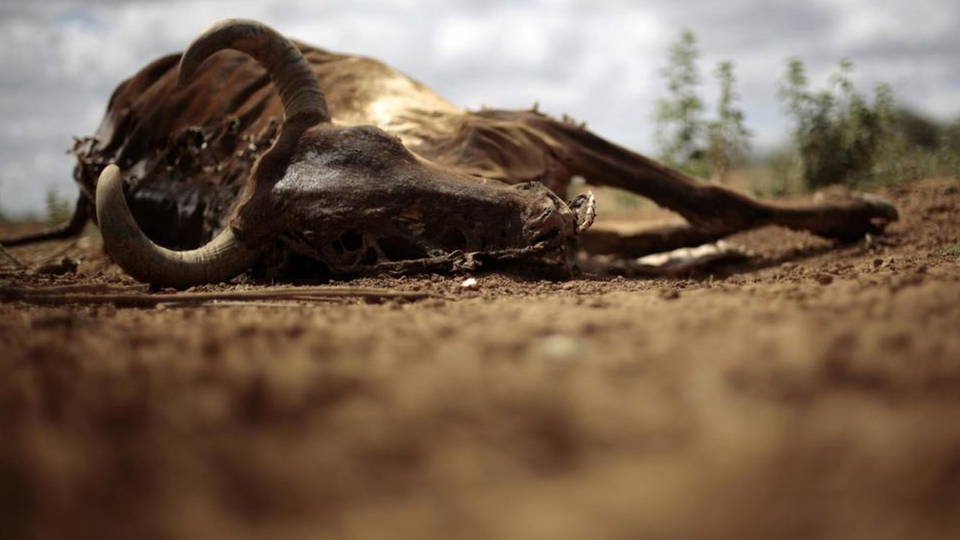
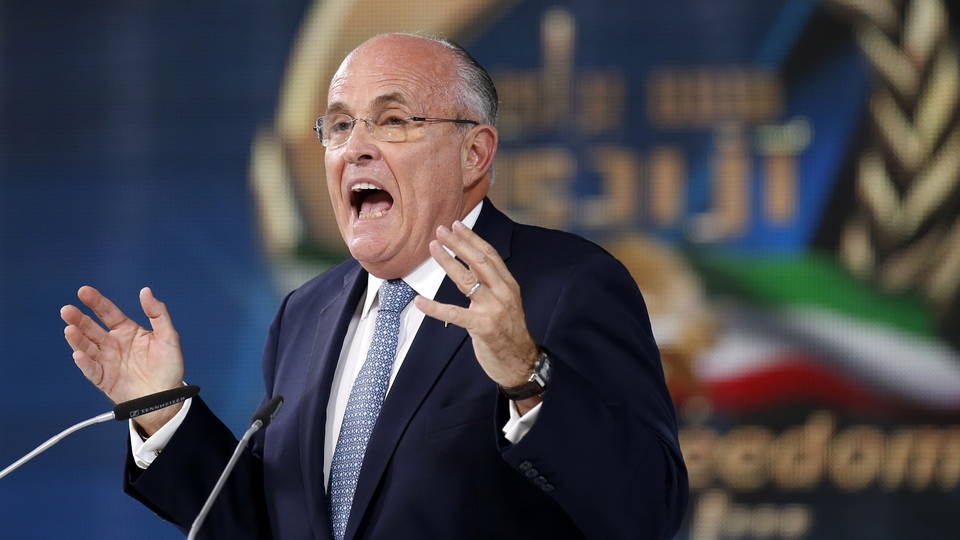
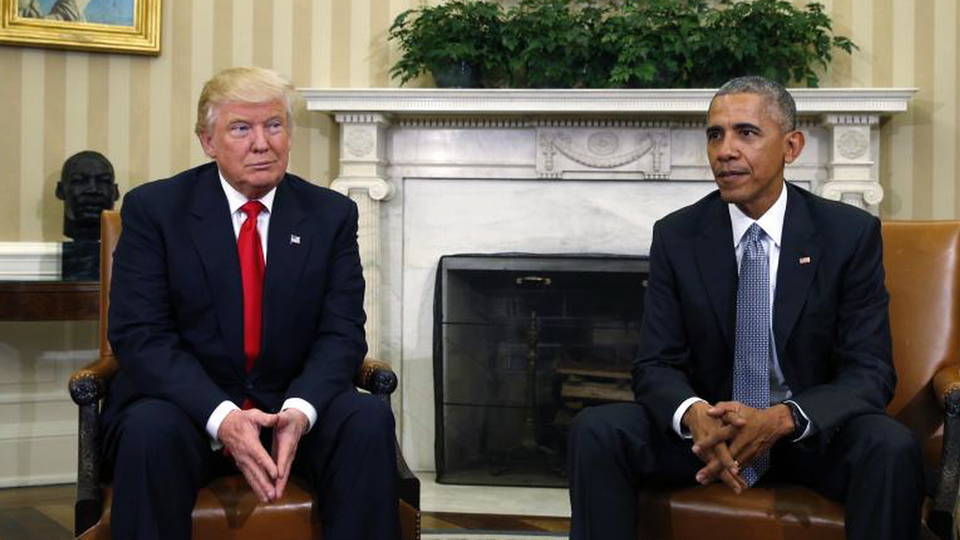
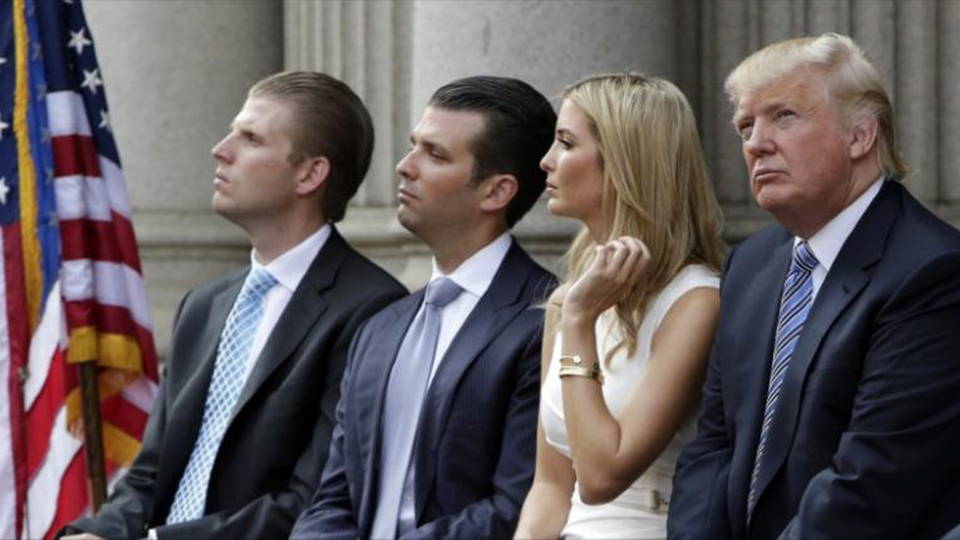
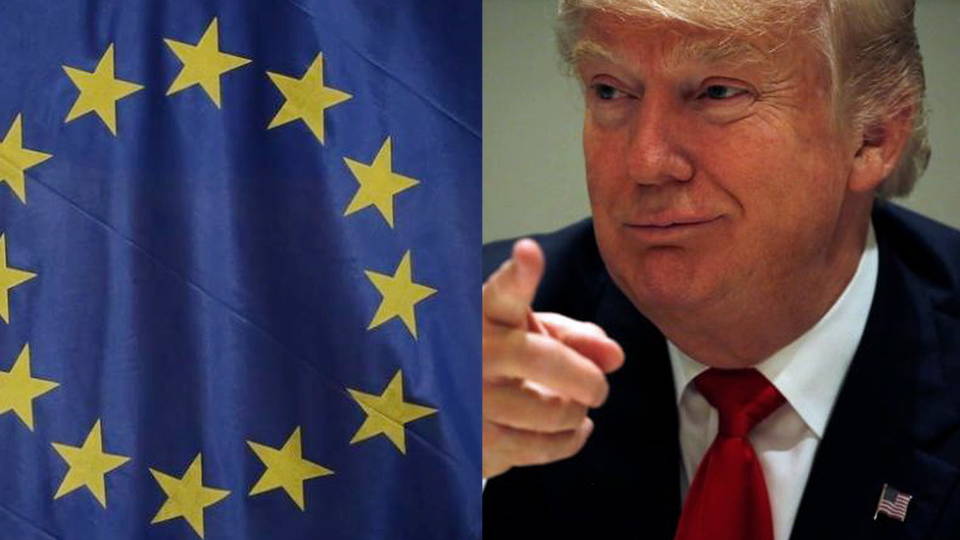
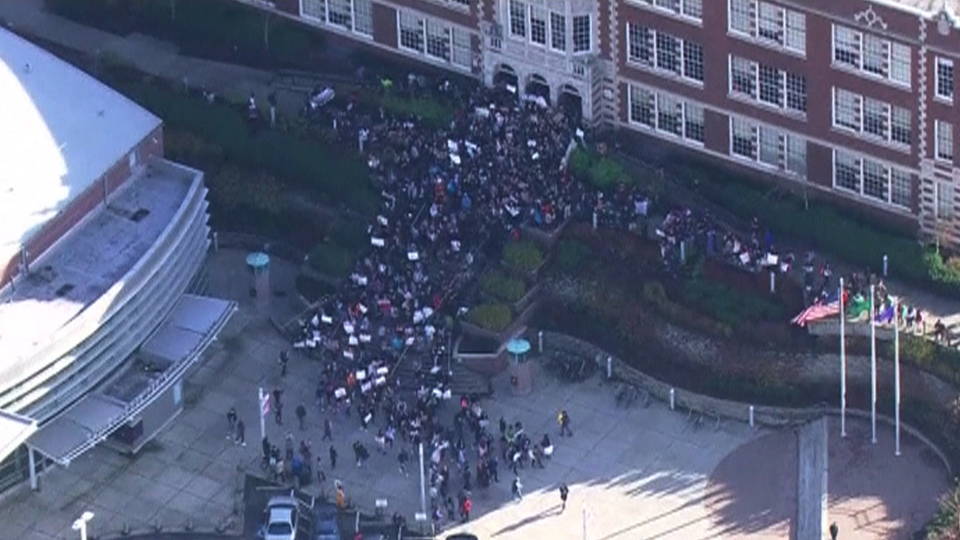
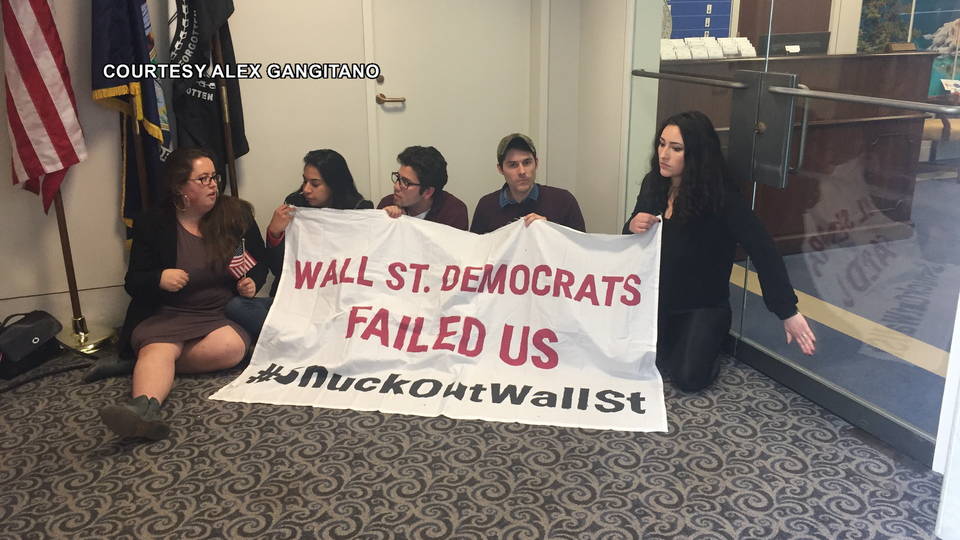
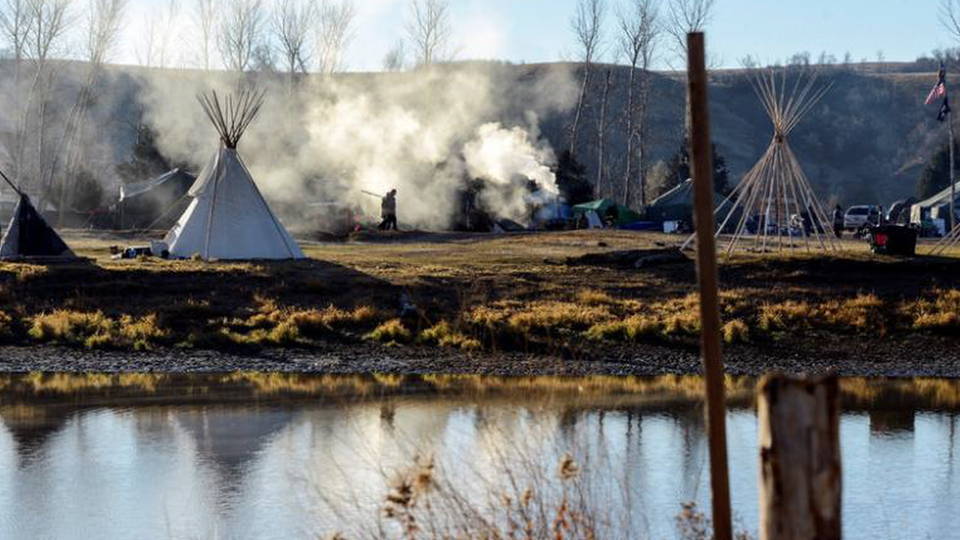
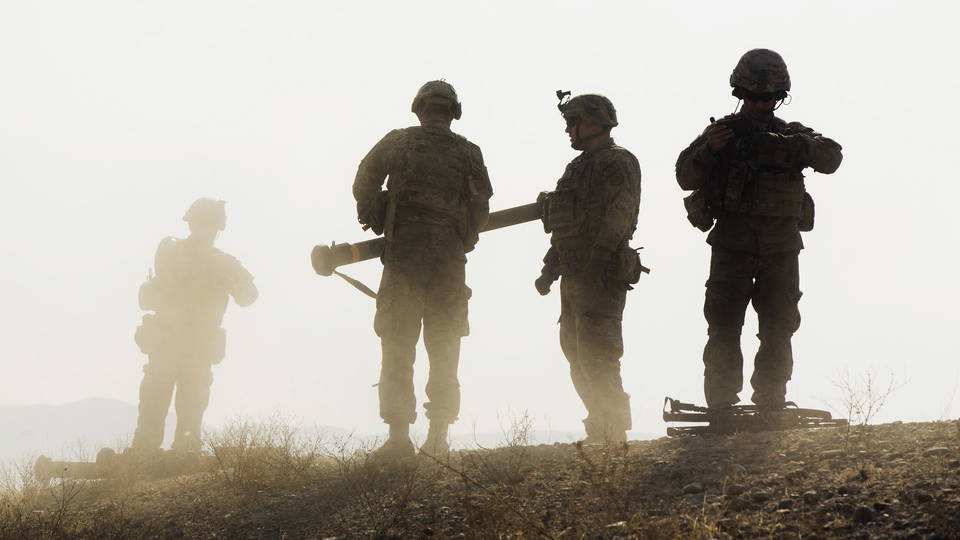
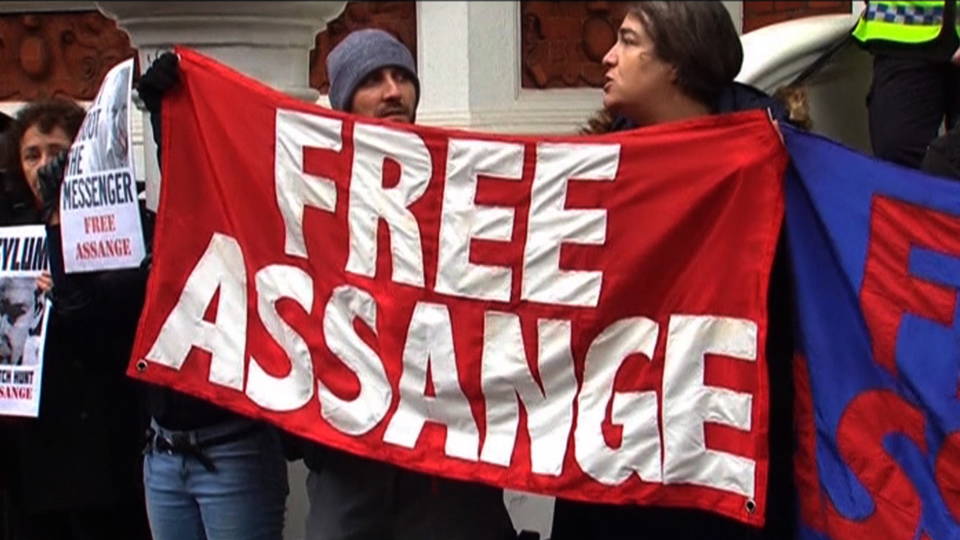
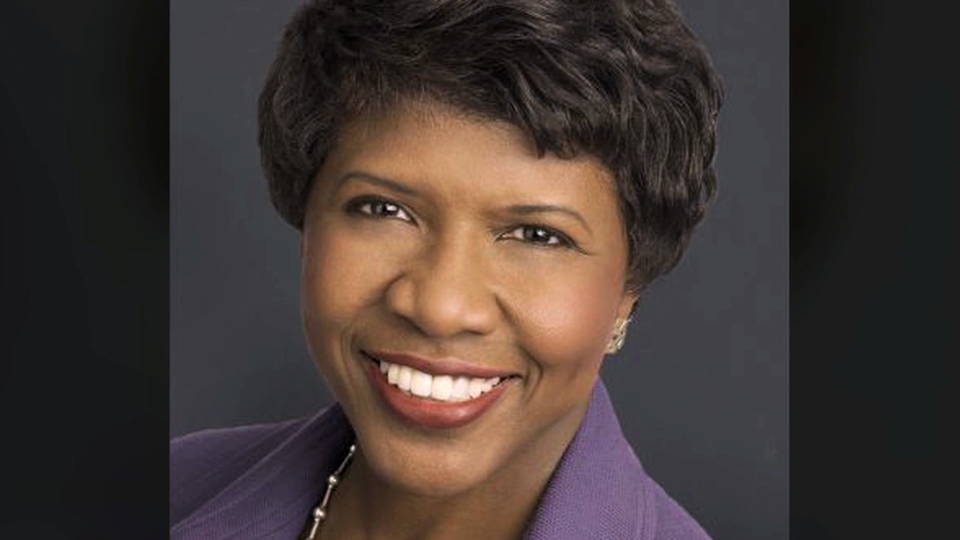
-------
Donate today →
Follow:



CELEBRATE 20 YEARS OF DEMOCRACY NOW!
Democracy Now!'s 20th Anniversary Celebration
NEW BOOK

The World Meteorological Organization has announced here at the 22nd annual U.N. climate summit, known as COP 22, that 2016 is very likely to be the hottest year on record—and that the average global temperature this year is 1.2 degrees Celsius above pre-industrial levels. That’s only 0.3 degrees Celsius away from the limit of a 1.5-degree rise set by the Paris Agreement in order to avoid catastrophic impacts of climate change. This comes as residents of La Paz, Bolivia, are facing extreme water shortages and rationing as the three dams that supply the city’s water have run almost dry. Scientists say the drought is caused by the rapid retreat of glaciers due to global warming. Over the last three decades, Bolivian glaciers have shrunk more than 40 percent, affecting 2 million people in the region who rely on glacier melt as their water supply.
WSJ: Trump Considering Rudy Giuliani for Secretary of State

In the United States, The Wall Street Journal is reporting former New York Mayor Rudolph Giuliani is currently President-elect Donald Trump’s leading pick for secretary of state. Giuliani was the architect of New York City’s stop-and-frisk program, which disproportionately targeted people of color and was later ruled unconstitutional. Giuliani has called for measures to force Muslims on the government’s terrorism watch list to wear electronic tracking bracelets, and boasted about how he sent undercover NYPD officers to infiltrate mosques. Speaking at the Republican National Convention last July, Giuliani proclaimed, "What I did for New York, Donald Trump will do for America." Trump has already named Stephen Bannon, former head of the far right-wing Breitbart Media, as his top strategist, and Reince Priebus, head of the Republican National Committee, as his chief of staff. Trump is reportedly also considering former U.S. Ambassador to the United Nations John Bolton as a possible secretary of state, if Giuliani is not chosen. Bolton, who was nominated by President George W. Bush, famously talked about lopping off the top 10 stories of the United Nations headquarters.
Obama Urges Americans to Give Trump "Room" to Adjust to Presidency

This comes as President Obama said he was encouraged by Donald Trump’s election night speech and urged Americans to give Trump the room and space to make his Cabinet appointments and to get adjusted to the White House.
President Barack Obama: "What I also discussed was the fact that I had been encouraged by his statements on election night about the need for unity and his interest in being the president for all people, and that how he staffs, the first steps he takes, the first impressions he makes, the reset that can happen after an election, all those things are important and should be thought about. And I think it’s important to give him the room and the space to do that."
CBS: Trump Seeking Top-Secret Security Clearances for His Children

CBS News also reported Monday that Trump had asked for several of his adult children—Donald, Eric and Ivanka—and his son-in-law Jared Kushner to receive top security clearances, a claim which an official from Trump’s transition team denied during interviews with a pool of reporters later on Monday. The children were also named to Trump’s transition team last week. If Trump’s children were to receive security clearances, it could represent a conflict of interest, as his children are also running Trump’s vast business networks. Jared Kushner’s newspaper, the New York Observer, has also stopped printing paper copies of the iconic publication last week.
EU Emergency Meeting over Trump Boycotted by Top Officials

In Brussels, the European Union held an emergency meeting Sunday night aimed at unifying the bloc’s approach to the election of Donald Trump—although this goal collapsed after a handful of top officials boycotted the event. Both France’s and Hungary’s foreign ministers boycotted the meeting. Hungary’s prime minister supports Trump. French right-wing politician Marine Le Pen, who many are predicting could be the next president of France, has also supported Donald Trump, calling his election part of a "global revolution ... in the building of a new world." Britain, which is slated to leave the EU, boycotted the talks entirely. The Brexit plans, however, appear to be in disarray. A leaked memo said Prime Minister Theresa May’s Cabinet is divided on how to exit the European Union and that there was so much work required to leave the EU, the government might have to hire as many as 30,000 additional people. Meanwhile, Donald Trump and Russian President Vladimir Putin spoke on the telephone Monday, agreeing to work to improve relations between the two countries.
Thousands of Students Walk Out to Protest Donald Trump

Protests against President-elect Donald Trump continue across the United States. On Monday, thousands of high school students walked out of classes in Seattle; Los Angeles; San Francisco; Silver Spring, Maryland; and Portland, Oregon. Students chanted "Not My President" and "No Trump, No KKK, No Fascist U.S.A." as they poured out of high schools from coast to coast.
Protesters Sit In at Schumer's Office to Demand He Step Aside as Senate Minority Leader

Students and young people also staged a sit-in Monday at New York Senator Chuck Schumer’s office on Capitol Hill, demanding Schumer step aside from becoming Senate minority leader and instead support Vermont Senator Bernie Sanders for the position.
Protester: "We’re here today at Chuck Schumer’s office, as a senator who has received so of the most amount of campaign contributions from Wall Street, to say that the Democratic establishment cannot lead the opposition right now and that Chuck Schumer must step aside and allow for new leadership. So we’re here to demand that Chuck Schumer step aside from minority leadership, take his name out of the running and support Bernie Sanders."
Army Delays Issuing Permit for Dakota Access Pipeline Ahead of Global Day of Action

Protests against the $3.8 billion Dakota Access pipeline are planned in more than 100 cities worldwide today. Many are taking place at U.S. Army Corps of Engineers offices to demand the Army refuse to grant a final permit for the pipeline company to drill underneath the Missouri River. In a joint statement by the Army and the Interior Department released Monday, the Army announced it is holding off issuing the final permit, saying, "The Army has determined that additional discussion and analysis are warranted in light of the history of the Great Sioux Nation’s dispossessions of lands, the importance of Lake Oahe to the Tribe, our government-to-government relationship, and the statute governing easements through government property." This is Tara Houska, national campaigns director for Honor the Earth.
Tara Houska: "The Indigenous Environmental Network, Honor the Earth and many of our allies are calling for a nationwide day of solidarity on November 15th, a week after the election, at Army Corps offices around the country. For hundreds of years, the United States Army and Native people have been at odds. It’s time that we step forward and begin a new chapter together, one in which indigenous rights are respected, our lands are respected, and our waters are respected by the U.S. government."
Protests against the Dakota Access pipeline were also planned here at the climate summit in Marrakech, but today is the day of the high-level meetings with the king of Morocco and others, so all protests at the COP 22 have been banned.
ICC: U.S. May Have Committed War Crimes in Afghanistan

A new report by the International Criminal Court’s top prosecutor says the United States may have committed war crimes in Afghanistan. The report accuses the U.S. military of torturing at least 61 prisoners in Afghanistan during the ongoing 14-year war, the longest war in U.S. history. The report also accuses the CIA of subjecting at least 27 prisoners to torture, including rape, at CIA prison sites in Afghanistan, Poland, Romania and Lithuania. The International Criminal Court says it is deciding whether to open an official investigation. This could lead to the prosecution of U.S. officials for war crimes, even though the United States is not a member of the court, because the crimes were allegedly committed within Afghanistan, which is a member of the ICC.
Julian Assange Questioned by Swedish Prosecutor in London Embassy

WikiLeaks co-founder Julian Assange was questioned Monday by a Swedish prosecutor at the Ecuadorean Embassy in London over allegations of sexual misconduct, although charges have never been filed. The questioning could last as many as three days. Assange’s Swedish lawyer, Per Samuelson, says he has so far been prohibited from attending the interviews. Assange has been confined to the Ecuadorean Embassy, fearing that if he were to attempt to leave, he would be arrested by British police and ultimately extradited to the United States, where it is believed there is a sealed indictment against him over WikiLeaks’s release of documents.
Award-Winning Journalist & Anchor Gwen Ifill Has Died at 61

And the award-winning journalist and news anchor Gwen Ifill has died of cancer at the age of 61. In 1999, Ifill became the first African-American woman to host a major national political talk show when she took the helm of "Washington Week in Review." In 2013, she became co-host of the "PBS NewsHour," taking an anchor chair next to Judy Woodruff. Ifill continued covering the presidential election throughout the year, even as she underwent cancer treatment. Last spring, she moderated a Democratic primary debate between Hillary Clinton and Sen. Bernie Sanders. At a press conference Monday, President Barack Obama reacted to Ifill’s passing.
President Barack Obama: "Michelle and I want to offer our deepest condolences to Gwen Ifill’s family and all of you, her colleagues, on her passing. Gwen was a friend of ours. She was an extraordinary journalist. She always kept faith with the fundamental responsibilities of her profession, asking tough questions, holding people in power accountable and defending a strong and free press that makes our democracy work. I always appreciated Gwen’s reporting, even when I was at the receiving end of one of her tough and thorough interviews. Whether she reported from a convention floor or from the field, whether she sat at the debate moderator’s table or at the anchor’s desk, she not only informed today’s citizens, but she also inspired tomorrow’s journalists."
Donate today →
Follow:




CELEBRATE 20 YEARS OF DEMOCRACY NOW!

Democracy Now!'s 20th Anniversary Celebration
NEW BOOK

Senior TV Producer
Internships
-------
207 West 25th Street, 11th Floor
New York, New York 10001, United States
-------
Democracy Now! Daily Digest: A Daily Independent Global News Hour with Amy Goodman & Juan González for Monday, November 14, 2016
democracynow.org
Stories:

A White Nationalist & Anti-Semite in the Oval Office: Trump Taps Breitbart's Bannon as Top Aide
AMY GOODMAN: Another issue, of course, is his climate denial, of deep concern to people here at the U.N. climate summit. Richard Cohen is president of the Southern Poverty Law Center. We’ll link to his latest report at democracynow.org. When we come back, though, voices from the streets, protests in the United States. Stay with us. ... Read More →

Protesting Trump's America: Nationwide Demos Continue Against Racism, Xenophobia & Islamophobia
AMY GOODMAN: And that was a report from New York. When we come back, we’ll bring you the protests of thousands here in the streets of Marrakech, Morocco, during the beginning of the second week of the U.N. climate summit. Stay with us. ... Read More →

As U.S. Elects Global Warming Denier, Thousands March in Marrakech Calling for Climate Justice
DIPTI BHATNAGAR: To be honest with you, we are really, as a global climate justice movement, at this moment having a very deep think of how we are going to engage with the U.S. The U.S. has always been a blocker on climate action for years and years. This is throughout the Obama years, as well, unfortunately. At this moment, we are all pretty terrified of what is going to happen in terms of international climate action from the U.S., but also, I mean, we’re standing with communities in the U.S. who are going to be threatened and are feeling threatened and fearful about their role in the world. And the very first message that we want to send them is that the world stands with you—people of color, African-American communities, Muslim communities, indigenous communities. First and foremost, we need to stand together, and we need to challenge the U.S. And if necessary, we need to isolate the U.S.. Maybe it’s come time to do that. ... Read More →

Climate Activist at COP 22: "The Global Community Cannot Allow Trump to Poison These Negotiations"
AMY GOODMAN: Asad Rehman, this is Part 1 of our conversation. Come back tomorrow for Part 2. That’s Asad Rehman, spokesperson for Friends of the Earth International. Quick correction to our headline on the mistrial of former University of Cincinnati police officer Ray Tensing: He shot Sam DuBose in the head, killing him, not in the back. ... Read More →
Headlines:
-------
Democracy Now! Daily Digest: A Daily Independent Global News Hour with Amy Goodman & Juan González for Monday, November 14, 2016
democracynow.org
Stories:

A White Nationalist & Anti-Semite in the Oval Office: Trump Taps Breitbart's Bannon as Top Aide
As the Anti-Defamation League and the Southern Poverty Law Center are slamming President-elect Donald Trump for naming Stephen Bannon to become his chief strategist, we speak with SPLC President Richard Cohen about Bannon’s role as former head of the right-wing news outlet Breitbart Media and as Trump’s campaign manager. "Two weeks after the Charleston massacre, [Breitbart News] ran an article talking about how people should proudly fly the Confederate flag," Cohen says. He argues that the alt-right that Breitbart is associated with "is nothing more than the rebranding of white supremacy, white nationalism, for the digital age," and calls on President-elect Trump to "speak out forcefully against all forms of bigotry, and then he has to follow talk with the walk."
TRANSCRIPT
This is a rush transcript. Copy may not be in its final form.
AMY GOODMAN: We’re broadcasting from Marrakech, Morocco, here at the U.N. climate summit, but we’re covering events closely that are taking place in the United States, and we’ll soon bring you voices of protest from the front lines in New York.
Meanwhile, the Anti-Defamation League and the Southern Poverty Law Center are slamming President-elect Donald Trump for naming Stephen Bannon to become his chief strategist. Bannon is the former head of the right-wing outlet, news outlet, Breitbart Media. He took over as Trump’s campaign manager in August. ADL CEOJonathan Greenblatt said, quote, "It is a sad day when a man who presided over the premier website of the 'alt-right'—a loose-knit group of white nationalists and unabashed anti-Semites and racists—is slated to be a senior staff member in the ’people’s house,’" unquote.
The Southern Poverty Law Center accused Bannon of becoming, quote, "the main driver behind Breitbart becoming a white ethno-nationalist propaganda mill," unquote. Even former Breitbart employees have spoken out about what the site became under Bannon’s watch. The site’s former editor-in-chief, Ben Shapiro, recently said that staffers are now openly pushing white ethno-nationalism. Donald Trump announced Bannon would become chief strategist on Saturday. Trump has also tapped RNC Chair Reince Preibus to serve as his chief of staff.
Steve Bannon has also faced questions about domestic abuse. He was charged in 1996 with misdemeanor domestic violence, battery and dissuading a witness. A Santa Monica, California, police report said Bannon grabbed then-wife Mary Louise Piccard "by the throat and arm" and threatened to leave him with—to leave with the couple’s twin daughters. Bannon pleaded not guilty to the charges, which were dropped later that year when Piccard did not appear in court. Piccard claimed in divorce proceedings that Bannon pressured her not to testify. Piccard also said in a sworn 2007 court filing that Bannon made anti-Semitic comments when the two argued over whether to send their daughters to a private school. According to one document, Piccard said, quote, "He said that he doesn’t like the way they raise their kids to be 'whiny brats' and that he didn’t want the girls going to school with Jews," unquote.
Joining us in New York is Richard Cohen, president of the Southern Poverty Law Center.
So, Richard Cohen, you got the news, with everyone else, that Steve Bannon would be the chief strategist for Donald Trump. Your thoughts?
RICHARD COHEN: Well, it was incredibly disheartening, Amy. You know, the night that Trump was elected, he said that he was going to be the president for all Americans, that he was going to bind the wounds of division—wounds, of course, that he had caused. And now we see him doing the opposite, you know, appointing someone who was very proud to give a platform to the alt-right. And, you know, the alt-right is nothing more than the rebranding of white supremacy, white nationalism, for the digital age. So, Trump says one thing the day he’s elected, does something else at this point. It’s really discouraging, really disheartening. And, you know, it doesn’t portend well for his administration, I’m afraid.
AMY GOODMAN: Richard, describe more fully what is the alt-right. What is the Breitbart News website and the significance of Bannon now being the number two man for President—soon-to-be President Trump?
RICHARD COHEN: You know, when—Breitbart traditionally was a very conservative website. But under Bannon, it’s become a cesspool for white supremacy, according to one of his former colleagues. You know, the alt-right is white nationalism. It rejects multiculturalism. It’s opposed to immigration. You know, the godfather of the alt-right is a fellow named Richard Spencer. His motto is "All men are created unequal." He believes that black people are intellectually inferior. He calls for, you know, the peaceful ethnic cleansing of our country. He was ecstatic when Trump was elected, and, I’m sure, equally ecstatic now that Bannon is in the White House.
AMY GOODMAN: Talk about Bannon’s background. Talk about his operating of Breitbart News.
RICHARD COHEN: Yeah, you know, look, I don’t want to talk about Bannon’s personal background. I’ll just talk about what he’s done at Breitbart News. I mean, anyone can go and look at the archives there and see unbelievable stuff. Two weeks after the Charleston massacre, for example, you know, they ran an article talking about how people should proudly fly the federal—the Confederate flag. They’ve talked about Islam as a religion of a rape culture. He mocked women who are, you know, the victims of sexual harassment in the workplace. It’s obsessed with kind of, you know, the so-called scourge of black-on-white crime. It’s racist. It’s misogynist. It’s anti-Semitic. It’s everything that this country should not be.
AMY GOODMAN: Former Breitbart employees have spoken out. This is the site’s former editor-in-chief, Ben Shapiro, who wrote, quote, "Breitbart has become the alt-right go-to website, with [Milo] Yiannopoulos pushing white ethno-nationalism as a legitimate response to political correctness, and the comment section turning into a cesspool for white supremacist mememakers." This is Shapiro speaking to CNNearlier this year.
BEN SHAPIRO: Steve likes to think of himself as the big bear tearing everybody else down because he’s a big power player. And, look, it’s got him where he is now. I think that, again, Steve Bannon—I tweeted this morning, imagine that one of the worst people you know is heading up a presidential campaign, and that’s pretty much, you know, where I’m at this morning.
AMY GOODMAN: You’ve been listening to—Richard Cohen, your response?
RICHARD COHEN: Trump knew what he was doing. You know, he ran a racist campaign from the first day that he came down the escalator at Trump Tower. You know, he vilified Mexicans. He vilified Latinos. He vilified women, black communities, Muslims. And of course, you know, he brought Steve Bannon in because Steve Bannon reflected his views. And unfortunately now, he hasn’t pivoted, despite his words after the election, and he’s continuing to embrace Bannon. I wish he would change.
AMY GOODMAN: Richard Cohen, as president of the Southern Poverty Law Center, you know, I asked you first about Bannon. What about Donald Trump and his election, and what this means, and the report that you’ve put out, Richard, through the Southern Poverty Law Center, of the number of attacks this week on vulnerable people, and, overall, your response?
RICHARD COHEN: Well, look, the—you mentioned 200 attacks. The number is well over 300 now. And, you know, they’re happening everywhere. A lot are happening in schools. We’re seeing them in places like Wal-Mart, Starbucks. We’re seeing them, you know, just at traffic stops, where people are being—you know, people of color are being harassed by people who are passing them and screaming "Trump!" You know, it’s an ugly, incendiary thing.
Last night, Donald Trump was on 60 Minutes, and he said, "Stop it." And, of course, he also said it only happened one or two times. He terribly downplayed it. You know, so Trump needs to say more than "stop it." He needs to speak out forcefully against all forms of bigotry. And then he has to follow talk with the walk. He has to stop putting people like Bannon in the administration. He has to throw them out and assure the American public that no one with hate crime ties, no one with hate in their hearts, is going to have any role whatsoever in our democracy.
AMY GOODMAN: So these reports around the country of these assaults, of people marching through schools and saying "Build that wall" or "Make America white again," the reports we have from Philadelphia to Boston, something unprecedented, where the schools are sending counselors into the classrooms because these kids are so frightened—
RICHARD COHEN: Yeah.
AMY GOODMAN: —after the election of Donald Trump.
RICHARD COHEN: Look, they were frightened before the election. They were frightened by the rhetoric that Donald Trump was spewing during the election. We did a big survey during the election asking teachers what was happening in their schools. We never used Trump’s name in the survey, but we didn’t have to. Thousand teachers wrote back and talked about the horrible things that were happening in their school, you know, an incredible increase in bullying, an incredible increase in ugly—in ugly talk, heartbreaking stories of young children in elementary schools really being fearful, coming up to a teacher every day saying, "Has he built the wall yet? Are my parents going to be deported?" So, you know, this is just a continuation of what we saw in the campaign, but it’s really been quite intensified since the day of the election.
AMY GOODMAN: Richard Cohen, is there anything you want to add before we go to the voices of the streets of New York, tens of thousands of people continuing to protest? This was before the appointment of Steve Bannon to be the number two man for a President Trump.
RICHARD COHEN: You know, I would just urge people to stand strong, be careful, don’t give up hope. One of the sad things of the election was, you know, 43 million Americans who were eligible to vote did not. That’s 100 million people. I don’t know how those 100 million people would have voted, but I think our democracy will be healthier when everyone speaks. And so I hope this energy that we’re seeing in these demonstrations translates into increased political participation in our country.
AMY GOODMAN: And, Richard Cohen, finally, how Donald Trump has responded to the attacks on people of color, on immigrants around the country?
RICHARD COHEN: He hasn’t done enough. He has minimized the number of attacks. He said there’s one or two; there have been hundreds. His alter ego at Breitbart has said that they’re all just a hoax and a fraud. He needs to do much, much more, if America is, you know, going to be a country that embraces all of its citizens.
AMY GOODMAN: Well, Richard Cohen, I want to thank you for joining us from New York. Democracy Now! is in Marrakech, Morocco, for the U.N. climate summit. But I can tell you every other word out of people’s mouths here from around the planet is "Donald Trump."
RICHARD COHEN: Thank you, Amy.

Protesting Trump's America: Nationwide Demos Continue Against Racism, Xenophobia & Islamophobia
Over the weekend, protests around the world voiced opposition to U.S. President-elect Donald Trump’s campaign promises to restrict immigration and register Muslims, and allegations that he sexually abused women. Demonstrations in the United States took place in Seattle, Portland, Los Angeles, San Francisco, Oakland, Chicago, Oklahoma City, Salt Lake City, Springfield, Massachusetts, Dayton and Cincinnati, Ohio, several cities in Florida, New York and Philadelphia, where a Mexican immigrant who is the father of three U.S.-born children entered sanctuary in a church on Sunday and called on President Obama to stop his deportation and others’. We feature voices from Sunday’s march of an estimated 10,000 people in New York, which marked the fifth straight day of protests against Trump in his home town.
TRANSCRIPT
This is a rush transcript. Copy may not be in its final form.
AMY GOODMAN: This is Democracy Now!, democracynow.org. I’m Amy Goodman, here in Marrakech, Morocco, the second week of the U.N. climate talks. There have been major protests. But we’re going first to what has been taking place in the United States. Over the weekend, protests around the world voiced opposition to U.S. President-elect Donald Trump. In Berlin, Germany, nearly a thousand people gathered at the Brandenburg Gate, a short distance from the U.S. Embassy.
GERMAN PROTESTER: [translated] From our perspective, this election is very dangerous, because a Trump presidency encourages other nationalistic parties to fight harder and people to give their votes to them.
AMY GOODMAN: In the United States, demonstrators took to the streets to oppose Trump’s campaign promises to restrict immigration and register Muslims, and allegations that he sexually abused women. Protests took place in Seattle; Portland; Los Angeles; San Francisco; Oakland; Chicago; Oklahoma City; Salt Lake City; Springfield, Massachusetts; Dayton and Cincinnati, Ohio; a number of cities in Florida, in New York and in Philadelphia, where a Mexican immigrant who’s the father of three U.S.-born children entered sanctuary at a church Sunday and called on President Obama to stop his deportation and others’.
This comes as mayors from Seattle to New York say they’ll refuse to cooperate with Donald Trump’s promise to deport 11 million undocumented immigrants, even though he says he’ll withdraw federal funding from such cities. New York Mayor Bill de Blasio vowed not to hand over the personal data of those who applied for the city municipal ID, and said he would possibly even destroy the records if federal authorities attempt to use them to target people for deportation. Thousands of working-class immigrants marched in Manhattan on Sunday with their supporters.
ANNETTE ALEJANDRO: I’m here to support everybody, to speak for my community, that’s afraid, and they don’t know where the country is going, and so together we could come up with a plan on what we can do next. A lot of things that are being talked about, and people are trying to reverse the laws that are in place, I’m very concerned about that, because I feel that would put our country back, and I feel that we should progress and be inclusive of everybody.
AMY GOODMAN: Sunday’s protests in New York marked the fifth straight day of protests against Trump in his home town. On Saturday, an estimated 10,000 people marched to Trump Tower on Fifth Avenue as he met with his advisers. Democracy Now! was there.
PROTESTER 1: Well, I think protests like this can’t achieve anything very practical right now, because he doesn’t have any policy initiatives on the table. But what I think a protest like this can do is send a message to others in the country who are upset with this new president, and also internationally, that Americans don’t support his racist, sexist agenda.
AMY GOODMAN: We’re going to go back right now to those protests in the street in New York.
RENÉE FELTZ: This is Renée Feltz reporting for Democracy Now! just outside the iconic Union Square Park, that’s a place, for centuries, people have gathered for protest. There’s a protest underway right now against President-elect Trump. Already there’s a block full of people next to me. The scene includes many, many police and barricades that are preventing some of the public from joining the protest. But we’ve come in, and now we’re going to talk to people about what Trump’s America means to them.
PRINCE: I’m Prince. I’m from Philadelphia. I felt that, before Trump, America was starting to show signs of a more progressive, a more diversified America, and it made me feel like I had a place in this country. But now, with the Trump administration, it makes me feel a little bit more on edge about where I stand, my status in this country, despite the degree I may hold, despite the position I may hold. And I feel that it’s important to show my opposition against that.
PROTESTERS: My body! My choice! Her body! Her choice! My body! My choice! Her body! Her choice!
JAIDAN: Hi, I’m Jaidan, from West Orange, New Jersey. I’m a sophomore in high school. As a person of color, it would negatively affect me and most of the people in my life. A friend I know went to high school on Wednesday, and people were saying racial—or religious slurs toward Islamic people who go to her school, and things like that. It’s definitely prevalent.
MARI INOUE: My name is Mari Inoue. I’m with Max, my son. We started to hear that there are violence or abuses against the people of color, children of color, in rural neighborhoods in the United States, and that’s a really dangerous sign. Here in New York, diversity is embraced, but you don’t know what is going to happen, even in a progressive state like New York. And we’re really concerned that a Trump administration is going to incite violence, hate, racism and other dangerous policies, which could affect or threaten safe environment for parents to raise kids.
RENÉE FELTZ: And you said you brought your son here. Hi. What’s your name?
MAX INOUE: Max.
RENÉE FELTZ: And what grade are you in?
MAX INOUE: Sixth.
RENÉE FELTZ: And do people talk about President Trump and the election at school?
MAX INOUE: Yeah, sometimes.
RENÉE FELTZ: And have you heard anyone respond to the election? What are they saying?
MAX INOUE: They said that Trump is going to start World War III.
RENÉE FELTZ: And, Max, what does your sign say?
MAX INOUE: "Bigotry destroys democracy."
RENÉE FELTZ: Did you make that?
MAX INOUE: Yeah.
RENÉE FELTZ: I see it also says "Protect kids from hate." And what are you trying to say with your sign?
MAX INOUE: I’m trying to say that Trump uses bigotry against—against minority groups.
RENÉE FELTZ: How does it make you feel to see all these other people out here with similar signs and saying that they are also against bigotry?
MAX INOUE: It feels like we have a louder voice in this.
LAUREN: My name’s Lauren, and I live in Flatbush, Brooklyn. And today my sign says, on one side, "I love my Muslim neighbors," and, on the other side, "I love my Mexican neighbors," because I live in a heavily Muslim area of Mexican and Latin American community. And I just want them to know I love them. I’m an ally. I am watching anything that happens to them. If they need any support, they can come to me.
RENÉE FELTZ: Have you had a chance to say that anyone directly? And what are those conversations like?
LAUREN: I’ve gotten a lot of hugs. It’s been awesome. Like, even just walking to the train today, one of my neighbors hugged me, a neighbor I don’t know, but they were Mexican. They asked me politely if I could be hugged, and we hugged it out. So, yeah, it’s been really positive, in a really dark week.
RENÉE FELTZ: Now we’re here on Fifth Avenue. We’ve walked out of Union Square Park at 14th Street, north to 57th Street, where President-elect Trump lives in Trump Towers. Behind me, a wall of police. Behind the wall of police, a wall of barricades. Behind the barricades, a wall of tourists taking pictures. Many of them said they were glad to see people taking to the streets.
JOANN: My name’s JoAnn. I’m from Los Angeles, and I’ve stumbled into this crowd.
PROTESTERS: New York hates you and Mike Pence! New York hates you and Mike Pence!
RENÉE FELTZ: What do you think as you see these signs and see these people and hear their chants?
JOANN: I have mixed feelings about it. He is our president. I didn’t want him, but he is our president. I think it’s great that these people are here. I think it’s great that he knows this. And hopefully he’ll take some—he’ll pay some attention.
RENÉE FELTZ: Do you have any thoughts on what a Donald Trump presidency and administration is going to mean for you and for people in your life?
JOANN: I think I’m lucky it probably won’t mean very much of anything, because I’m one of the lucky few.
RENÉE FELTZ: Can you elaborate further?
JOANN: I’m a professional. I’m near—I am virtually retired. I don’t live on Social Security. So—but that doesn’t mean that I’m for what he’s for. You need to understand that. But I think it’s very frightening. And I think it’s awful for our country.
PROTESTERS: We reject the president-elect!
MARCIA SCARNATO: My name is Marcia Scarnato. And what brought me out here today is I have to protest. I have to protest. I came out in 1957.
RENÉE FELTZ: You came out as a lesbian?
MARCIA SCARNATO: I came out as a lesbian in 1957, when it was so bad that gay bashing was a national sport. I was thrown out of high school at 15 years old. I was told I either had to get out of school or go to a psychiatrist. And I said, "Well, I’m not sick, so I don’t need a doctor," and I left school. So they took my education away. This is what it was like in the '50s, where I'm not going back.
RENÉE FELTZ: We’ve been asking people what steps they’re taking to prepare for a future under President Trump. What steps are you taking here as you’re here with your girlfriend?
MARCIA SCARNATO: We’ve been together almost 30 years. And we didn’t get married. We haven’t gotten married. It was like, "Well, I’m really glad we can," but, you know, we just didn’t bother. Now, we are going down, getting our marriage license next week, and we are getting married—OK?—while we can.
JOSE LASALLE: My name is Jose LaSalle. I’m the founder and creator of Copwatch Patrol Unit. And our group basically goes into the community of color, where there is a lot of police activity, and we document police and civilians’ encounter. And we make sure that we let the civilians know that we are documenting for them, so if they have an issue or a problem, we have it on recording so, you know, it could help them out.
RENÉE FELTZ: You’ve been doing a lot of work already. What do you think now needs to happen under President-elect Trump’s administration moving forward?
JOSE LASALLE: Well, what I know is that now dealing—Trump already talked about reintroducing stop and frisk back into the community of color. So, if that does happen, especially if Giuliani is elected—is put in the position of attorney general, we know that that is going to happen, so we’re going to have to really be out there in big numbers to show that there’s no way you could use stop and frisk in a way that is used without violating people’s constitutional rights.
RENÉE FELTZ: A lot of people watching this may not be that familiar with New York’s former mayor, Rudolph Giuliani, even though he’s sometimes called America’s mayor because of the role he played during 9/11. You are familiar with him. What do people need to know, as he may be a member of President Trump’s Cabinet or perhaps even appointed attorney general?
JOSE LASALLE: Well, Mayor Giuliani was very aggressive when it came to quality-of-life issues. And he really swept up everything dealing with people that are using drugs. Instead of giving them help, what he was doing is just locking them up. So that’s why, during his time, the prison population rose up within hundreds of thousands.
RENÉE FELTZ: Have you read any reports, beyond police behavior, of civilians harassing other civilians?
JOSE LASALLE: Last night, when I was around—we was patrolling the area of Times Square. We’ve seen and witnessed a group of young black teens being harassed by another group of white teens calling them the N-word and telling them that they need to go back to Africa, and if they want to go back to Africa, not to worry, that Trump sends them there free. So, it was really crazy and—
RENÉE FELTZ: Did you intervene? Or how—did you play any role in that?
JOSE LASALLE: Well, we did. We did intervene. We grabbed the group of the white kids and told them, "Listen"—you know, we tried to let them know this ain’t—you know, this ain’t worth getting in trouble, because the simple fact is—you know what I’m saying?—this could escalate to something else. And we kind of used psychology to try to push them away from the other crowd. And we didn’t want—we didn’t want an incident to happen.
RENÉE FELTZ: Well, here we are on 56th Street. We haven’t got any closer than one more block. There’s basically a Trump fortress now in Midtown Manhattan. Even the people that live on these streets have had to go through checkpoints in order to go home. As people wind down, perhaps they’re going to teach-ins or other events where people are making banners and art and strategizing for the days ahead.
For Democracy Now!, I’m Renée Feltz, with Martyna Starosta.

As U.S. Elects Global Warming Denier, Thousands March in Marrakech Calling for Climate Justice
Democracy Now! broadcasts from Marrakech, Morocco, where the second week of the United Nations climate talks have just begun. The conference was jolted last week by Donald Trump’s victory in the U.S. presidential election, as he has vowed to "cancel the Paris climate agreement and stop all payments of U.S. tax dollars to U.N. global warming programs." We feature the voices of some of the thousands who marched Sunday for climate justice.
TRANSCRIPT
This is a rush transcript. Copy may not be in its final form.
AMY GOODMAN: Here in Marrakech, Morocco, the second week of the U.N. climate talks has just begun. The conference was jolted last week by the election of Donald Trump in the United States, who has vowed to cancel the Paris climate agreement and stop all payments of U.S. tax dollars to U.N. global warming programs. Here in Morocco, France’s Environment Minister Ségolène Royal called Donald Trump’s climate plan to be "absolutely catastrophic."
SÉGOLÈNE ROYAL: [translated] I think if such decisions are taken, it would be absolutely catastrophic, so I dare to believe that such things are campaign promises to please a certain electorate, which has not understood that global warming is a reality, or to answer the oil and fossil energy lobbies. I think that when he actually takes office, he will see that withdrawing from multilateral negotiations and climate issues would weaken the United States.
AMY GOODMAN: Well, on Sunday, thousands of people marched here in the streets in Marrakech, Morocco. Democracy Now! was covering that march.
NOURA OUCHEN: My name is Noura Ouchen. I’m from Morocco. We are here in Morocco. Like you can see, it’s November, and it’s very hot. And you can say that, in the rural world, it’s even worse. And it’s really impacting people. They don’t have water. They don’t have food. They cannot go to school, which is—they are basic, you know? It’s a basic right for each and every human.
GODWIN UYI OJO: My name is Godwin Uyi Ojo, Environmental Rights Action, Friends of the Earth Nigeria.
MIKE BURKE: And why are you here today?
GODWIN UYI OJO: We are here to make sure that the voices of the people are heard. People all over the world are becoming voiceless, voiceless not because they cannot speak, voiceless because their voices are not heard in decision making. So we are here to impress, to ensure that 1.5 degrees, that has been signed in the Paris Accord, must be adhered to. We are here to fight for historical responsibility. We are here to ensure that people’s power, energy democracy is now. We want a system where we move away from fossil fuel dependency and move towards renewable energy alternatives, which is already available. And the time to do it is now. To save mankind, the time to do it is now. And that is why we say, "Leave oil in the soil, leave the coal in the hole, and tar sand in the sand."
MIKE BURKE: And we’re here in North Africa, in Morocco, right now. Could you talk about the impact climate change is already having on the people in Africa?
GODWIN UYI OJO: One of the greatest impacts of climate change in Africa has to do with migration. Now, because of scarcity of land as a result of climate change, there is a clash for the whole of West Africa. From Nigeria up to Mali and up to this place, the scarcity of land is driving droves of people to become climate migrants. These issues are before this COP 22. And we hope that far-reaching agreements on how to implement the nationally determined commitments will be part of the decisions that will be made in COP 22.
BEN VAN IMPELEN: I’m Ben, from the Netherlands. And I biked here in a big bicycle action to promote, you know, like non-flying transport and to promote biking in cities. And yeah, we’re definitely here—I’m with the Green Party of the Netherlands. And I carried the flag here, you know, to support the environmental movement.
MIKE BURKE: When you say you biked here, you mean you biked from your hotel this morning?
BEN VAN IMPELEN: No, I mean I biked from Paris, France. So it was like 3,500 kilometers on bike. Took me two months, but it was a hell of a trip. If you really want to meet people in a country, well, I definitely recommend biking, you know? Then you see really something else, outside of the touristy areas, yeah.
MIKE BURKE: Why did you decide to bike all the way here to the climate talks?
BEN VAN IMPELEN: Well, the previous climate talks were in Paris, so it was kind of symbolic, you know, to bike from COP 21 to COP 22.
THEMBEKA MAJALI: I’m Thembeka Majali from South Africa. I’m part of the Rural Women’s Assembly delegation. And we are here to participate as civil society in calling our government and world leaders to take climate change seriously.
AMY GOODMAN: How does climate change affect South Africa?
THEMBEKA MAJALI: It displaced many people in terms of the land, in terms of the seeds that they do not have, in terms of the food that they want to grow. With climate change, anything is impossible.
REV. MARC ANDRUS: I’m Marc Andrus. I’m the Episcopal bishop of California. And I’m here with this group. I’m part of a delegation representing the presiding bishop of the Episcopal Church to COP 22, and also trying to bring some spiritual values. We believe that some of the humanizing spiritual values of life are how we actually accomplish climate justice.
AMY GOODMAN: Your thoughts on the election of Donald Trump?
REV. MARC ANDRUS: Donald Trump is distinguishable from the presidency and our country. He is not America. And he is also not able to cancel the Paris Agreement in terms of the United States. The Paris Agreement envisions that what they call subnational bodies will have a big role in accomplishing the goals of the Paris Agreement. And we believe that cities, regions, churches, smaller governments, smaller groups of people can actually accomplish at least 50 percent of the commitments that the United States has made to the Paris Agreement, before the deadline of 2020.
GRACE AHERON: My name is Grace Aheron. I’m from Central Virginia, Charlottesville, stolen Monacan Indian land. I’m here as a part of the Episcopal Church delegation in the United States. We are here to engage with spiritual values and the inner dimensions of climate change, as well as outward activism, because we believe we have to change hearts and minds and transform hearts and minds in order to transform the outward structures of power in this country.
AMY GOODMAN: So you’ve just come from the United States. Your thoughts on the election of Donald Trump?
GRACE AHERON: We’re terrified. We know we can’t rely on our government right now. He has already said he’s not—he wants to back out of the Paris Agreement. So I think this is an invitation for everyone back home—civil society, churches, people, organizations, communities—to rise up. We are the ones who have to protect this planet. Now we can no longer rely on the government to do it.
TAMAR LAWRENCE-SAMUEL: My name is Tamar Lawrence-Samuel. I’m with the U.S.-based, internationally focused NGO called Corporate Accountability International. And we’re here today because transnational fossil fuel corporations are taking over climate policymaking. Their fingerprints are everywhere. They’re in the talks, through their front groups and trade associations, like the World Coal Association and BusinessEurope, and they’re derailing progress on climate. And we cannot wait for progress.
AMY GOODMAN: What corporations are you most concerned about?
TAMAR LAWRENCE-SAMUEL: We’re concerned about all transnational fossil fuel corporations—Exxon, Shell, Chevron, BP. And as you know, we’ve heard very recently and over the last couple of years that Exxon has known about climate change for decades and has been misleading people at the expense of human lives and the planet. What we want to see happen is governments band together at the UNFCCC to pass a policy, akin to one that has been passed in the tobacco control context, that would prohibit the participation of transnational corporations—tobacco corporations in the tobacco context, and fossil fuel corporations in the climate context—from participating in the policymaking process through their trade associations and others.
AMY GOODMAN: Your thoughts, as an American, on the election of Donald Trump? He says climate change is a hoax, and will pull out of the Paris Agreement.
TAMAR LAWRENCE-SAMUEL: It’s really important for us to focus on what we can do. And what we can do is call on the governments that are committed to this to continue taking action. The EU must continue to do its fair share to ensure that we don’t exceed 1.5 degrees. If the U.S. pulls out of these—of this process, we have to continue moving forward. And we’ll come back to the U.S. when they’re ready to deal with the reality.
AMY GOODMAN: And your thoughts, overall, on Donald Trump?
TAMAR LAWRENCE-SAMUEL: We’re a nonpartisan organization. But Donald Trump, for climate change, is going to do very, very little. It was a dark, dark day to find out he was elected.
JUNAID ASHRAF: My name is Junaid Ashraf. I’m from Scotland. So, today, I’m here with Islamic Relief. So, we’re a worldwide charity, so we work with multiple organizations across the world to combat climate change. So we’re here at the COP 22 to learn about how we can engage with other charities and other organizations and NGOs, and facilitate more change, because right now, clearly, enough is not being done, when we’re on track for 3 degrees Celsius temperature rise, when we’re wanting to keep it under 1.5 degrees Celsius.
AMY GOODMAN: Can you talk about your thoughts on the election of Donald Trump as president in the United States?
JUNAID ASHRAF: It is shocking; however, how much of what he says can and will be true? I know everyone is really scared right now, but all we can do is really—actually, that’s a bad way to put it. I wouldn’t say the only thing we can do is step in. I think what we have to do is hold our governments to account. So, anybody who voted for Hillary Clinton, this isn’t the end. You have to go back and lobby and just attack anything that you see as xenophobic or racist within the processes that we have. It’s through democracy, not through violent acts, because if we do that, then we’re no better than the people that are voting for Trump when he’s saying that you should ban all Muslims, we should build a wall. And we should be building bridges, not walls. So, in a way, democracy does not stop at the vote. Democracy only starts at the vote, and it’s after that that we have to hold our governments to account.
DIPTI BHATNAGAR: I’m Dipti Bhatnagar. I coordinate the climate justice and energy program for Friends of the Earth International, and I live in Mozambique. We were there in Peru. We were there in Paris. We’re here. We’re standing with impacted peoples everywhere. I think that’s what’s really important. We’re going to the COPs. We’re bringing the messages of impacted peoples, whether it’s Imider and Safi, the polluted areas of this very land that we’re standing on, or it’s Standing Rock, where, of course, Democracy Now! has done some amazing work, or it’s the coalfields in Mozambique and South Africa, or the Niger Delta. We are here. We’ve got community community people with us. We’re raising the voices of impacted peoples throughout the world.
AMY GOODMAN: How important is the U.S. in this process, where we come from?

Climate Activist at COP 22: "The Global Community Cannot Allow Trump to Poison These Negotiations"
To discuss the climate talks underway in Marrakech and the significance of Donald Trump’s election, we are joined by Asad Rehman, head of Friends of the Earth’s campaign for international action to prevent dangerous climate. Rehman is based in Britain. Over the weekend, leading Brexit campaigner Nigel Farage became the first foreign politician to visit Donald Trump at Trump Tower since his election.
TRANSCRIPT
This is a rush transcript. Copy may not be in its final form.
AMY GOODMAN: To talk more about the climate talks here in Marrakech and the significance of Donald Trump’s election, we’re joined by Asad Rehman. He leads Friends of the Earth’s campaign for international action to prevent dangerous climate. He’s based in Britain. Interestingly, over the weekend, leading Brexit campaigner Nigel Farage became the first foreign politician to visit Donald Trump at Trump Tower since his election.
Asad Rehman, we’re going to speak to you more extensively tomorrow. But talk about the significance of a leading climate denier in the United States, Donald Trump, being elected.
ASAD REHMAN: Well, as we know, global temperature’s increase of just 1 degree centigrade has led to half this Arctic ice melting, killer droughts and floods, impacting the lives of millions of people all around the world. And just before we started these climate negotiations, the U.N. published a report saying that the targets in the Paris Agreements are going to lead us to a planet-wrecking three-and-a-half degrees warming. In that context, having a climate denialist in one of the most powerful positions in the world is, of course, a major setback. But, you know, it can’t be a setback to the whole of the rest of the global world. Ultimately, the United States and Donald Trump is one country and one president. The rest of the global community here can’t allow Donald Trump to poison these negotiations. Neither can they allow the United States to slow down these negotiations.
AMY GOODMAN: If the U.S. pulls out, how much will that damage the Paris Agreement?
ASAD REHMAN: Well, look, the United States could pull out of the Paris Agreement; that could take four years. The United States could pull out of their framework convention; that could take a year. But ultimately, I think one of the biggest initial impacts will be if the United States doesn’t live up to its fair share of the climate finance.
AMY GOODMAN: And the significance of the Brexit leader Farage meeting with Donald Trump, the president-elect?
ASAD REHMAN: Well, I think it’s a sign of the world that we live in that far-right xenophobes and racists are dominating the political narrative in many, many countries, not just in the United States and the U.K. I think it’s a worrying sign. These are all people who deny the climate change, who want to slow down action, who want to continue to protect powerful vested interests in the fossil fuel industry. At the exact moment we need more global solidarity, more coming together, these people are talking about building walls and fences and turning in on ourselves.
Headlines:
Trump Picks Breitbart's Stephen Bannon as Chief Strategist
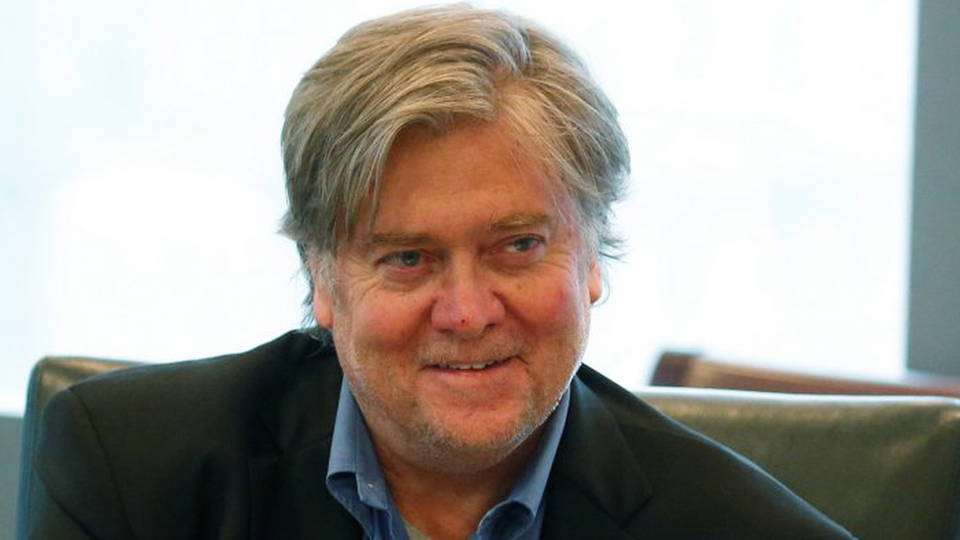
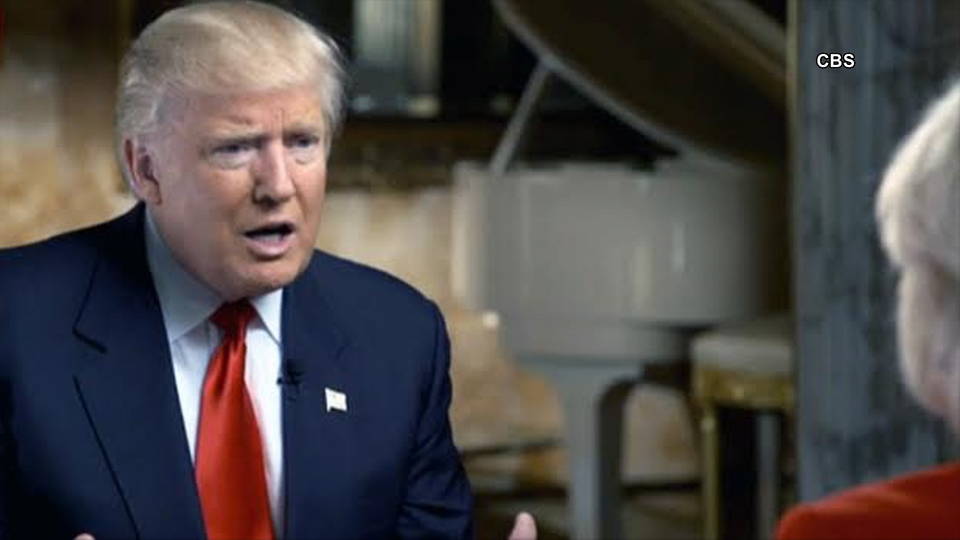
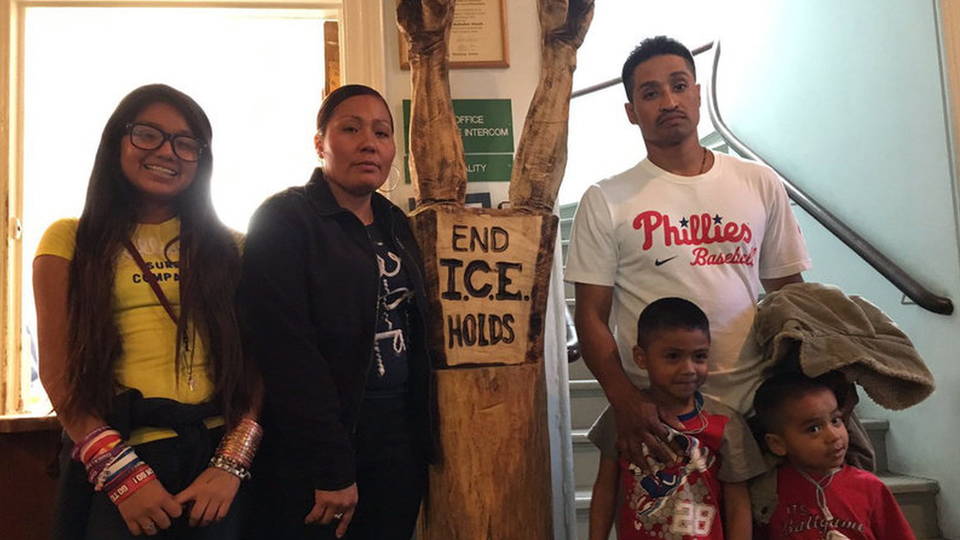
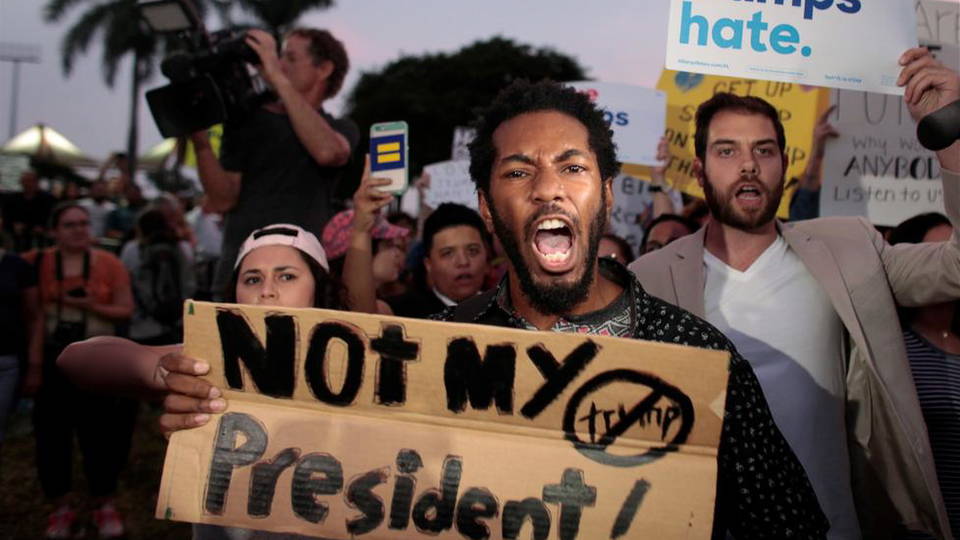
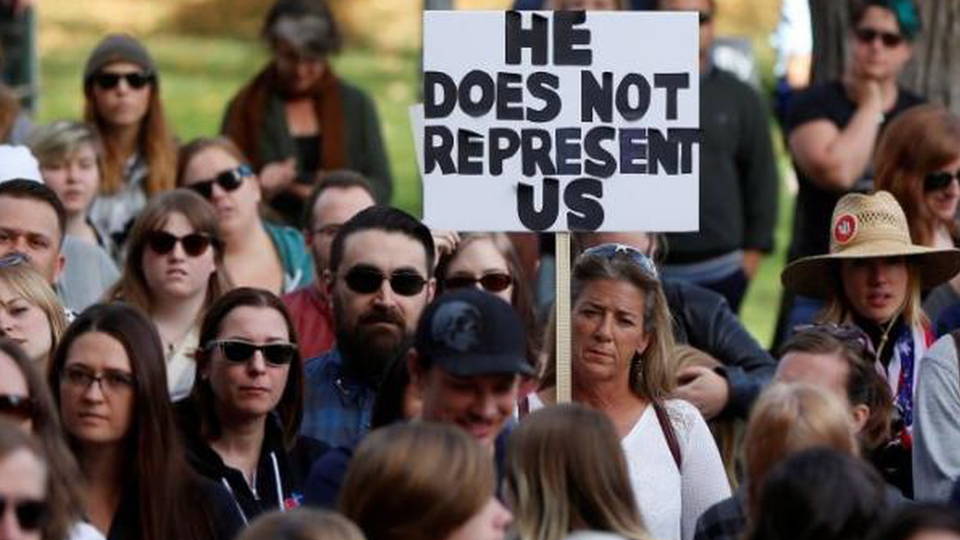
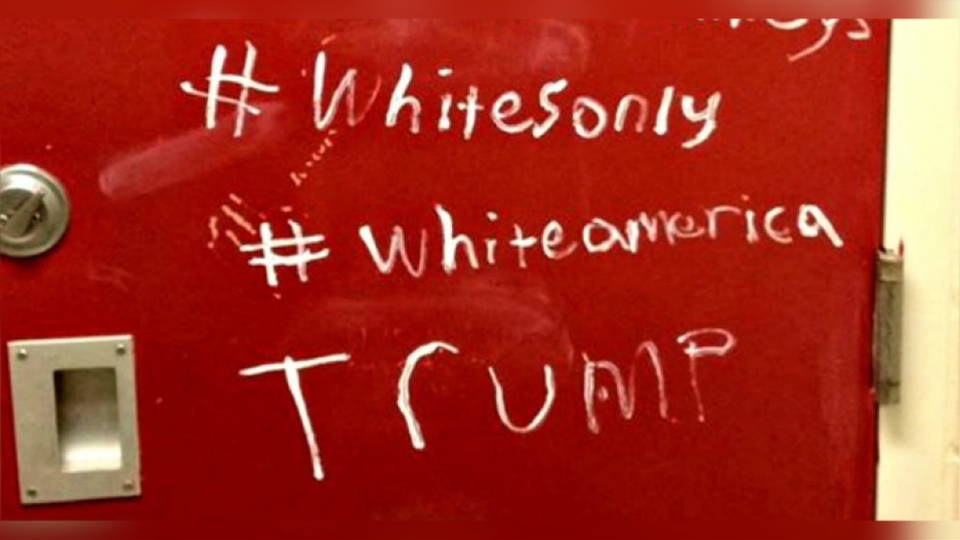
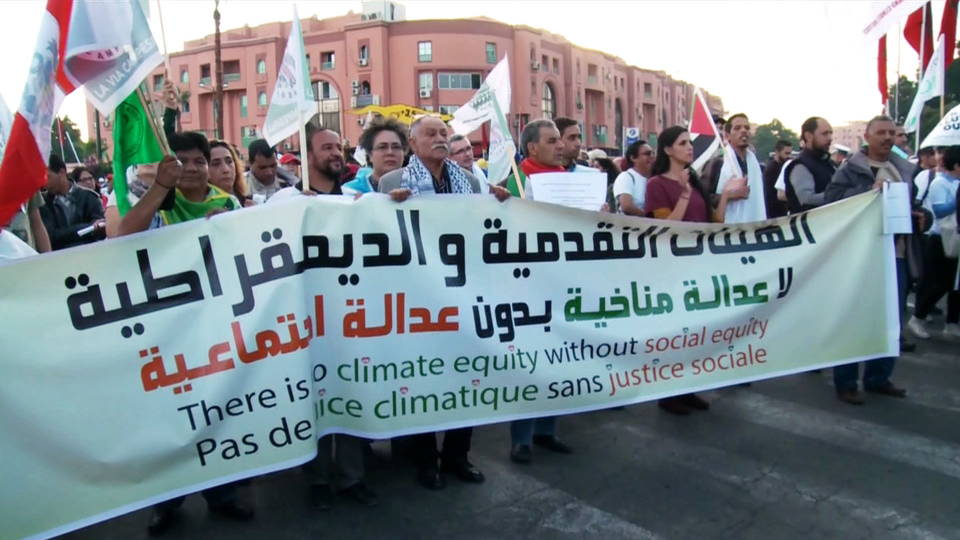
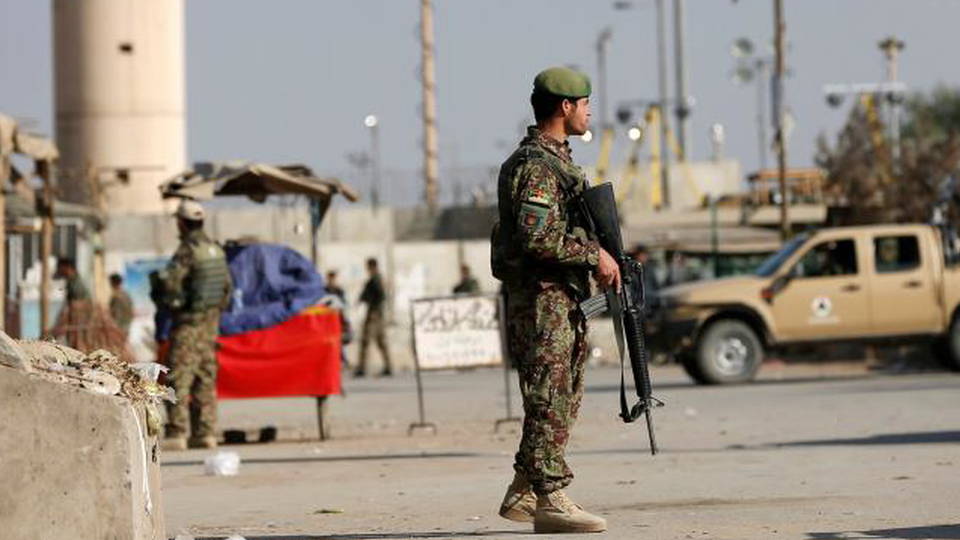
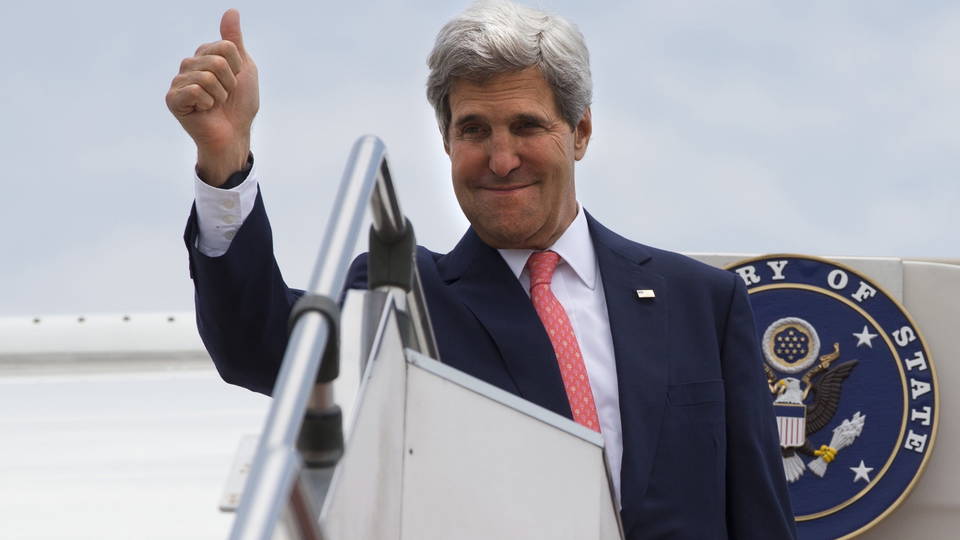
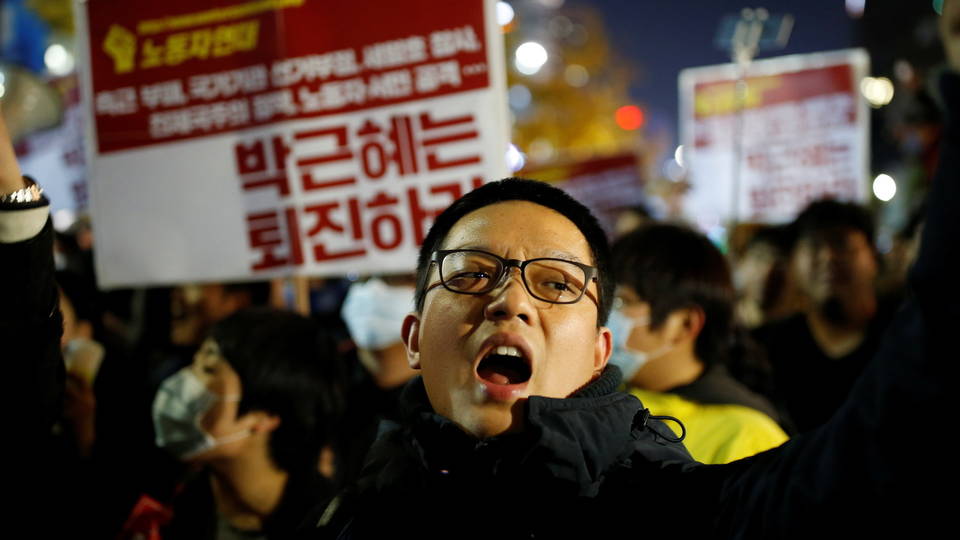
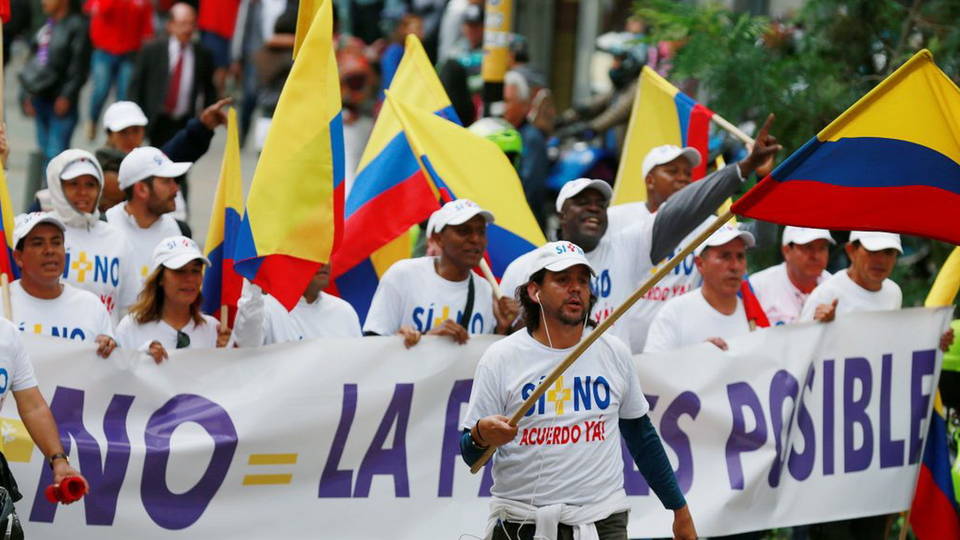
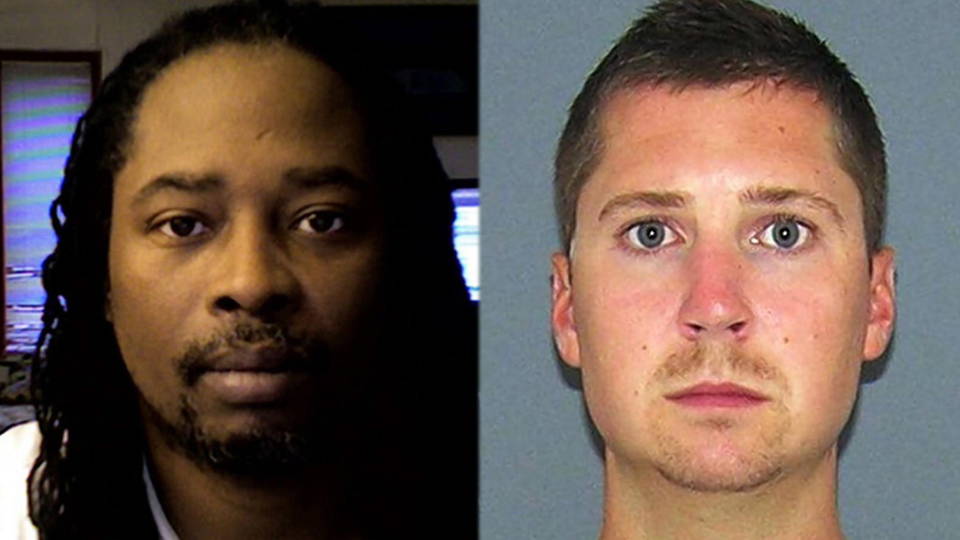
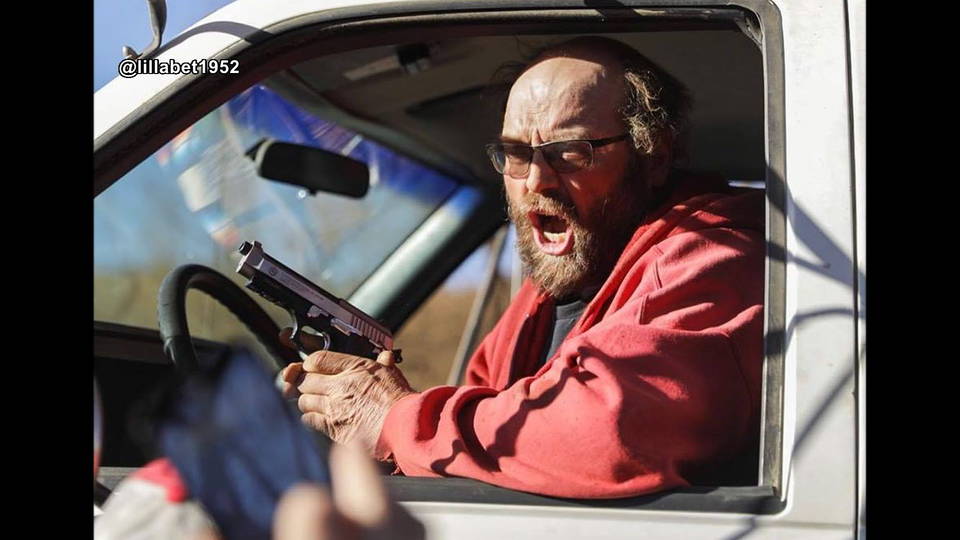
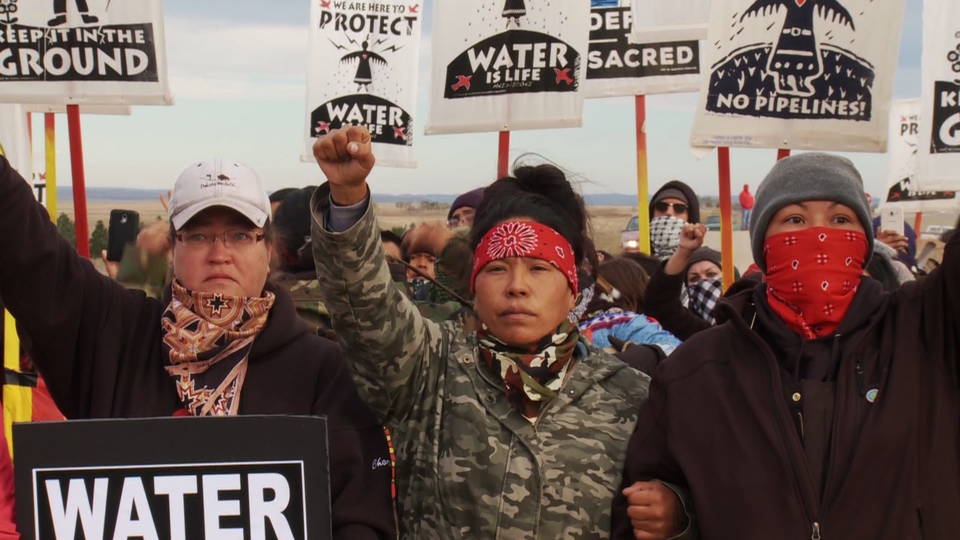


-------
Donate today →
Follow:



CELEBRATE 20 YEARS OF DEMOCRACY NOW!
Democracy Now!'s 20th Anniversary Celebration
NEW BOOK

President-elect Donald Trump has named Stephen Bannon, his campaign chief and former head of the right-wing outlet Breitbart Media, to be his chief strategist, and Reince Priebus, chair of the Republican National Committee, to be his chief of staff. The two appointments represent the dramatically different strains of the Republican Party. While Reince Priebus is the long-standing head of the party, Stephen Bannon is a leader of the insurgent far right-wing "alt-right" movement, which has been widely criticized for being a haven for white nationalists. While running Breitbart Media, the outlet regularly sparked controversy with headlines such as "Birth Control Makes Women Unattractive and Crazy" or "Trannies Whine About Hilarious Bruce Jenner Billboard" and "Bill Kristol: Republican Spoiler, Renegade Jew." Bannon himself has faced questions about domestic abuse and anti-Semitic comments. He was charged in 1996 with misdemeanor domestic violence, battery and dissuading a witness. A Santa Monica, California, police report said Bannon grabbed his wife at the time, Mary Louise Piccard, "by the throat and arm" and threatened to leave with the couple’s twin daughters. Bannon pleaded not guilty to the charges, which were dropped later that year when Piccard did not appear in court. Piccard claimed in divorce proceedings that Bannon pressured her not to testify. Piccard also said in a sworn 2007 court filing that Bannon made anti-Semitic comments when the two argued over whether to send their daughters to a private school. According to one document, Piccard talked about Bannon’s feelings toward Jews, saying, "He said that he doesn’t like the way they raise their kids to be 'whiny brats' and that he didn’t want the girls going to school with Jews."
In "60 Minutes" Interview, Trump Pledges to Deport Up to 3 Million People

Trump also pledged to deport up to 3 million undocumented people during an interview with "60 Minutes" that aired Sunday. This is "60 Minutes" correspondent Lesley Stahl.
Lesley Stahl: "Let’s go through very quickly some of the promises you made, and tell us if you’re going to do what you said—"
Donald Trump: "OK, sure."
Lesley Stahl: "—or you’re going to change it in any way. Are you really going to build a wall?"
Donald Trump: "Yes."
Lesley Stahl: "They’re talking about a fence in the Republican Congress. Would you accept a fence?"
Donald Trump: "For certain areas, I would. But certain areas, a wall is more appropriate. I’m very good at this. This is called construction. But a fence will be—"
Lesley Stahl: "So, part wall, part fence?"
Donald Trump: "Yeah, it could be—it could be some fencing."
Lesley Stahl: "What about the pledge to deport millions and millions of undocumented immigrants?"
Donald Trump: "What we are going to do is get the people that are criminal and have criminal records, gang members, drug dealers—we have a lot of these people, probably 2 million, it could even be 3 million. We are getting them out of our country, or we’re going to incarcerate. But we’re getting them out of our country. They’re here illegally."
Philadelphia: Mexican Father of U.S.-Born Children Seeks Sanctuary from Deportation in Church

This comes as, in Philadelphia, Mexican immigrant Javier Flores, who is the father of three U.S.-born children, sought sanctuary from deportation in a church and called on President Obama to stop his deportation and others’. Mayors from New York to Seattle have said they won’t cooperate with Trump’s promise to deport millions of undocumented immigrants, even though Trump says he’ll withdraw federal funding from such cities. Grassroots groups in multiple cities are also organizing anti-deportation self-defense networks.
From Coast to Coast, Anti-Trump Protests Declare: "Not My President"

Protests are growing across the United States following Tuesday’s election. On Saturday, 10,000 people marched in New York City. Eight thousand more marched in Los Angeles, where 200 people were arrested. Protesters also took to the streets in Philadelphia; San Francisco; Oakland; Chicago; Oklahoma City; Salt Lake City; Springfield, Massachusetts; and in Dayton and Cincinnati, Ohio. In Portland, Oregon, police attacked protesters with pepper spray and flashbang grenades and arrested 71 people. One protester in Portland was also shot and wounded during a confrontation on a bridge that was blocked by the protests. In Traverse City, Michigan, a police officer was put on paid leave for intimidating protesters at a "Love Trumps Hate" rally by driving around the demonstration displaying a Confederate flag while he was off duty. This is Annette Alejandro at a protest in New York City Sunday.
Annette Alejandro: "I’m here to support everybody, to speak for my community, that’s afraid, and they don’t know where the country is going, and so together we could come up with a plan on what we can do next. A lot of things that are being talked about, and people are trying to reverse the laws that are in place, I’m very concerned about that, because I feel that would put our country back, and I feel that we should progress and be inclusive of everybody."
Millions Call on Electors to Support Clinton, Who Is Winning Popular Vote by 2 Million

More demonstrations are being planned for the coming days, including a massive Women’s March on Washington on January 21—the day after Trump’s scheduled inauguration. More than 4 million people have also signed on to a petition calling on the electors of the Electoral College to cast their ballots not for Donald Trump but for Hillary Clinton, who is now projected to have won the popular vote by as many as 2 million more votes than Donald Trump. Clinton is the second Democratic presidential candidate in recent history to lose the Electoral College despite winning the popular vote—and she’s projected to win the popular vote by an even greater margin than Al Gore did in 2000 against George W. Bush.
Top Democrats Support Rep. Keith Ellison to Head Democratic National Committee
The Democratic Party is looking to reorganize itself in the wake of Tuesday’s election. On Sunday, outgoing Senate Minority Leader Harry Reid said he supports Minnesota Congressmember Keith Ellison to be the next head of the Democratic National Committee. Other top Democrats have also backed Ellison, including incoming Senate Minority Leader Chuck Schumer, Vermont Senator Bernie Sanders and Massachusetts Senator Elizabeth Warren. Congressmember Ellison is the first Muslim elected to Congress, and he’s the co-chair of the Congressional Progressive Caucus.
200+ Cases of Harassment & Abuse of People of Color Since Trump Election

The Southern Poverty Law Center is reporting there have been at least 200 instances of physical and verbal harassment, abuse and intimidation against immigrants, people of color, Muslims and women in the wake of Tuesday’s election. In one case reported to SPLC, a boy told a 12-year-old African-American girl at school: "Now that Trump is president, I’m going to shoot you and all the blacks I can find." A teacher in Washington state reported students chanting "Build a wall" in the cafeteria. The most commonly reported place where physical or verbal harassment occurred was in K-12 schools. This comes as school districts in Boston, St. Paul, Minnesota, and Denver, Colorado, have begun offering counseling services to students who are distraught and fearful both about Trump’s election and the possibility of deportation, as well as the ensuing attacks, threats and harassment faced by students of color. We’ll speak with Richard Cohen of the Southern Poverty Law Center later in the broadcast.
Morocco: Thousands March for Climate Ahead of Second Week of COP 22

Here in Marrakech, Morocco, the second week of the 22nd United Nations climate change conference has just begun. On Sunday, thousands marched for climate justice here in Marrakech. The conference has been jolted by the election of Donald Trump in the United States, who has vowed to "cancel the Paris climate agreement and stop all payments of U.S. tax dollars to U.N. global warming programs." Speaking in Morocco, French Environment Minister Ségolène Royal called Donald Trump’s climate plan "absolutely catastrophic."
Ségolène Royal: "I think if such decisions are taken, it would be absolutely catastrophic, so I dare to believe that such things are campaign promises to please a certain electorate, which has not understood that global warming is a reality, or to answer the oil and fossil energy lobbies. I think that when he actually takes office, he will see that withdrawing from multilateral negotiations and climate issues would weaken the United States."
We’ll bring you more on the COP 22 and voices from the climate justice march here in Marrakech later in the broadcast.
Afghanistan: 2 U.S. Soldiers & 2 U.S. Contractors Killed at Bagram Air Base

In Afghanistan, two U.S. soldiers and two U.S. private military contractors have died after a suicide bomb attack on the U.S. Bagram Air Base on Saturday. At least 16 other U.S. soldiers and one Polish soldier were wounded in the blast. The Taliban has claimed responsibility for the attack. The incident is one of the worst security breaches at the Bagram Air Base in the United States’ ongoing 14-year war in Afghanistan.
John Kerry Arrives in Oman for Talks to End Conflict in Yemen

U.S. Secretary of State John Kerry has arrived in Muscat, Oman, for talks aimed at ending the 19-month conflict in Yemen. The U.S. has been backing the Saudi-led bombing campaign in Yemen with over $1 billion in weapons sales, planes, mid-air refueling, pilot training and military intelligence. U.S.-manufactured munitions have been found at the scenes of deadly strikes, including an October airstrike on a funeral that killed more than 140 people.
South Korea: Up to 1 Million Call for President Park’s Resignation

In South Korea, as many as 1 million people took to the streets of Seoul Saturday to demand the resignation of President Park Geun-hye, who is embroiled in a corruption scandal. It was the largest protest in South Korea in over a decade. Park faces accusations she has been following foreign and domestic policy advice from a close friend who has no political experience and is accused of embezzling up to $70 million. This is one of the protesters.
Park Je-sang: "This bad person, who was not elected by us, has been controlling the country. I was angry, because our president was nothing but a puppet. I am furious for all these reasons."
Colombian Gov't & FARC Reach New Peace Agreement

In Colombia, the government and the FARC rebel group say they’ve reached a new agreement for a peace deal aimed at ending the nation’s 52-year civil war. Colombians narrowly rejected an earlier version of the peace deal in a nationwide referendum in October. The new agreement appears to roll back promises that FARC members would have guaranteed seats in Congress.
Ohio: Mistrial Declared for White Officer Ray Tensing, Who Killed Sam DuBose

In Ohio, the trial of former University of Cincinnati police officer Ray Tensing, who shot and killed 43-year-old Sam DuBose last year, has ended in a mistrial after the jury was unable to reach a verdict. Officer Tensing, who is white, fatally shot DuBose, who is black, after Officer Tensing stopped DuBose over a traffic violation. Tensing was wearing a T-shirt emblazoned with a Confederate battle flag under his uniform when he fatally shot DuBose in the head.
ND: 1 Injured After Armed Man Drives Truck Through Dakota Access Pipeline Protest

In North Dakota, water protectors resisting the $3.8 billion Dakota Access pipeline say an armed white man drove his truck through a crowd of Native American protectors, running over one woman and then firing live bullets into the air, during a demonstration Saturday at a worksite near Mandan. Local authorities are investigating the incident. This comes after 37 people were arrested on Friday, as water protectors maintained multiple highway blockades. The Army Corps of Engineers is expected to make a decision within days about whether it will grant a permit allowing Energy Transfer Partners to drill underneath the Missouri River.
Protests Against Dakota Access Pipeline Planned for Nov. 15 in 100+ Cities Worldwide

Tomorrow, actions are planned at dozens of U.S. Army Corps of Engineers offices and other government buildings in more than 100 cities worldwide, demanding the Obama administration stop the Dakota Access pipeline. Meanwhile, the head of Energy Transfer Partners, Kelcy Warren, has said he’s "100 percent" confident Trump will support the completion of the Dakota Access pipeline. Warren donated more than $100,000 to Trump’s campaign, while Trump has between $500,000 and $1 million invested in Energy Transfer Partners. This is Warren speaking on CBS.
CBS reporter: "Once he takes over, January 20th, what are the prospects?"
Kelcy Warren: "Oh, it’s 100 percent."
CBS reporter: "A hundred percent that?"
Kelcy Warren: "That the easement gets granted and the pipeline gets built."
CBS reporter: "Have you spoken to Donald Trump about the pipeline?"
Kelcy Warren: "I’ve never met the man."
CBS reporter: "You’ve never met him?"
Kelcy Warren: "No."
CBS reporter: "But he’s invested in you, and you’re invested in him."
Kelcy Warren: "Well, I wish him well."
Nevada: Activists Attempt Citizen's Arrest of Creech AFB Commander

In Nevada, five activists were arrested attempting a citizen’s arrest of Creech Air Force Base Commander Colonel Case Cunningham for crimes against humanity on Thursday. Creech Air Force Base is one of several homes for the U.S. military’s lethal drone program in Pakistan, Afghanistan, Somalia, Yemen and other countries.
Virginia: Transgender Woman Noony Norwood Fatally Shot

In Richmond, Virginia, 30-year-old transgender woman Noony Norwood has died, making her at least the 24th transgender woman killed this year, the deadliest year on record for transgender people in the United States. Norwood was shot early Sunday morning and died hours later in the hospital.
Automobile Safety Champion Clarence Ditlow Dies at 72
And in Washington, D.C., engineer, lawyer and safety advocate Clarence Ditlow has died. Ditlow was the director of the Center for Auto Safety for 40 years. For decades, he championed safety in the automobile industry, forcing manufacturers to recall millions of vehicles. He collaborated with Green Party presidential candidate Ralph Nader on multiple books, including "The Lemon Book" and "The Lemon Book: Auto Rights." Clarence Ditlow died Thursday at the age of 72.
Donate today →
Follow:




CELEBRATE 20 YEARS OF DEMOCRACY NOW!

Democracy Now!'s 20th Anniversary Celebration
NEW BOOK

Senior TV Producer
Internships
-------
207 West 25th Street, 11th Floor
New York, New York 10001, United States
-------
Join Noam Chomsky, Patti Smith, Danny Glover, Danny DeVito, Amy Goodman, Juan Gonzalez & more to celebrate Democracy Now!'s 20th anniversary from Democracy Now! of New York, New York, United States

COME CELEBRATE 20 YEARS OF DEMOCRACY NOW!
Join Amy Goodman & Juan González
WITH
Noam Chomsky
Danny Glover
Danny DeVito
AND SPECIAL MUSICAL GUEST
Patti Smith
for a historic evening celebrating 20 years of Democracy Now!

General admission tickets: $30/person
BUY TICKETS
INCLUDES
General admission to our 20th anniversary program
Buy your tickets online right now or call 212-431-9090 and press option 2.
Premier admission tickets: $250/person
BUY TICKETS
INCLUDES
Pre-event reception with cocktails & hors d’oeuvres from 5:30-7pm
-------
Join Noam Chomsky, Patti Smith, Danny Glover, Danny DeVito, Amy Goodman, Juan Gonzalez & more to celebrate Democracy Now!'s 20th anniversary from Democracy Now! of New York, New York, United States

COME CELEBRATE 20 YEARS OF DEMOCRACY NOW!
Join Amy Goodman & Juan González
WITH
Noam Chomsky
Danny Glover
Danny DeVito
AND SPECIAL MUSICAL GUEST
Patti Smith
for a historic evening celebrating 20 years of Democracy Now!

General admission tickets: $30/person
BUY TICKETS
INCLUDES
General admission to our 20th anniversary program
Buy your tickets online right now or call 212-431-9090 and press option 2.
Premier admission tickets: $250/person
BUY TICKETS
INCLUDES
Pre-event reception with cocktails & hors d’oeuvres from 5:30-7pm
General admission with preferred seating at our 20th anniversary program
A signed copy of Amy Goodman’s new book, Democracy Now!: Twenty Years Covering the Movements Changing America
Buy your tickets online right now or call 212-431-9090 and press option 2.
Can't make it?
If you're unable to attend but want to show your support for Democracy Now!, make a donation today.
DONATE


Democracy Now! began in 1996 on nine radio stations and is now broadcasting on over 1,400 stations—both public television and radio, a testament to the hunger for authentic voices. In these times of war and elections, movements and uprisings, we need Democracy Now! more than ever.





-------
Democracynow.org
207 West 25th Street, Floor 11
A signed copy of Amy Goodman’s new book, Democracy Now!: Twenty Years Covering the Movements Changing America
Buy your tickets online right now or call 212-431-9090 and press option 2.
Can't make it?
If you're unable to attend but want to show your support for Democracy Now!, make a donation today.
DONATE


Democracy Now! began in 1996 on nine radio stations and is now broadcasting on over 1,400 stations—both public television and radio, a testament to the hunger for authentic voices. In these times of war and elections, movements and uprisings, we need Democracy Now! more than ever.





-------
Democracynow.org
207 West 25th Street, Floor 11
New York, New York 10001, United States
-------
-------

No comments:
Post a Comment